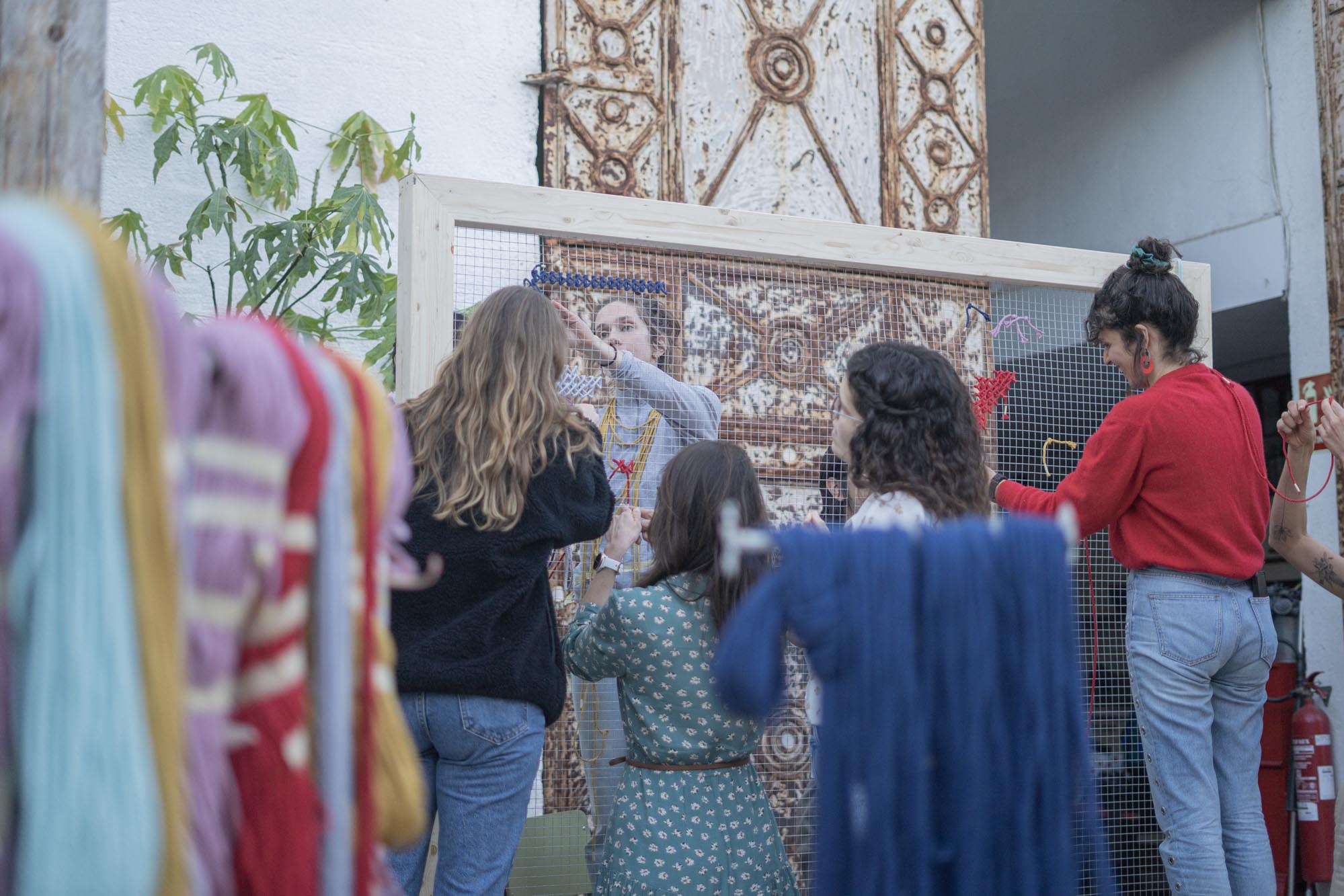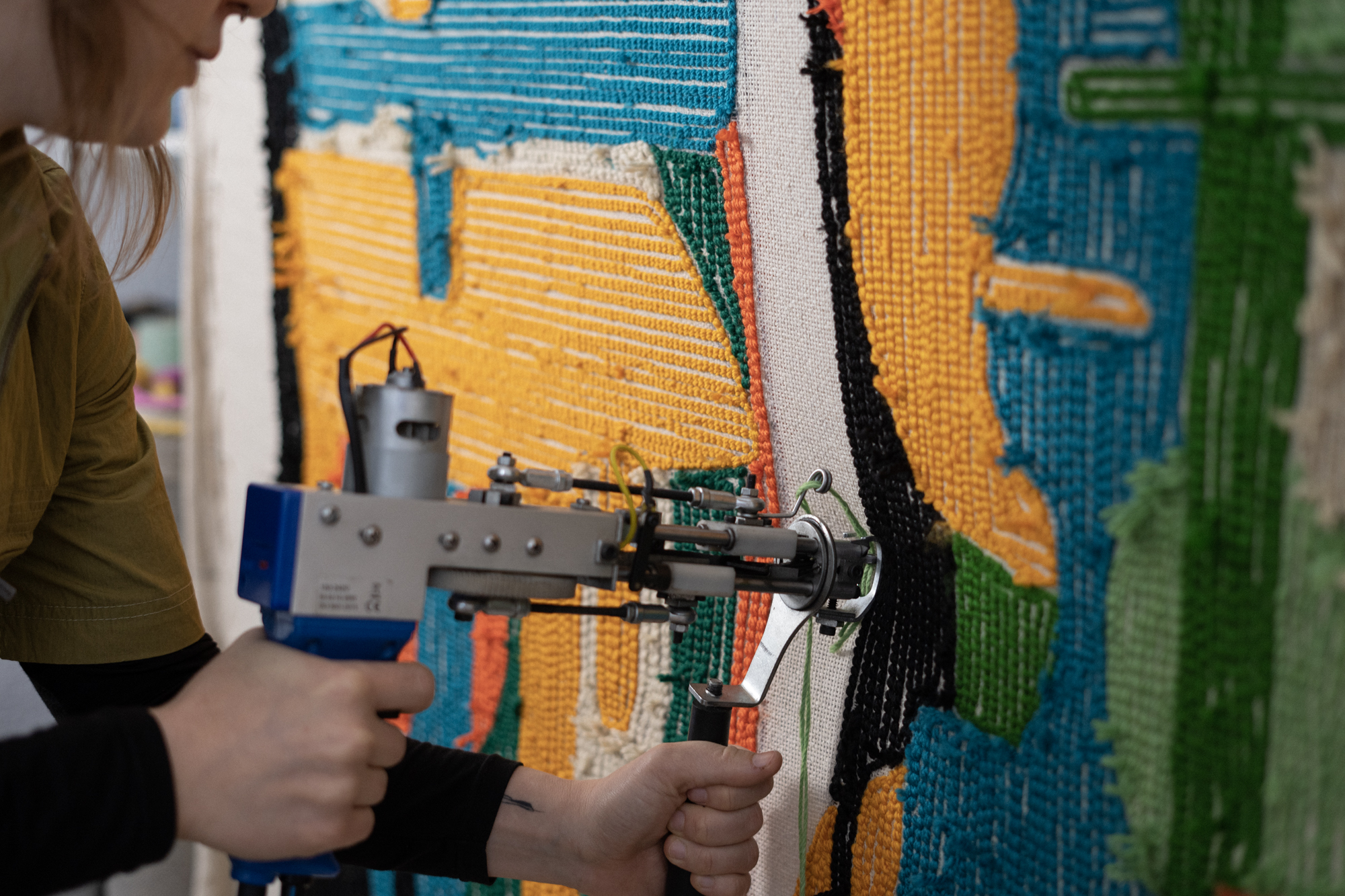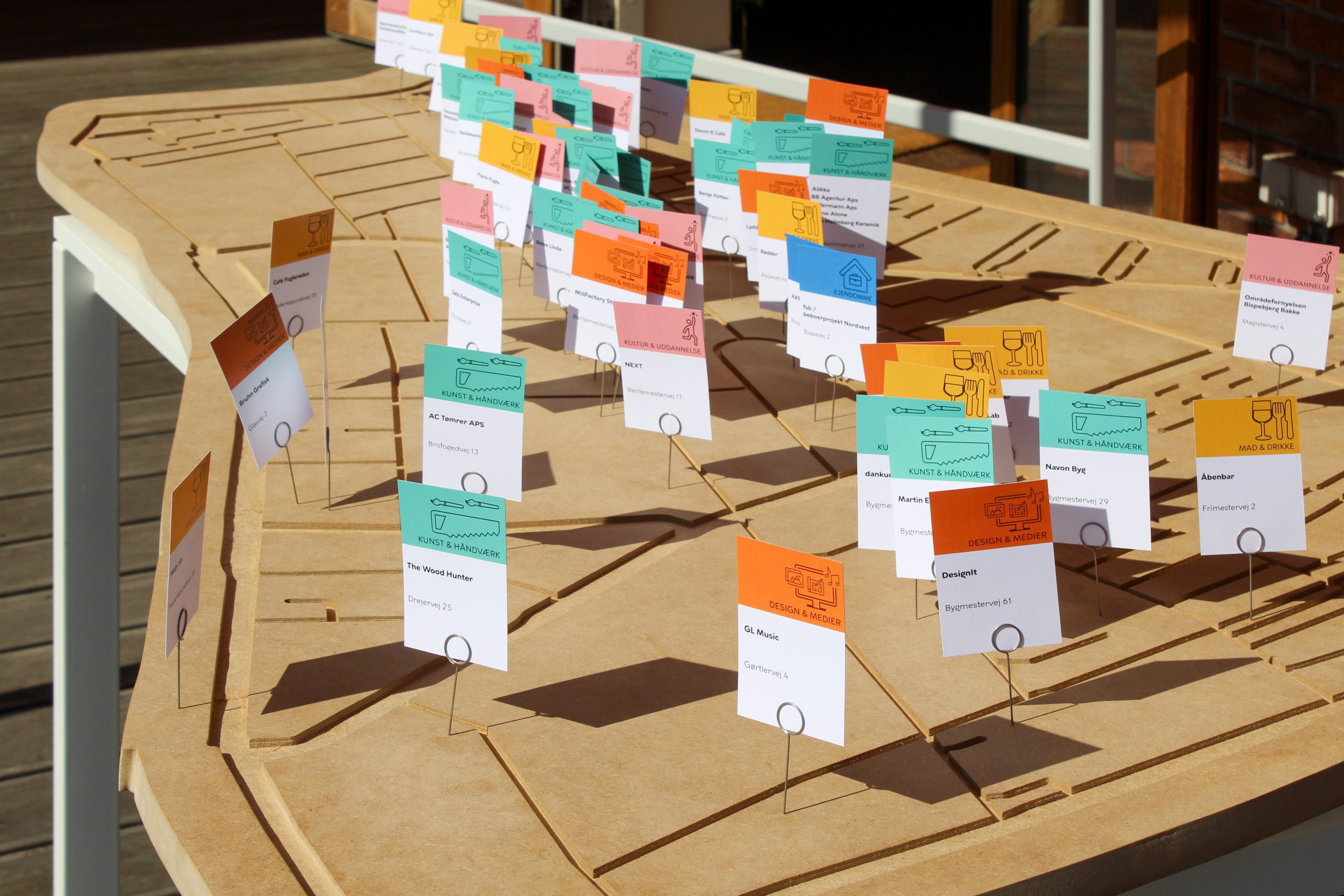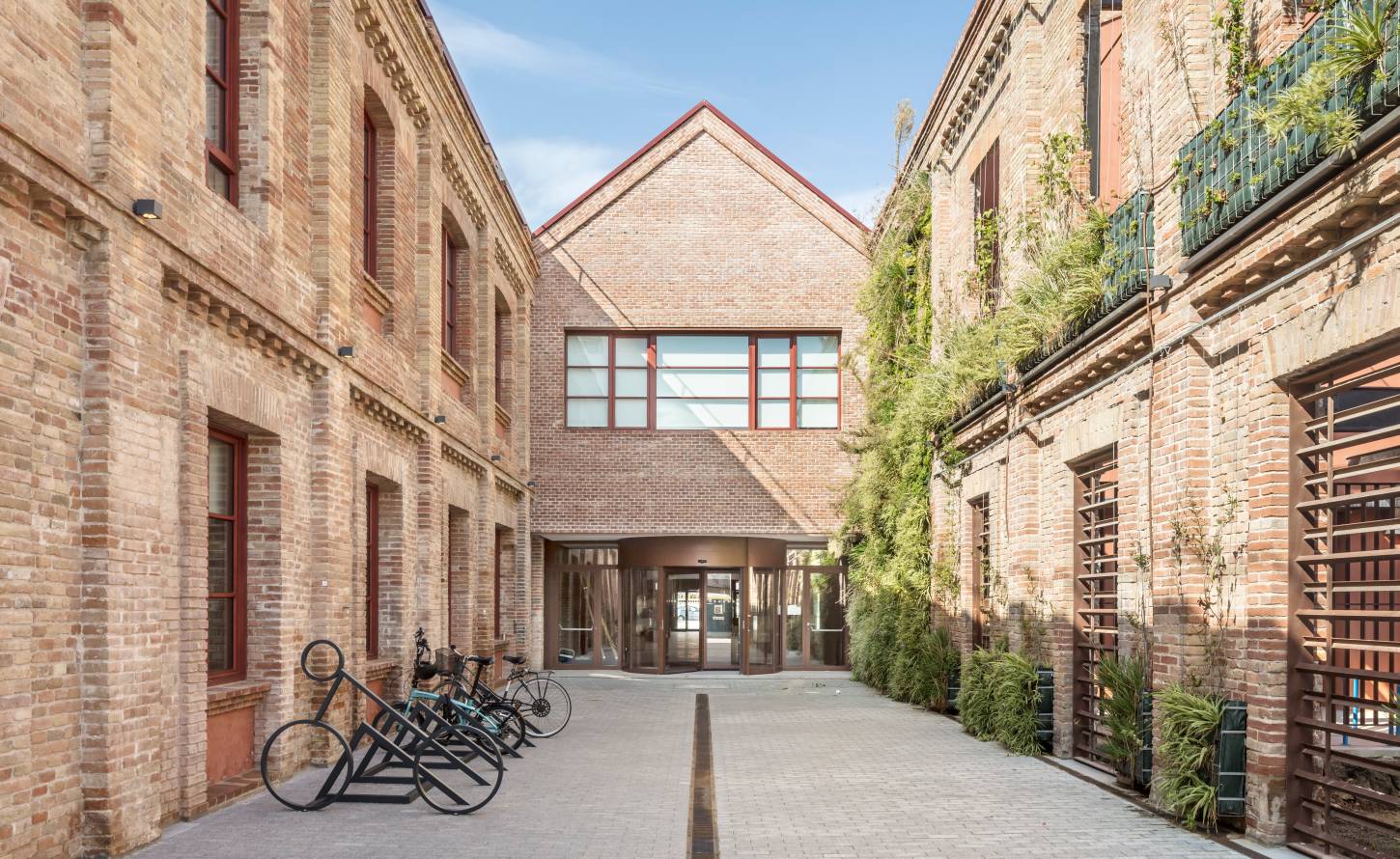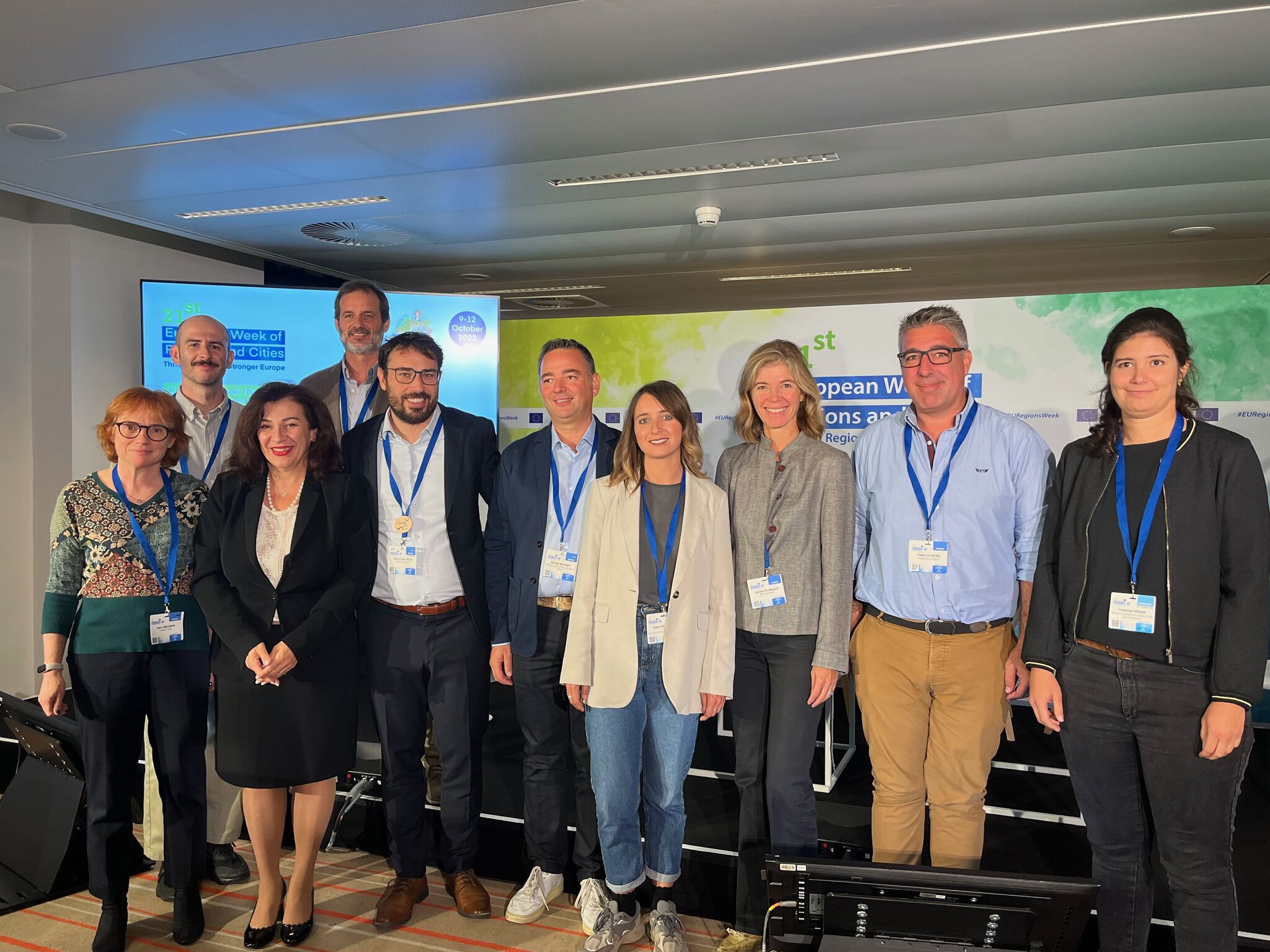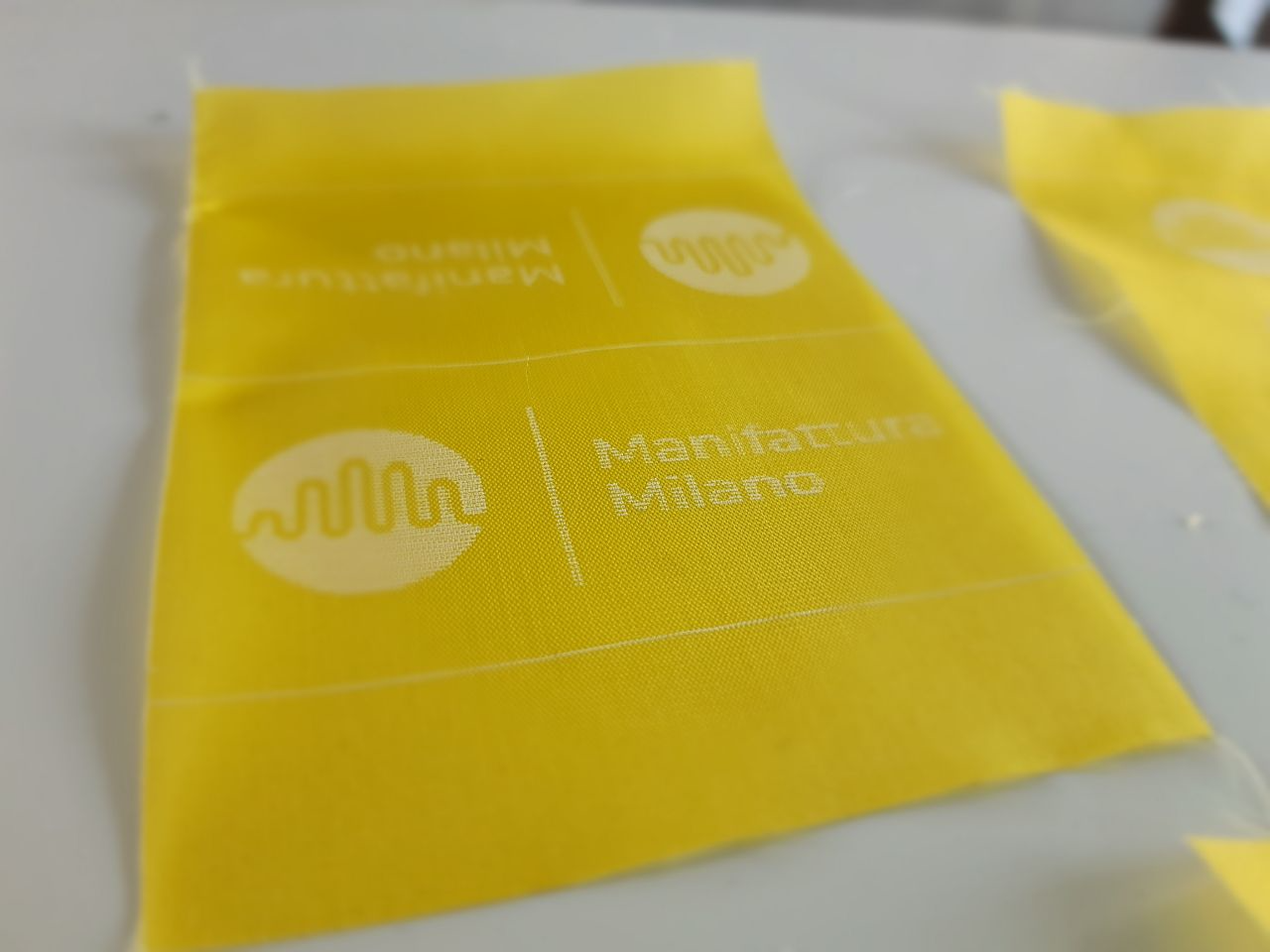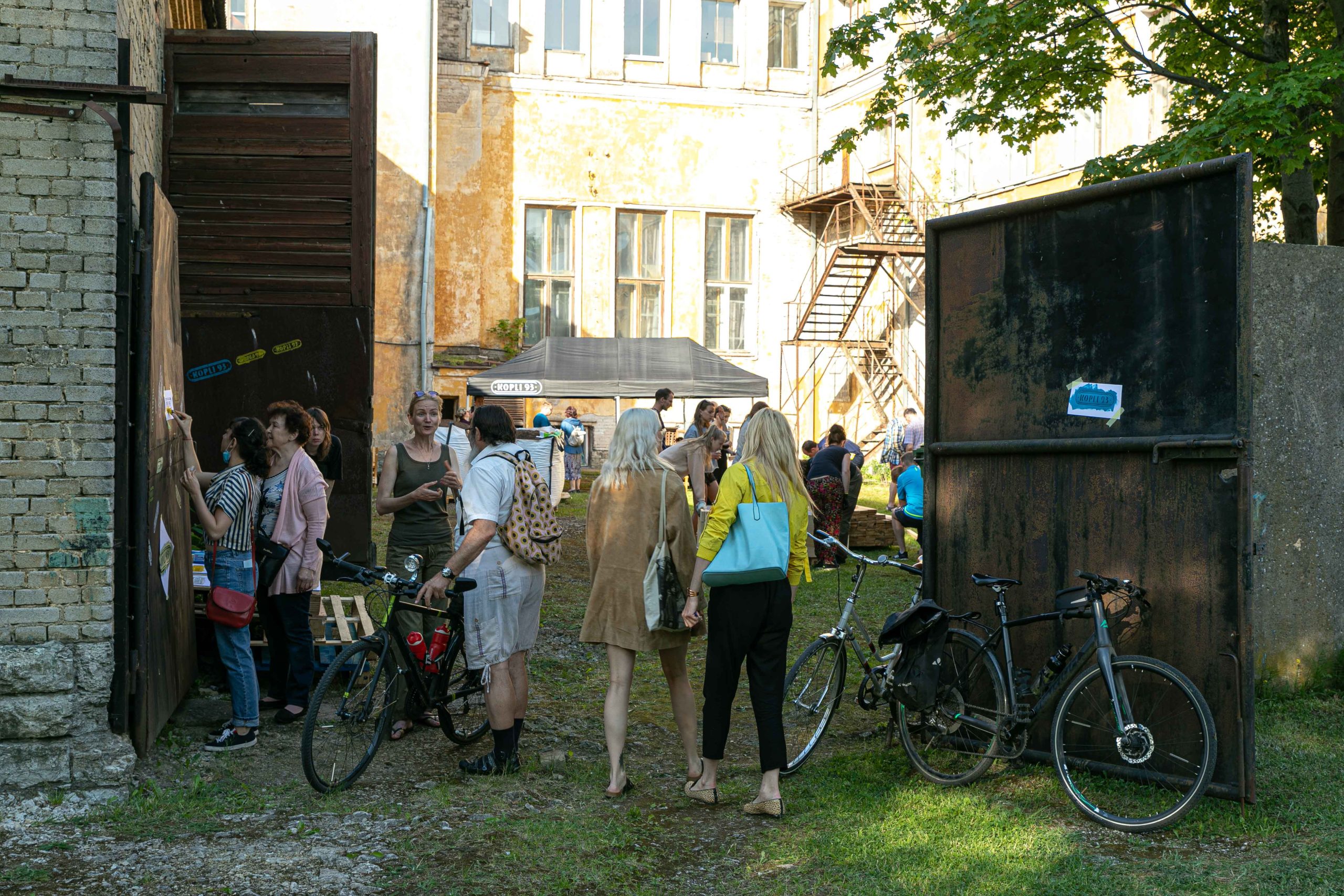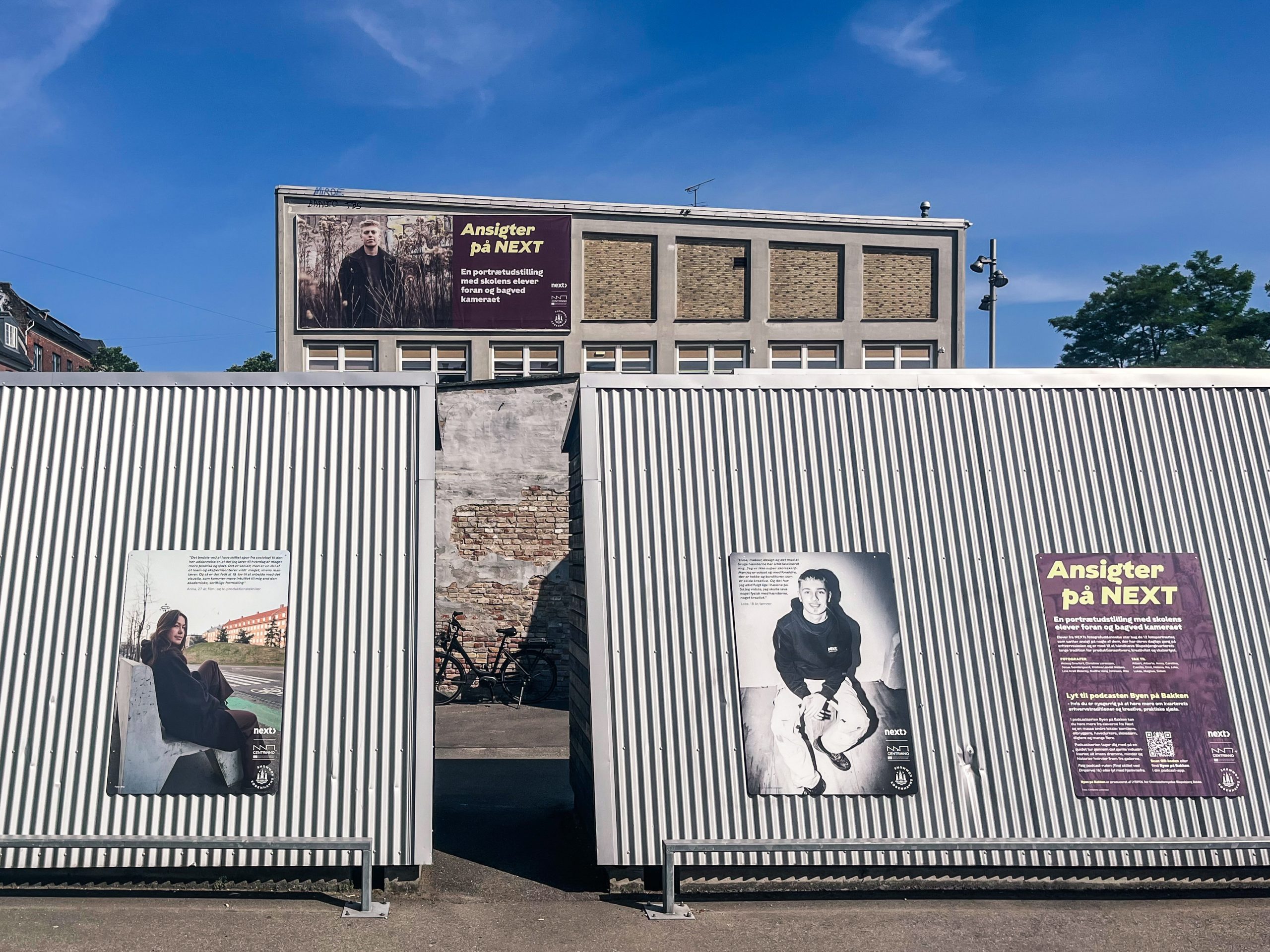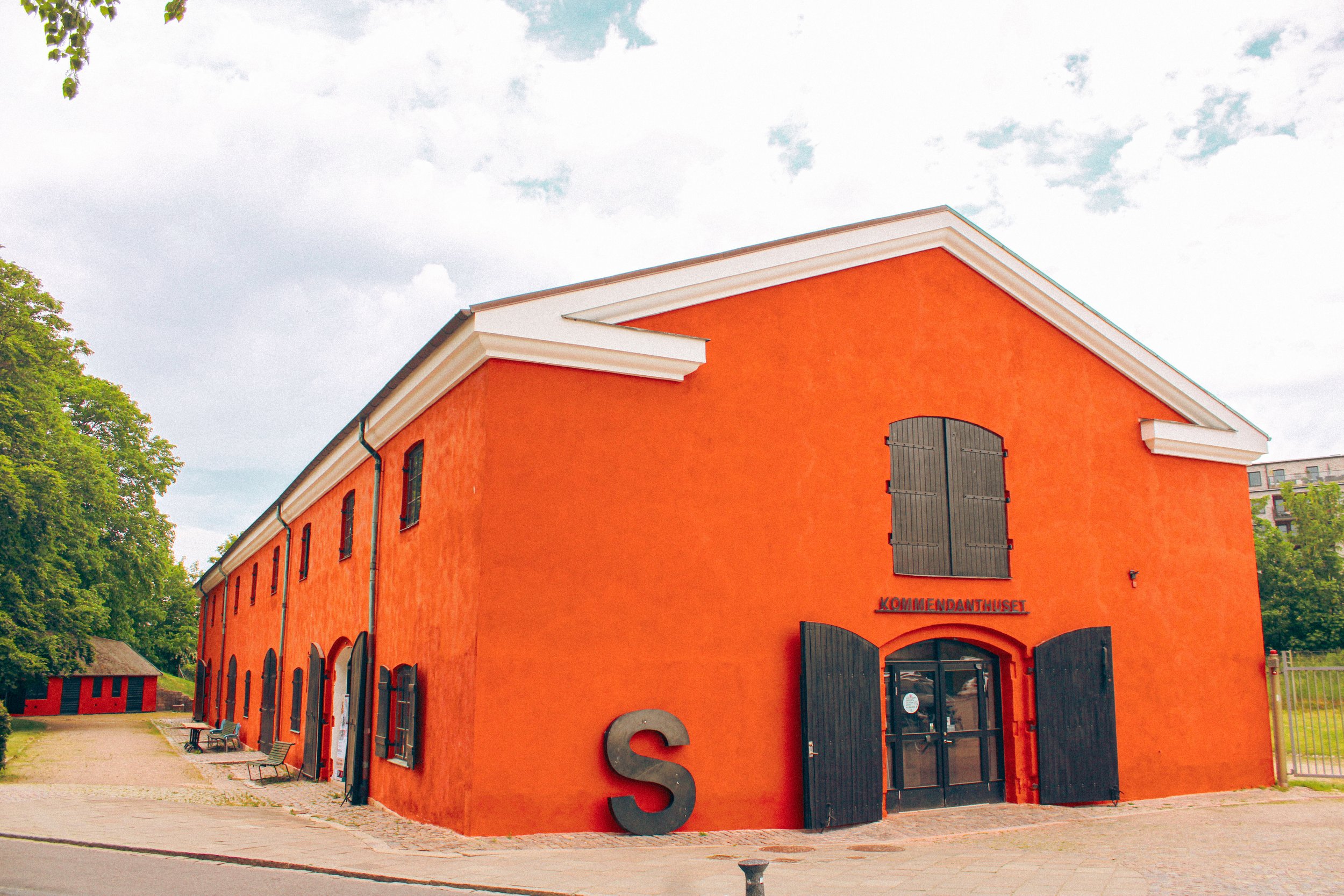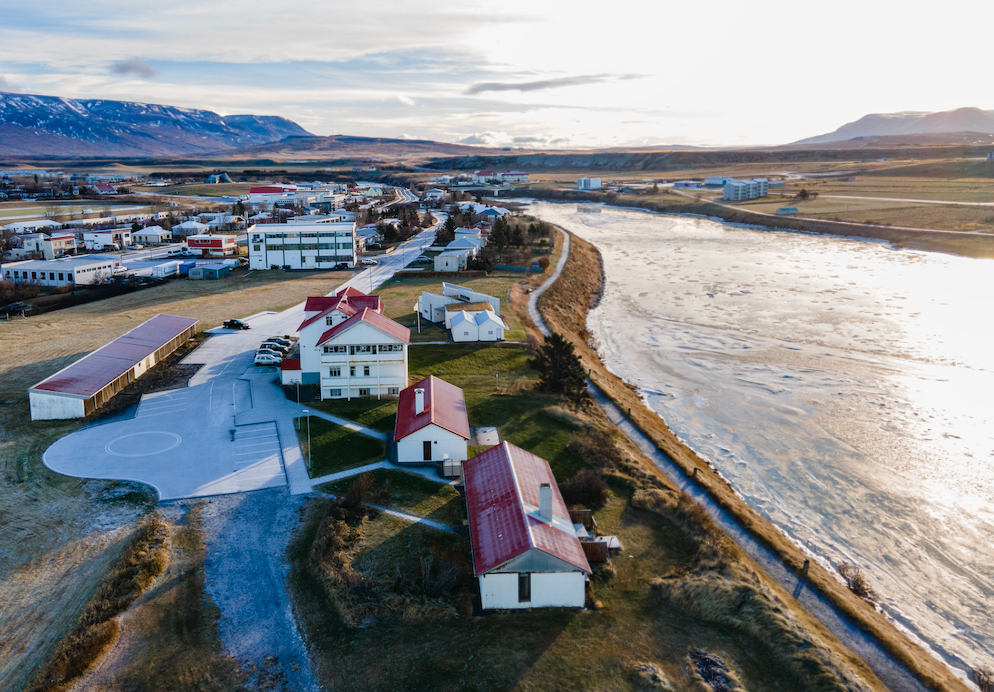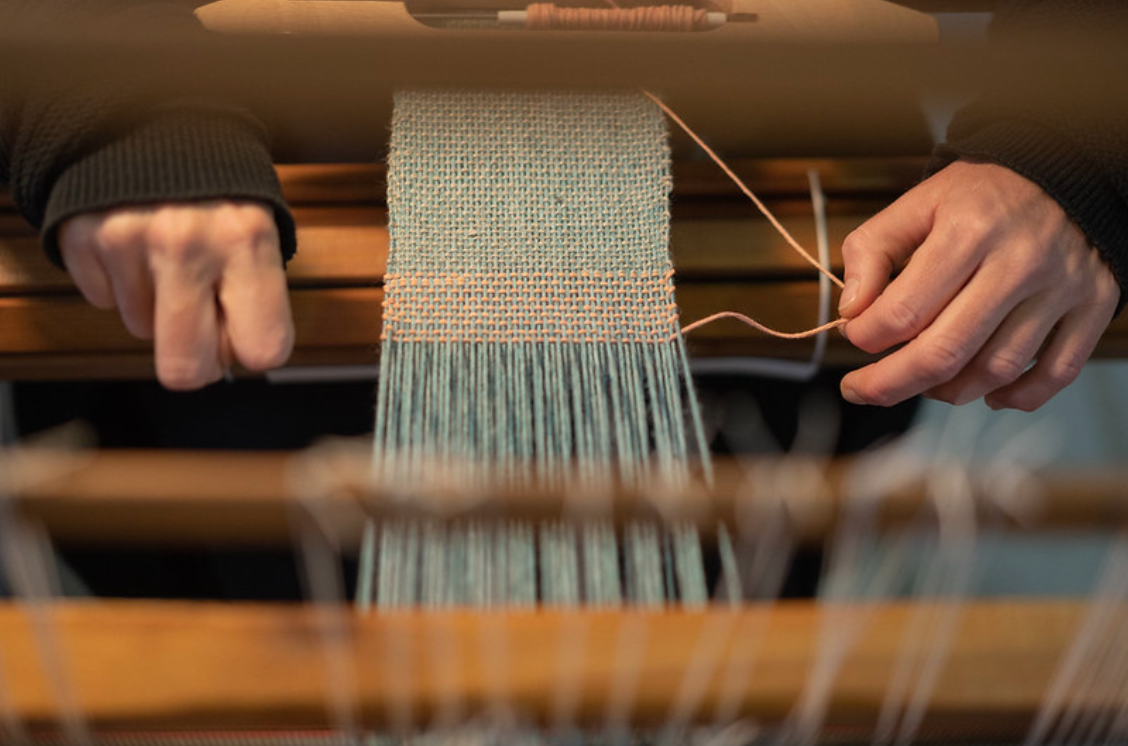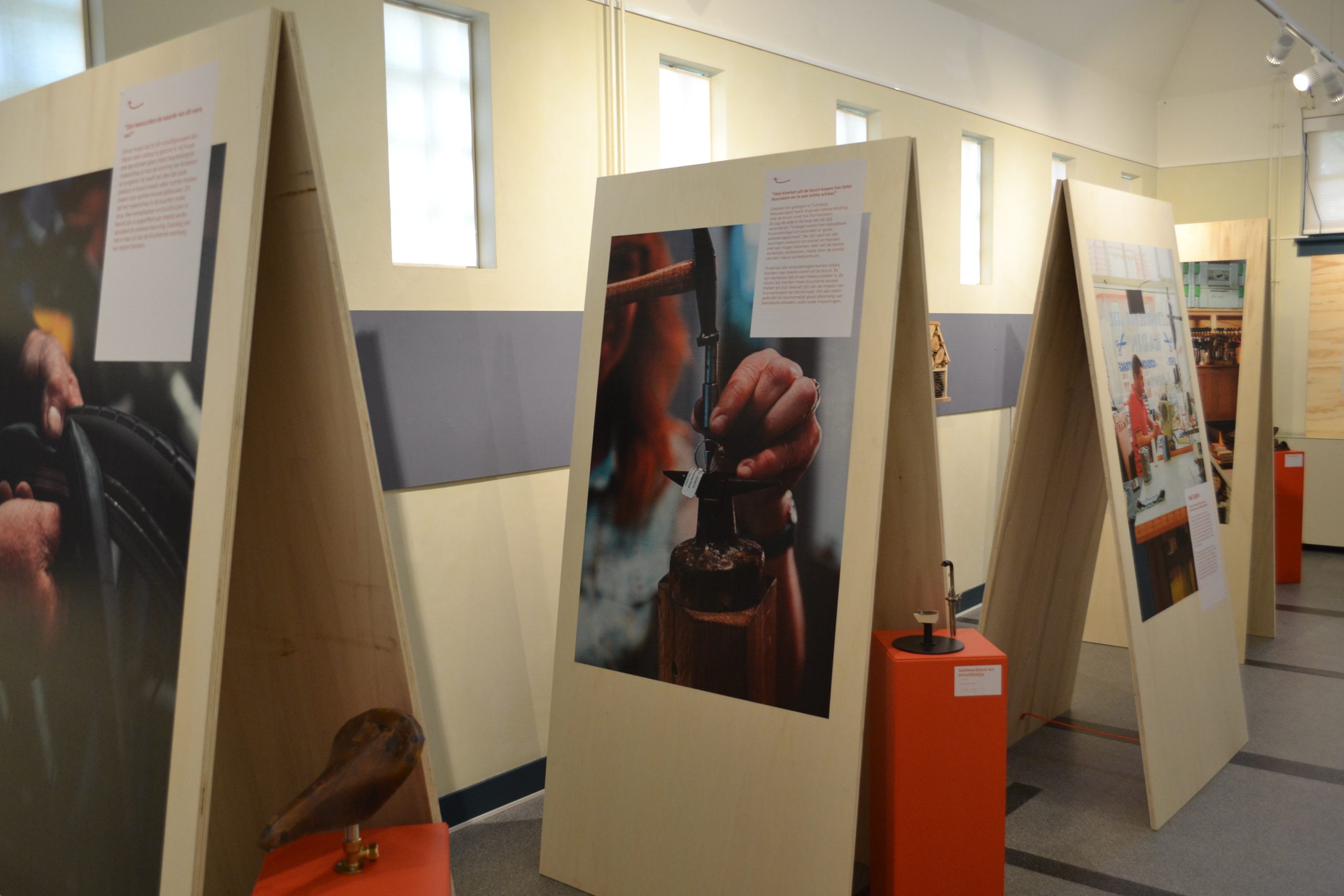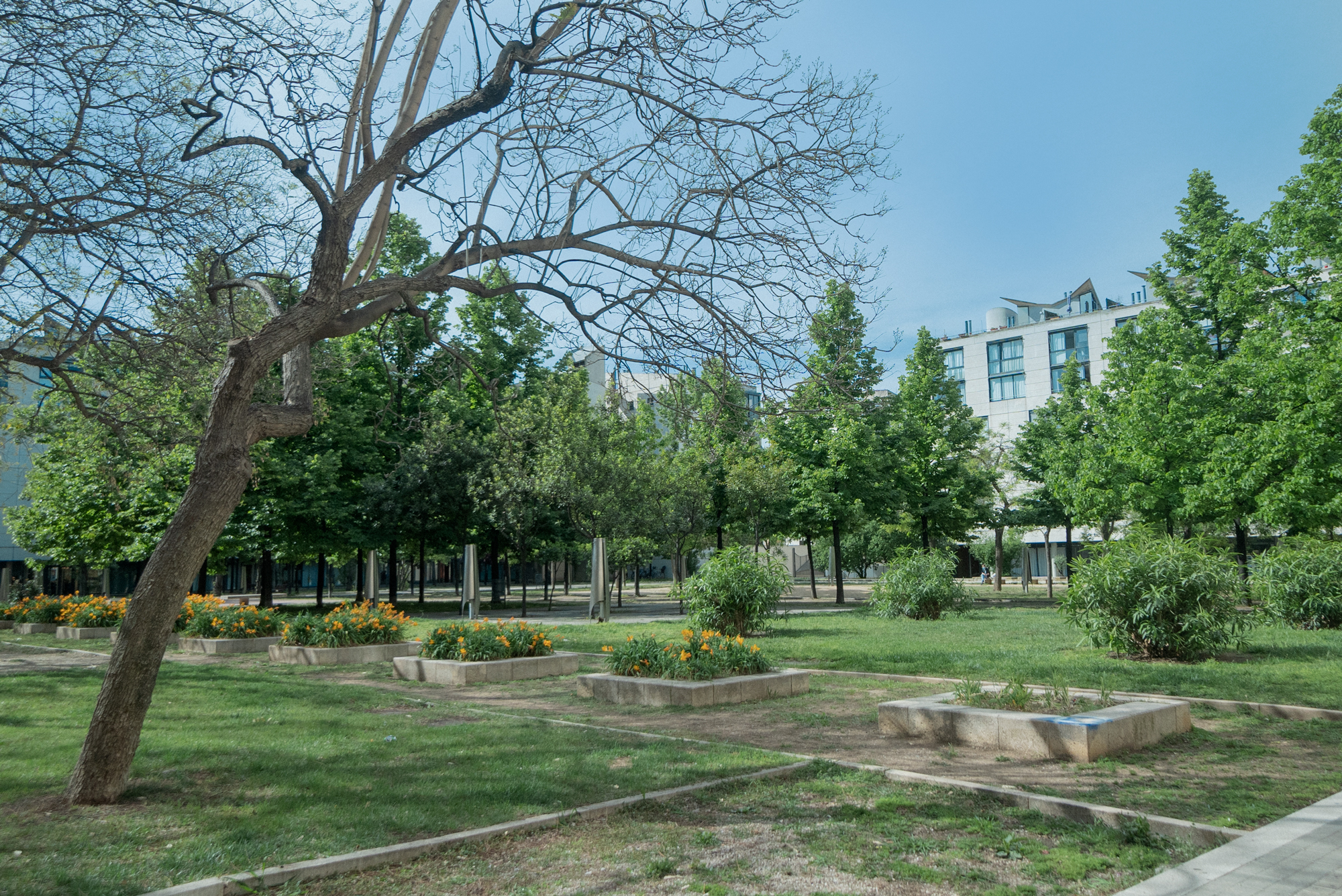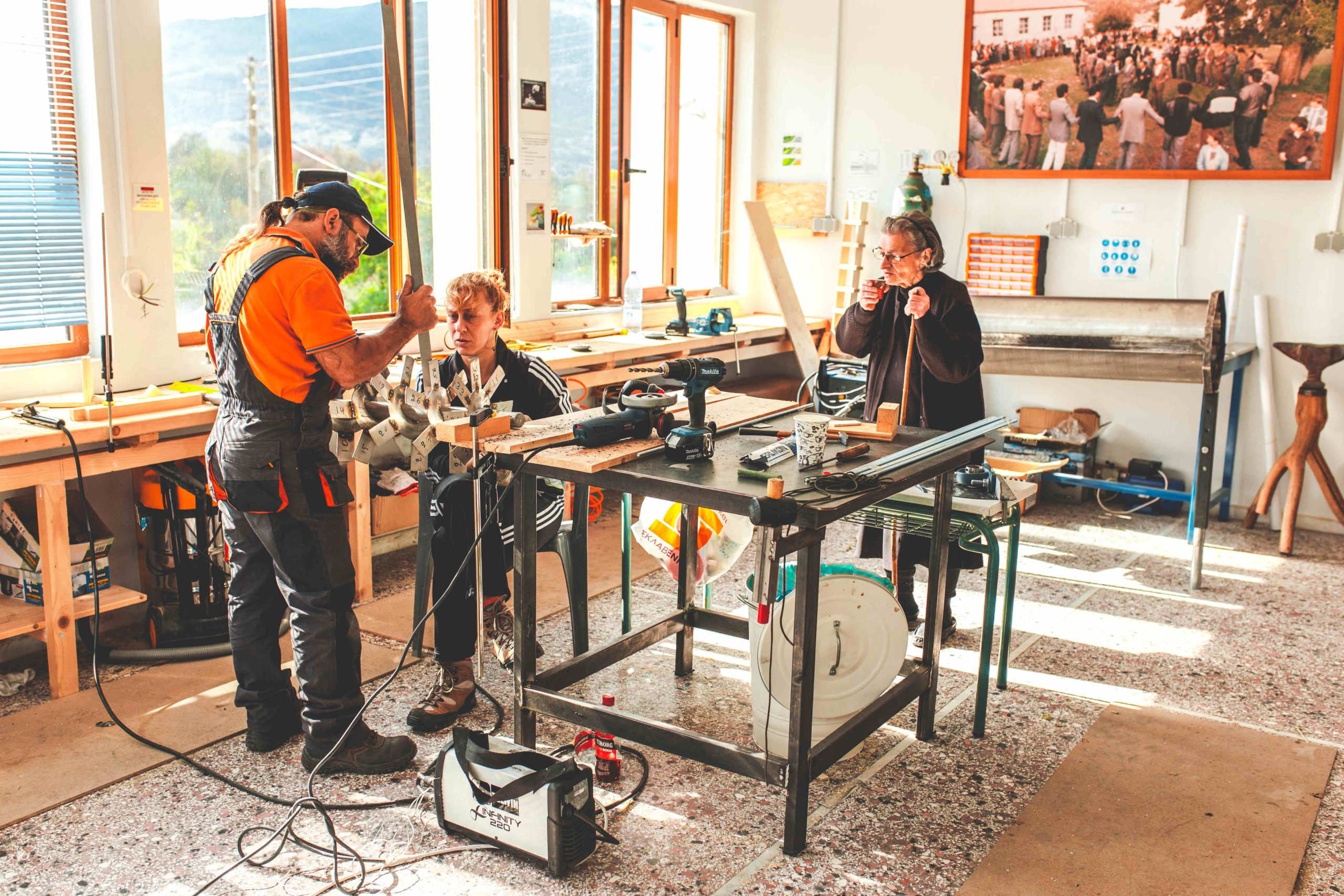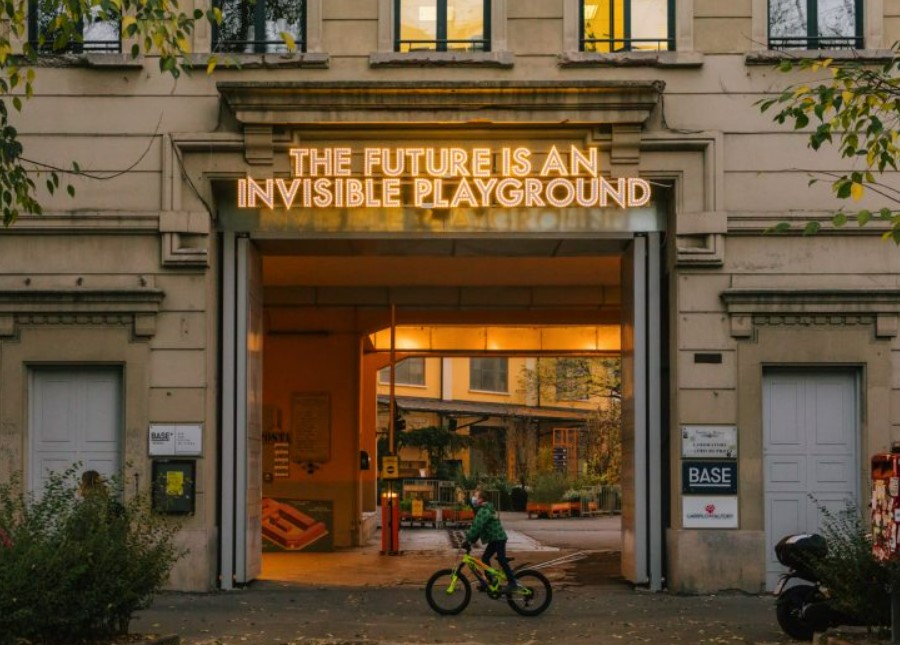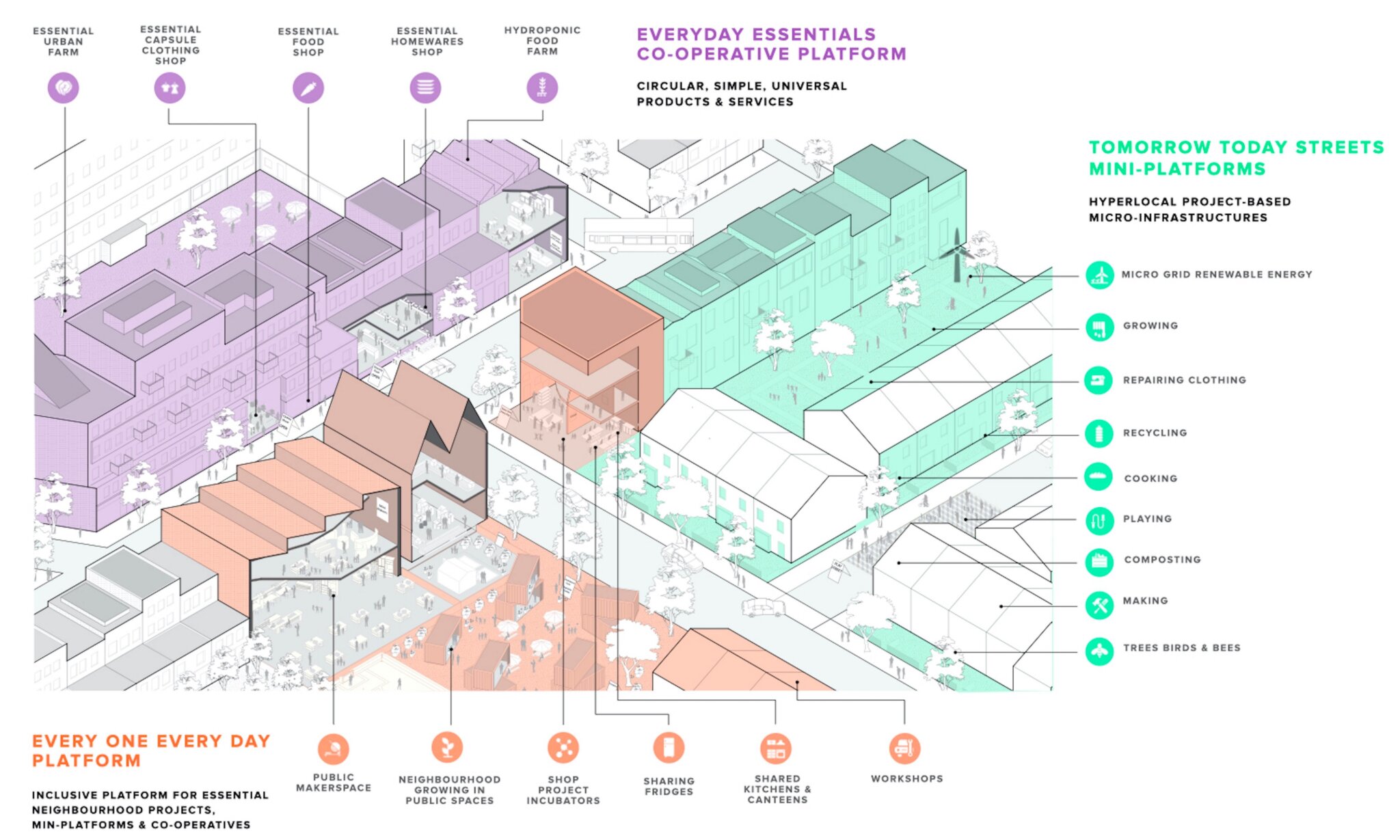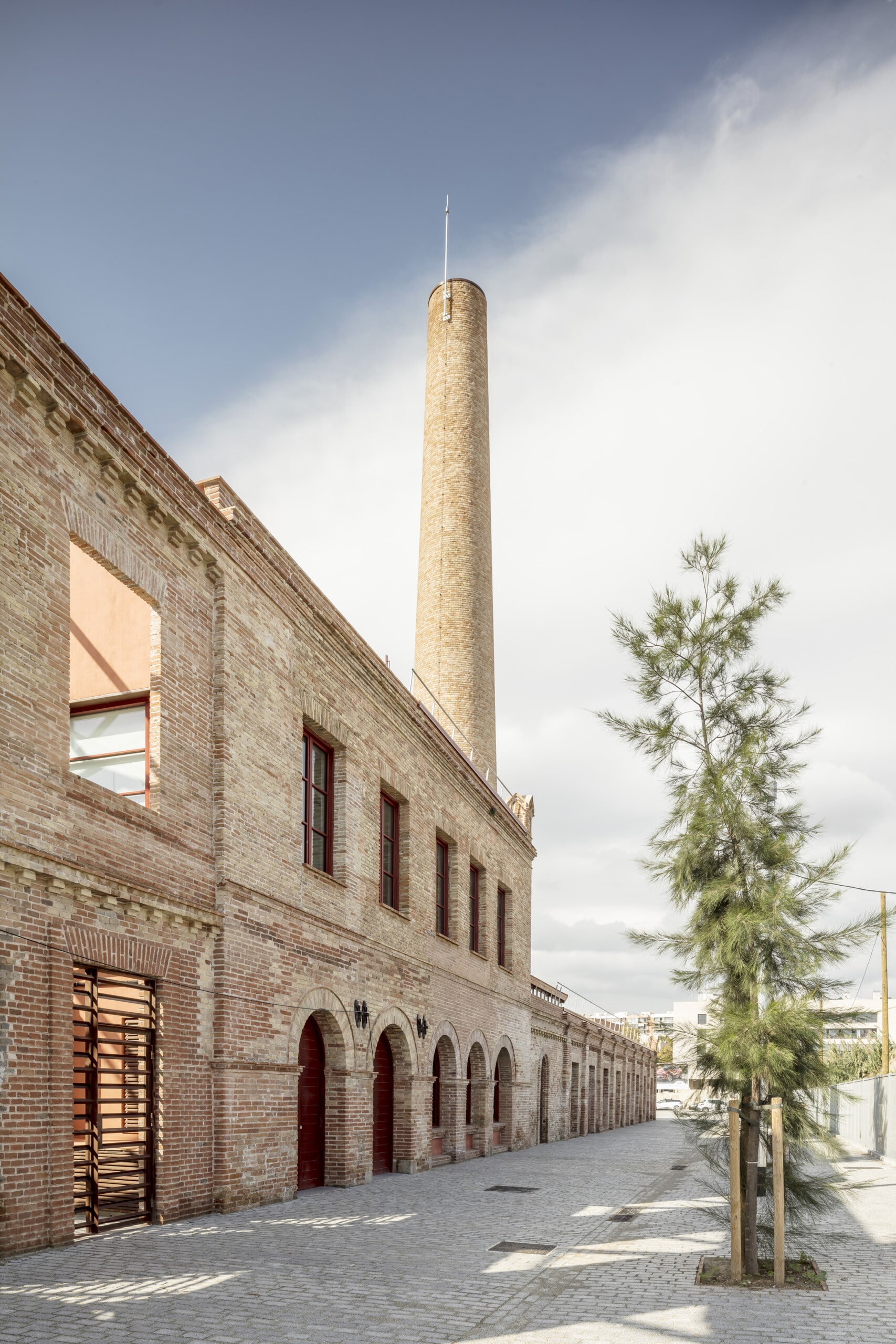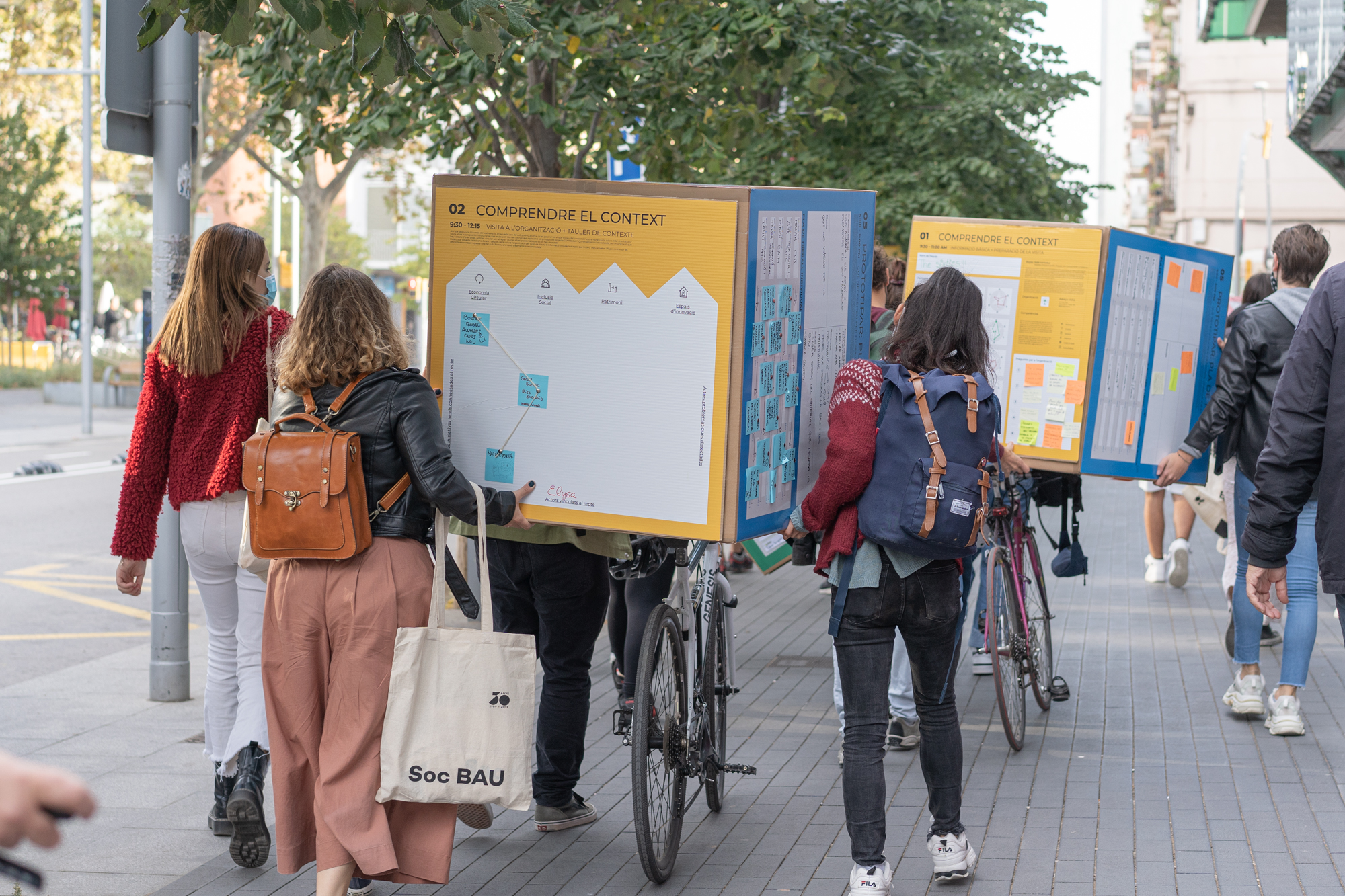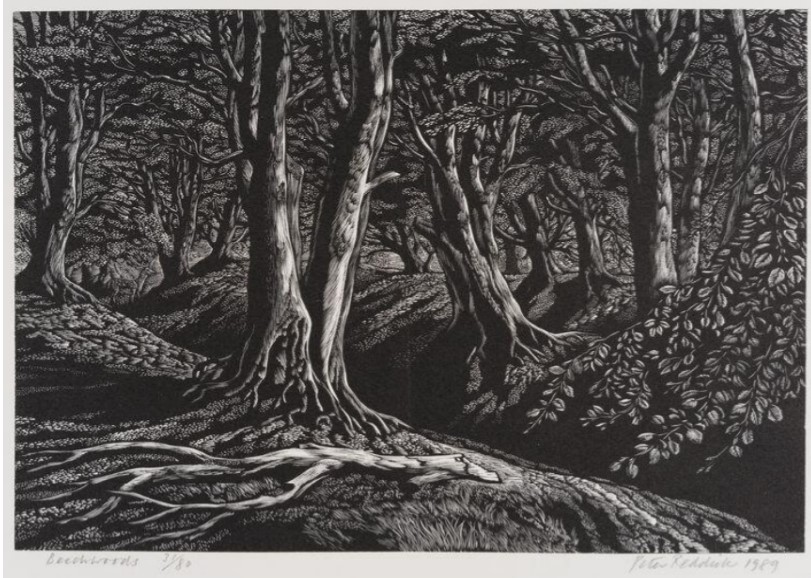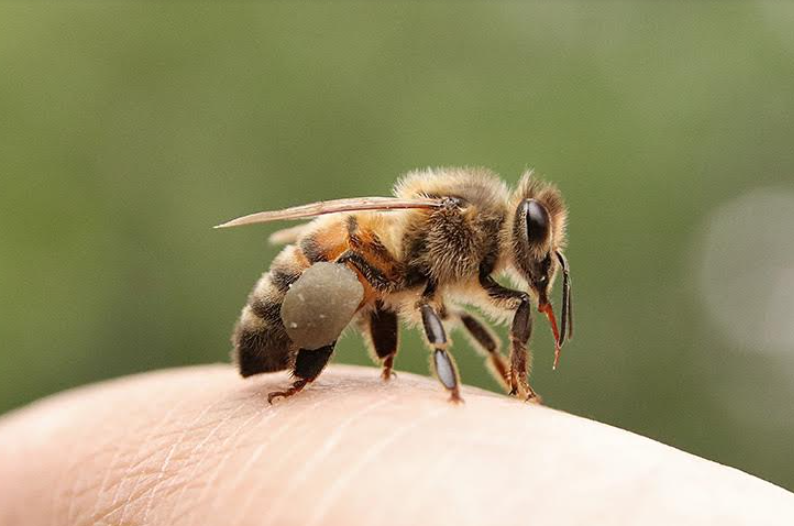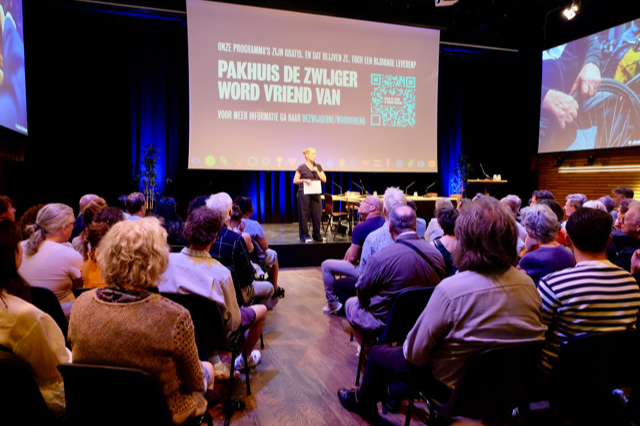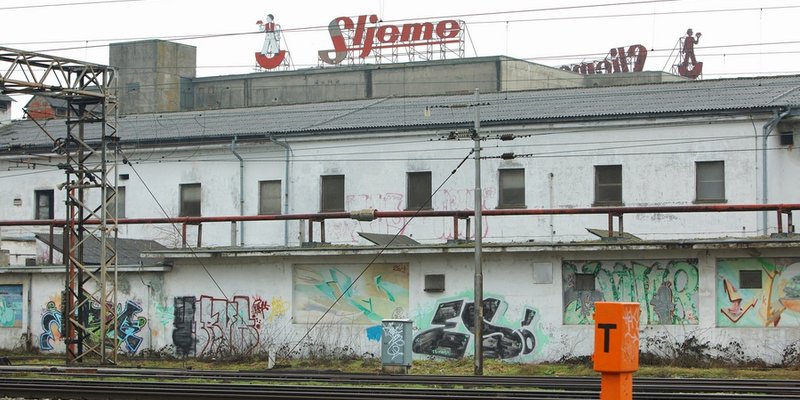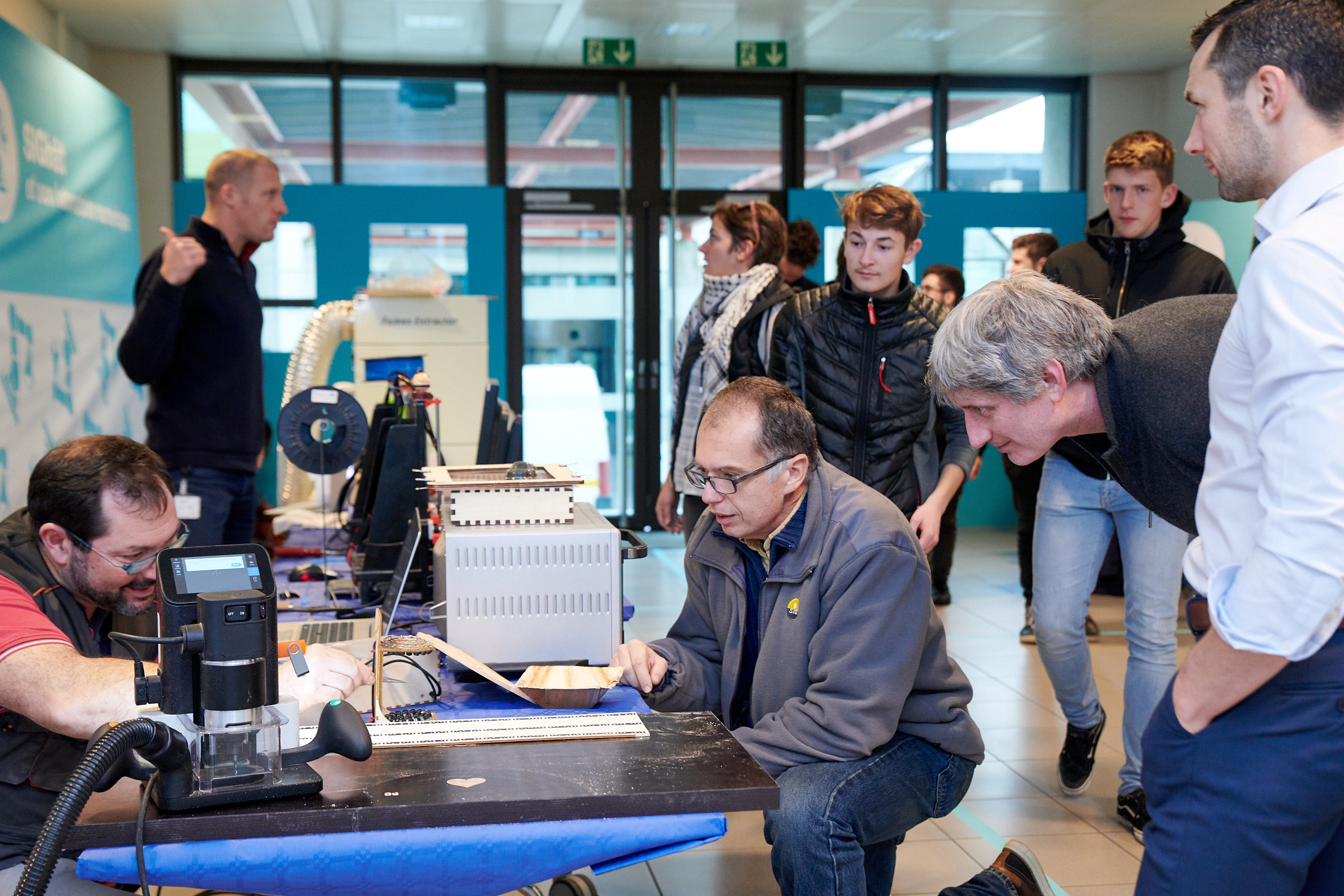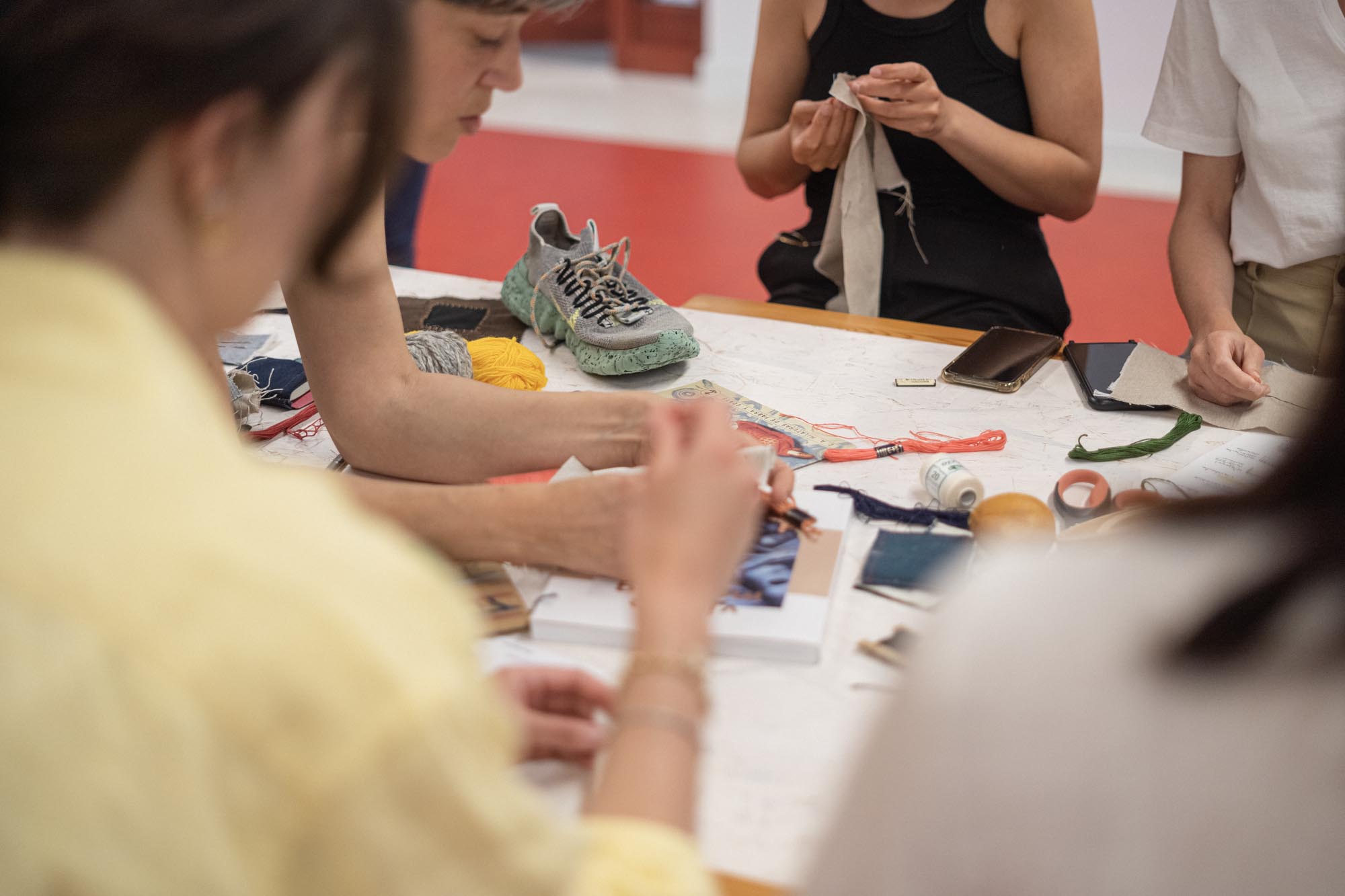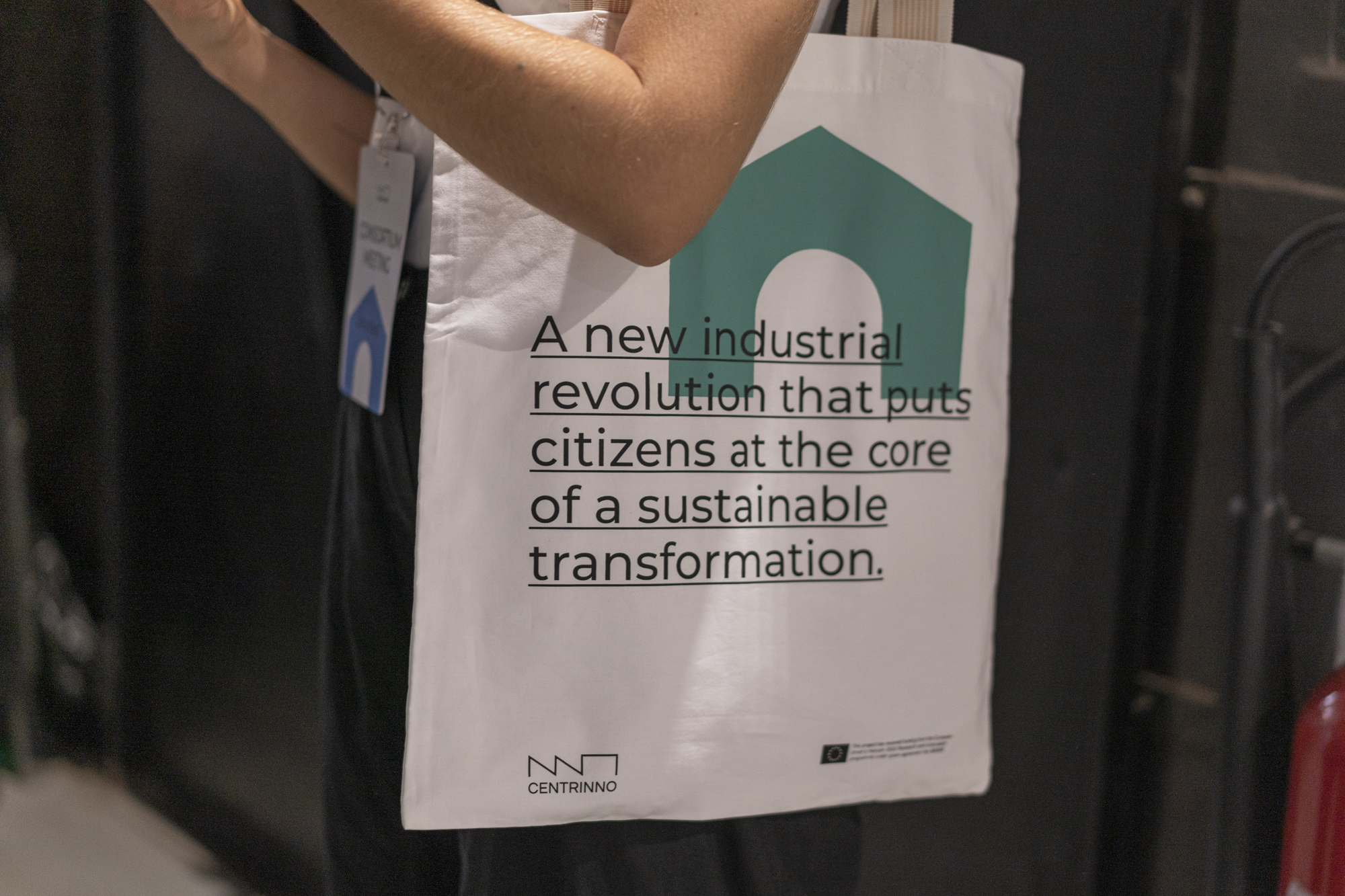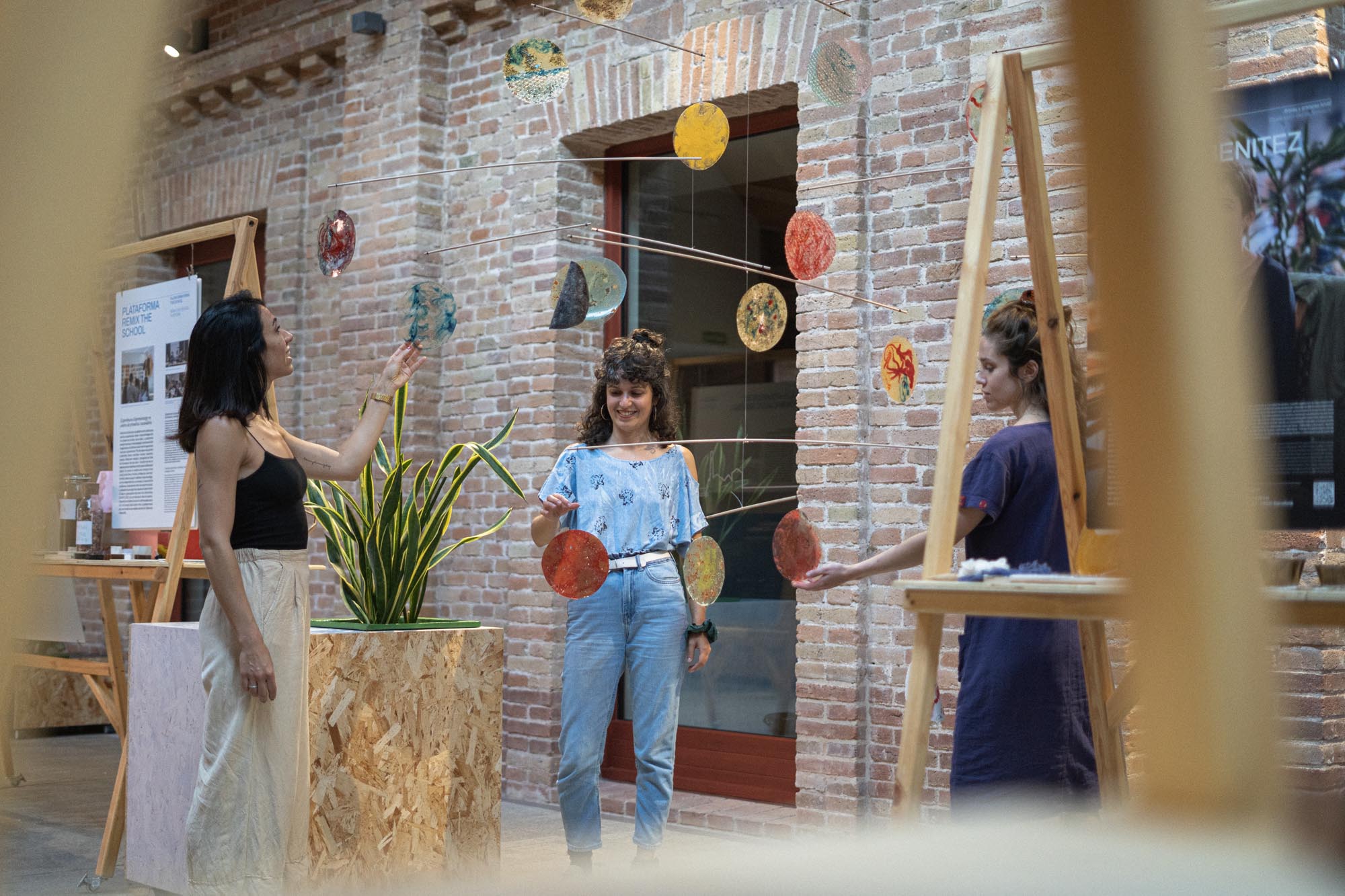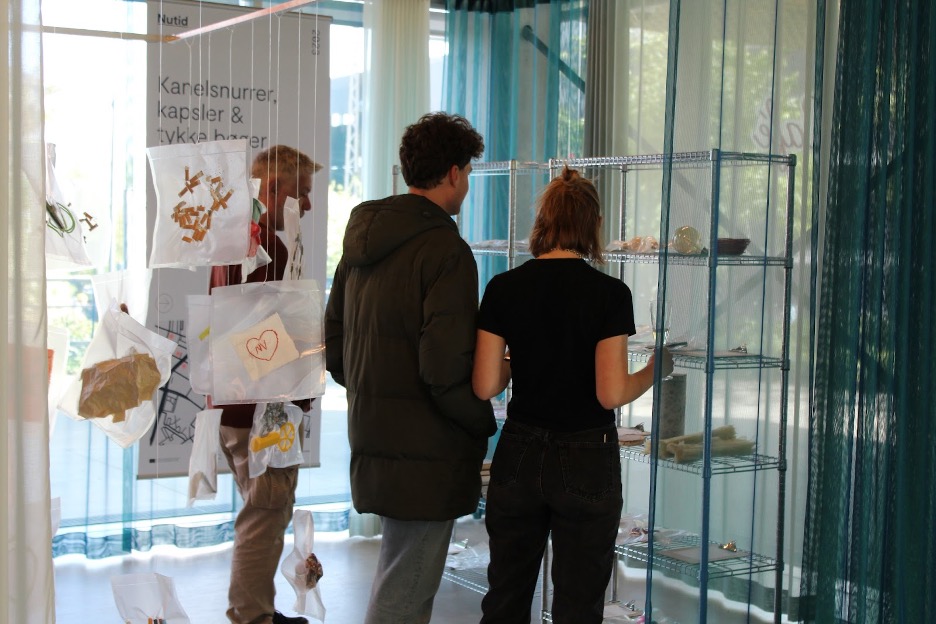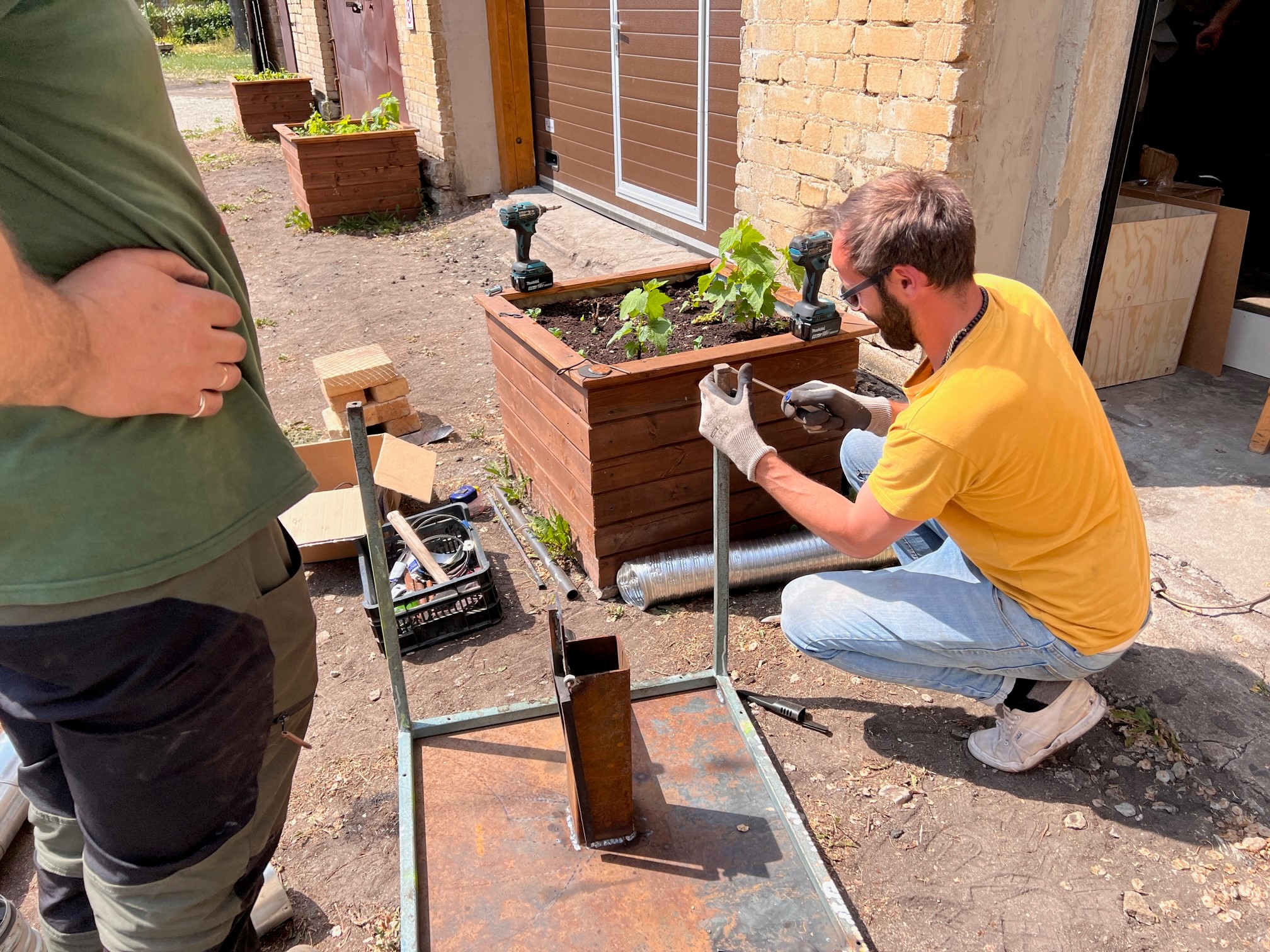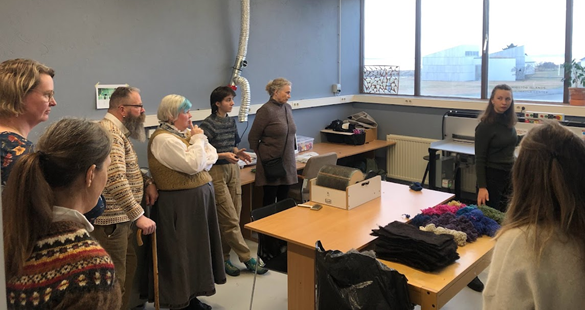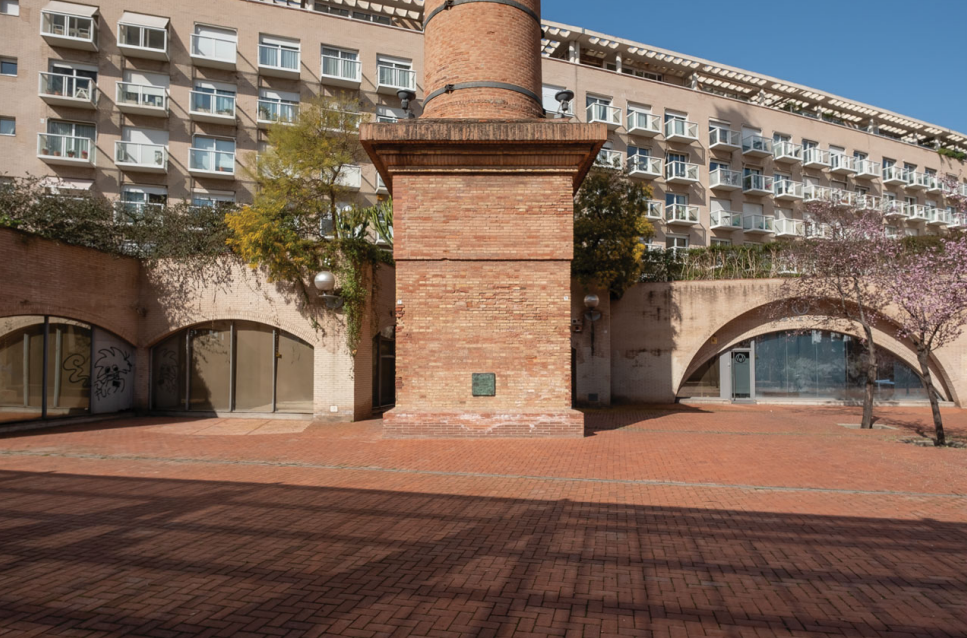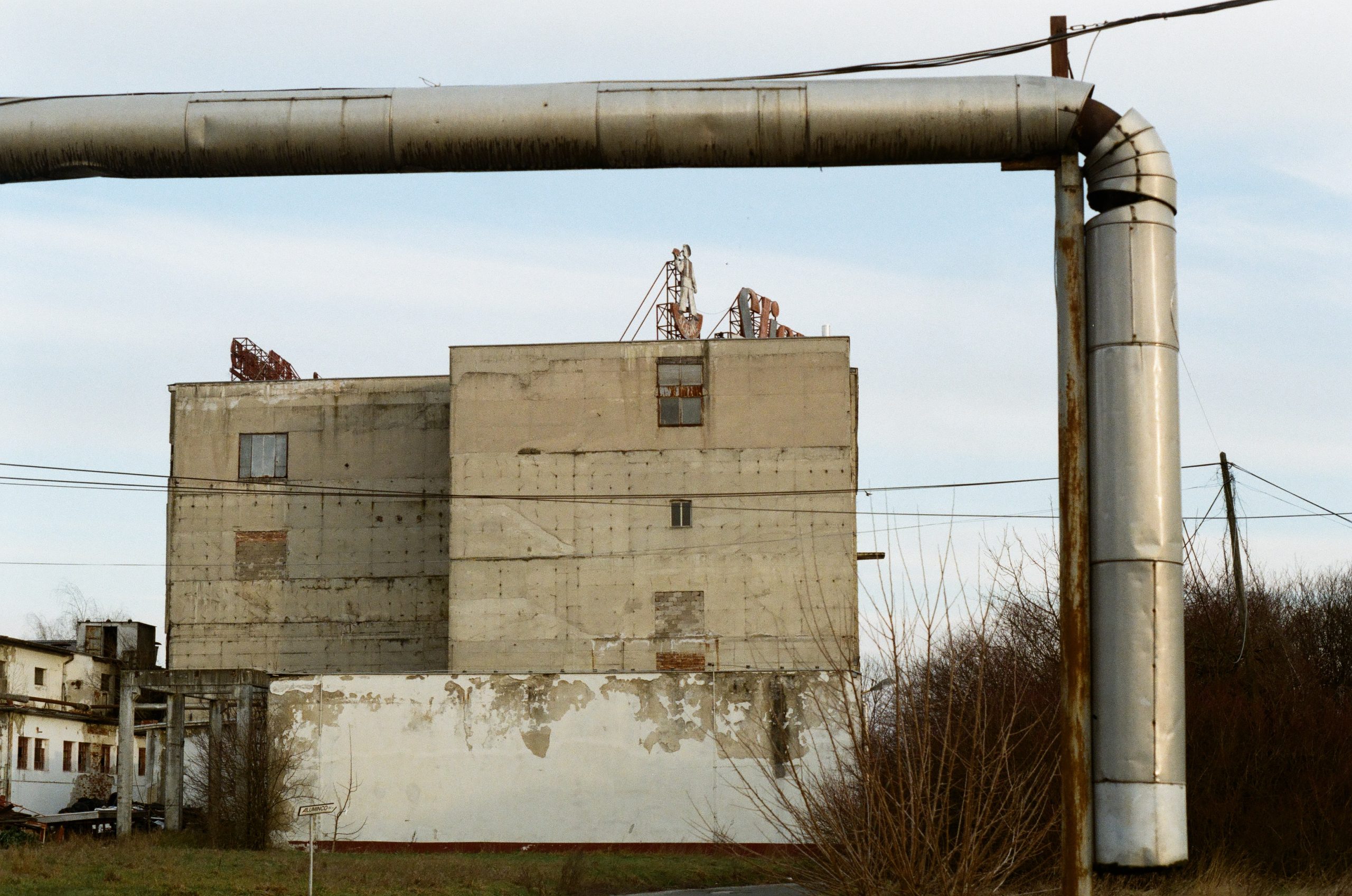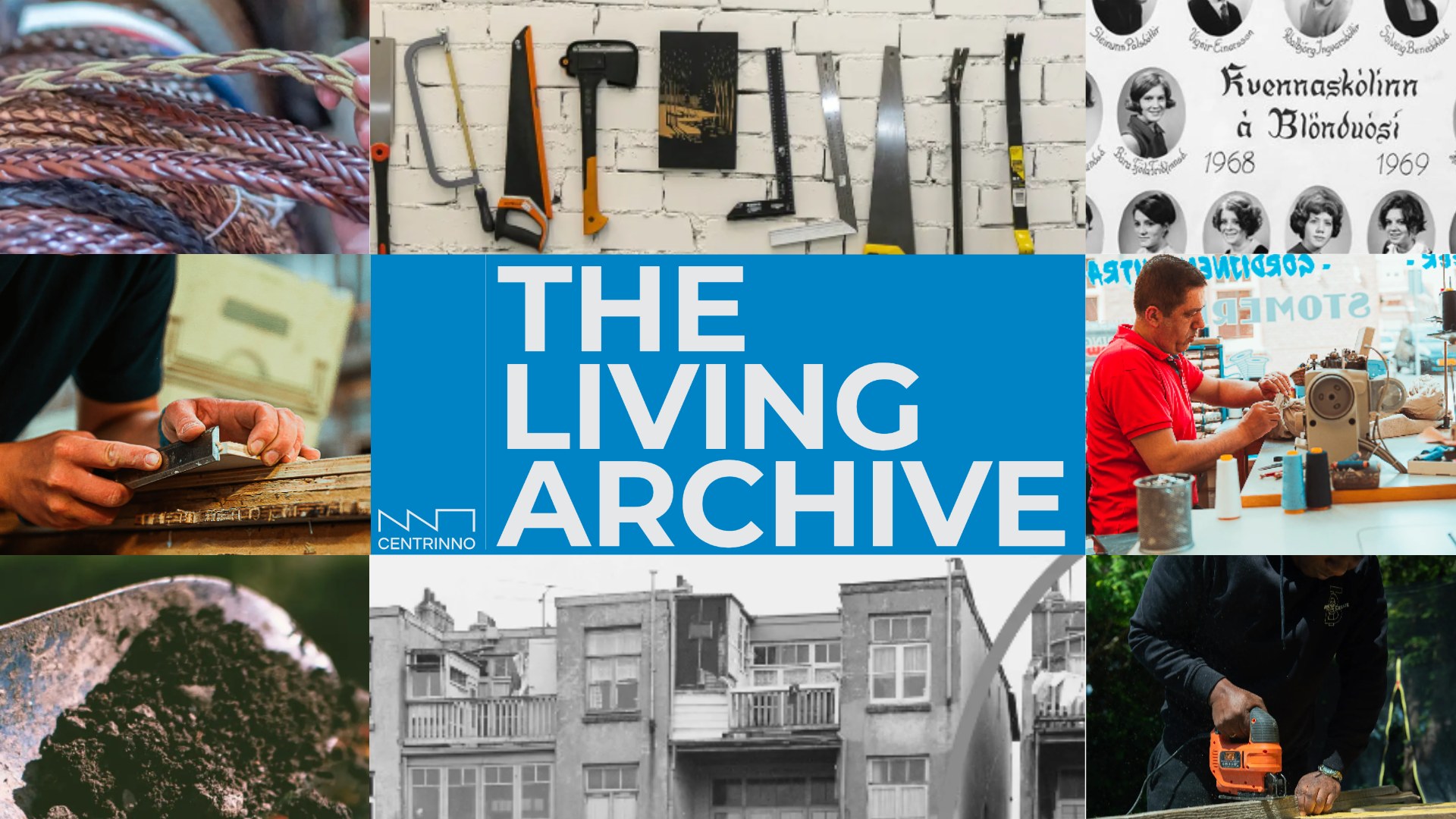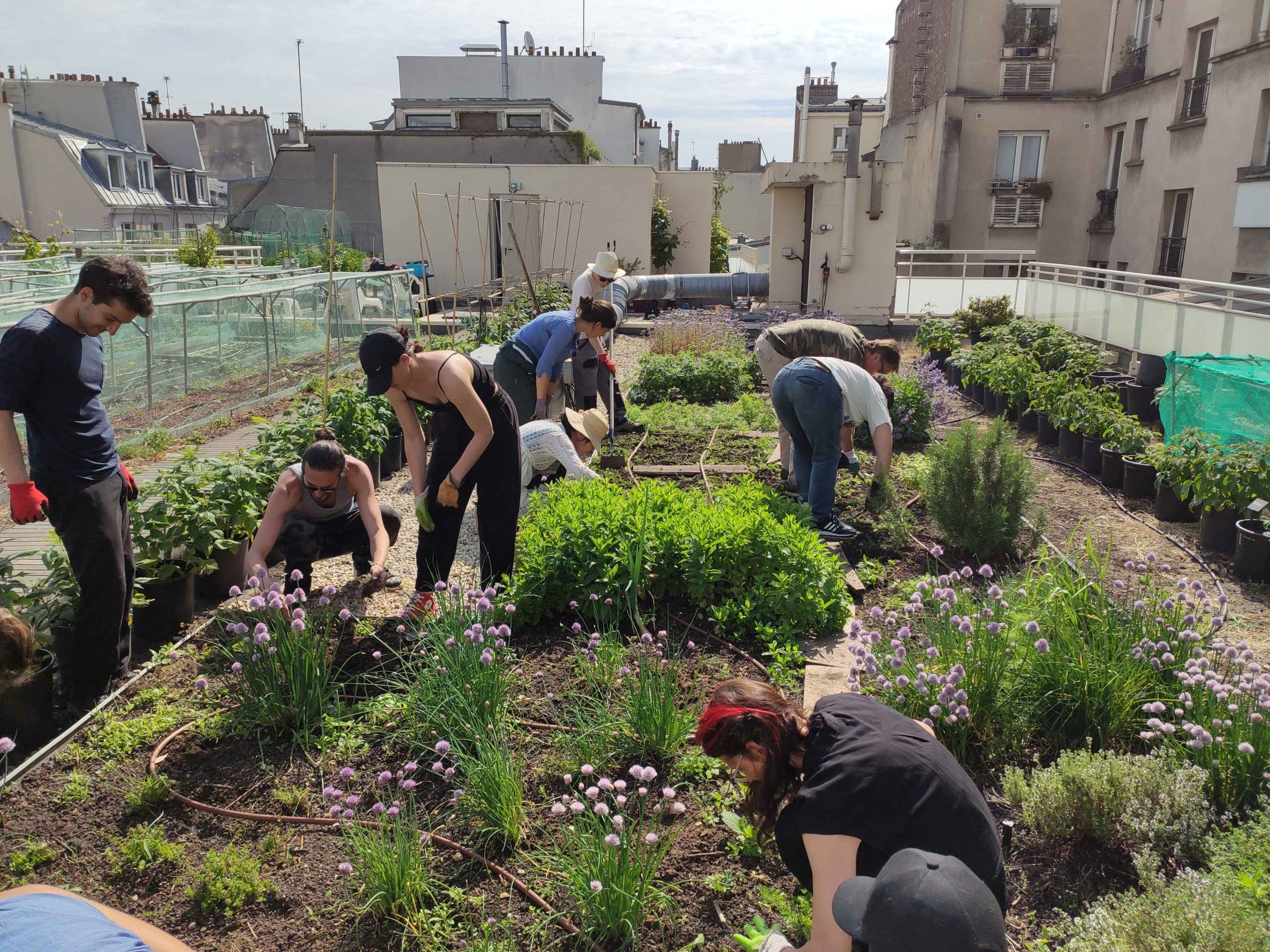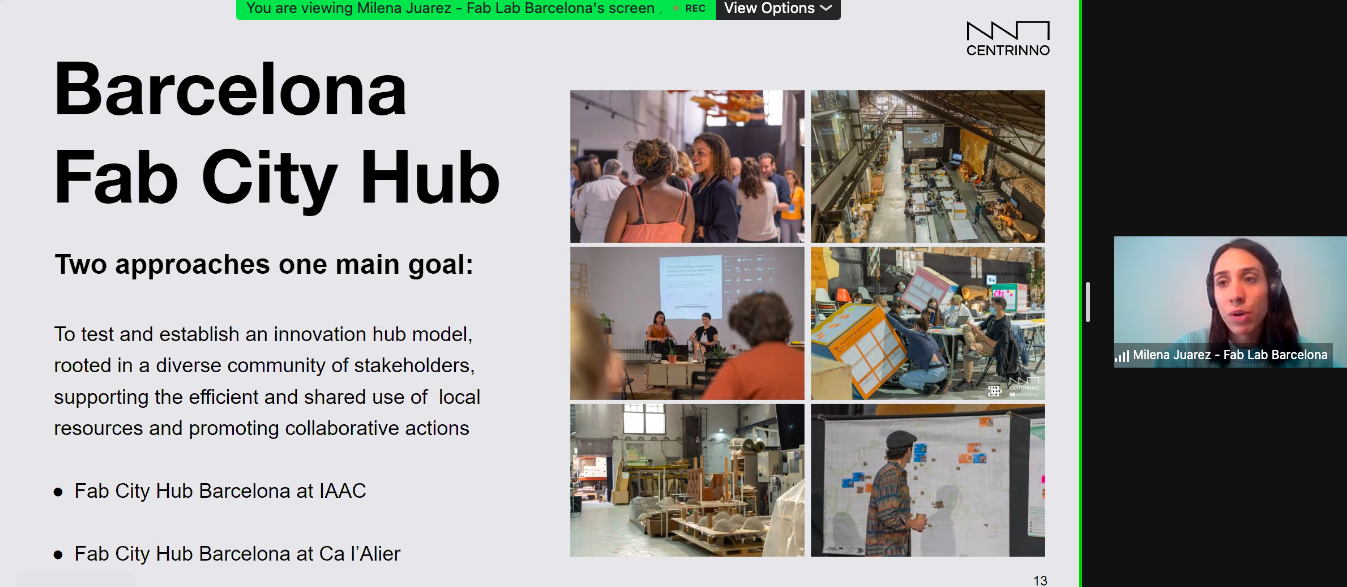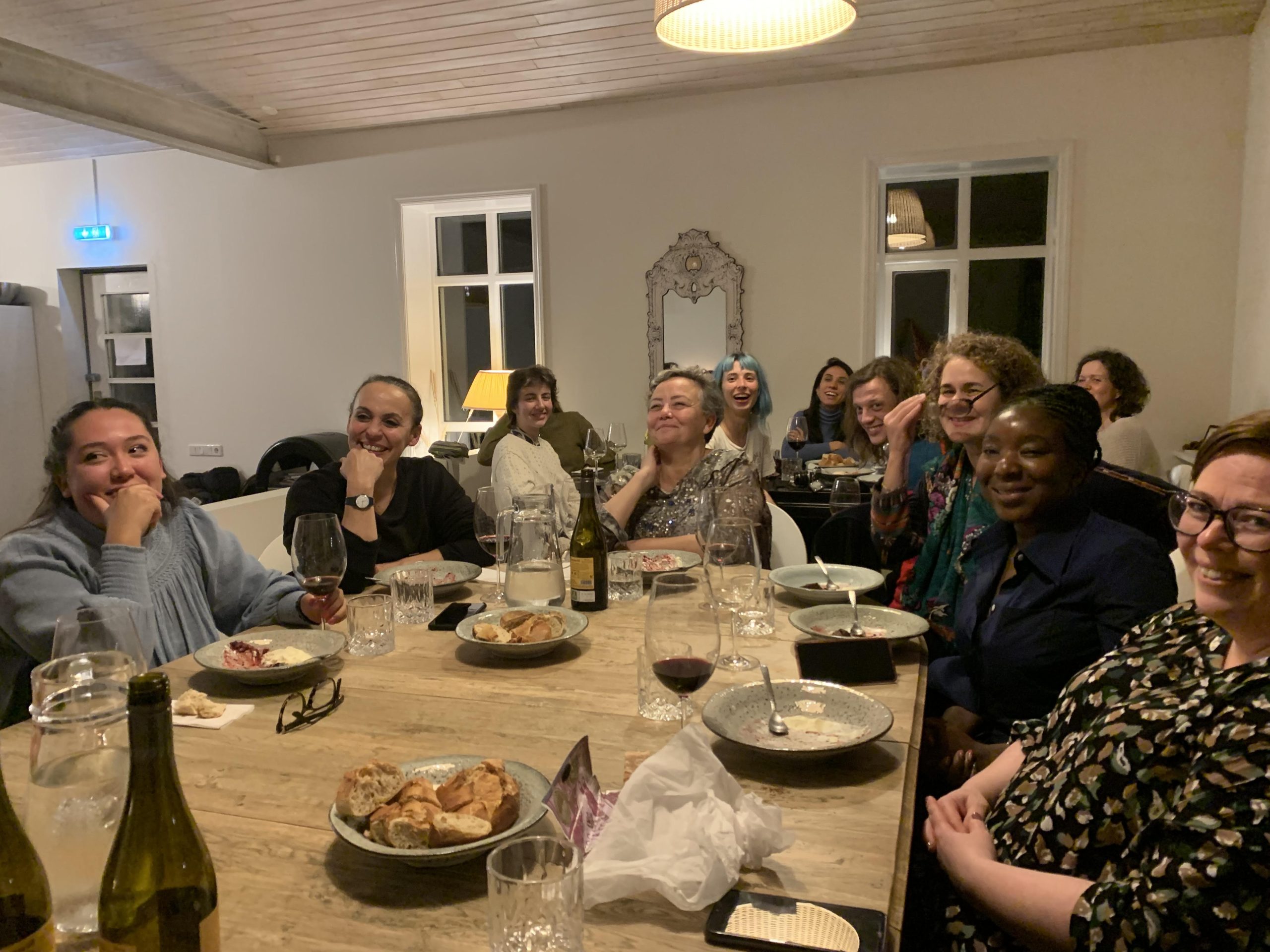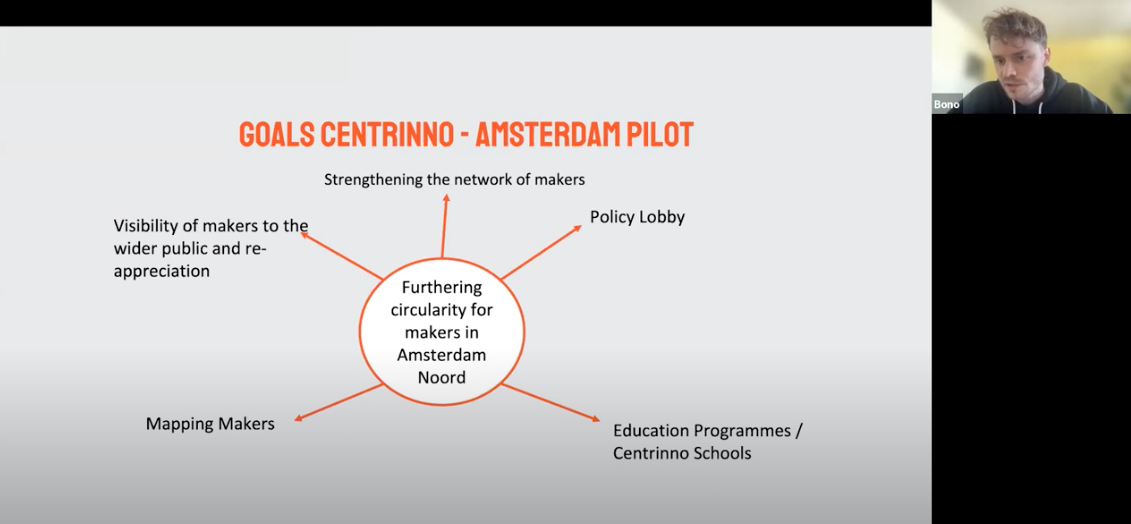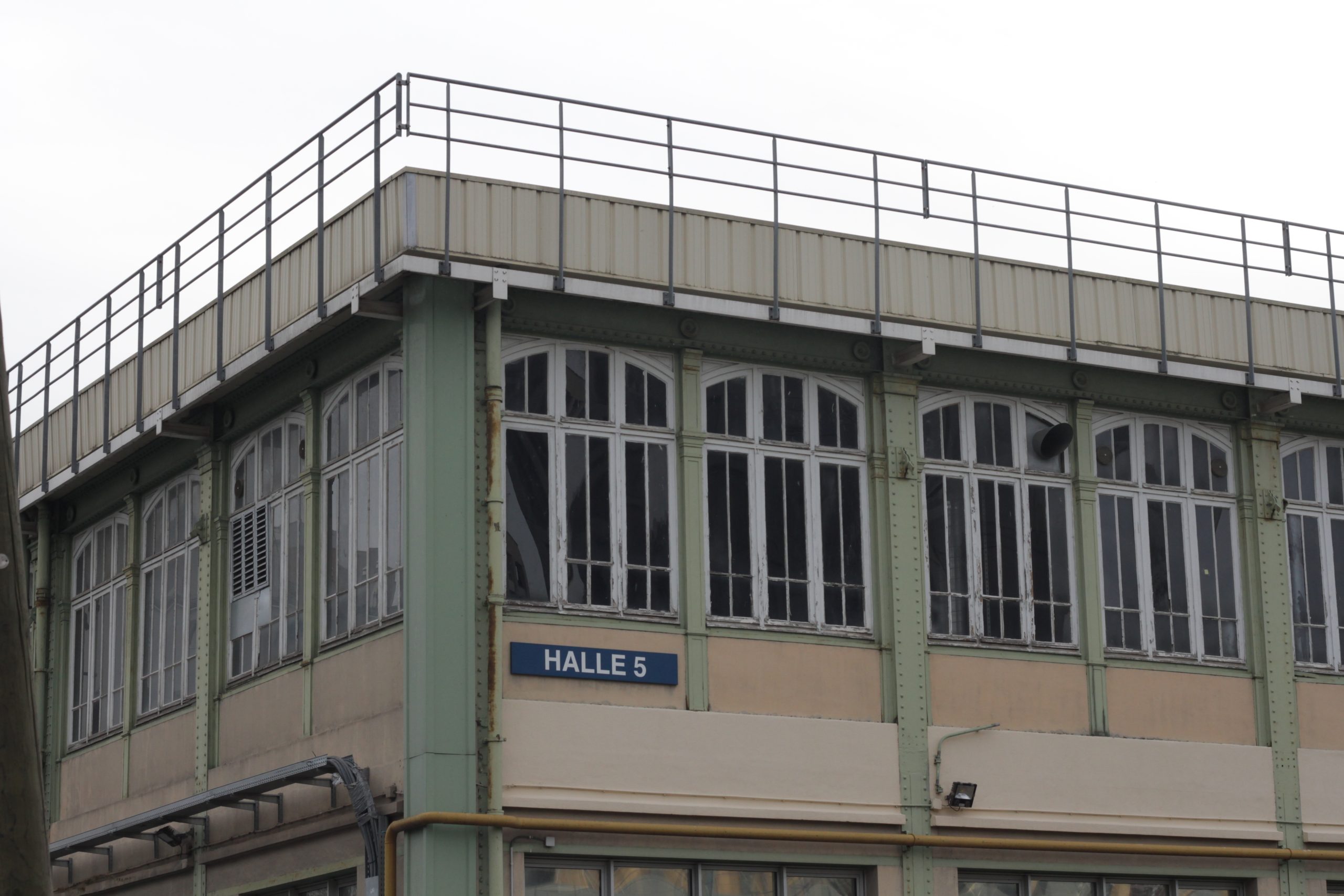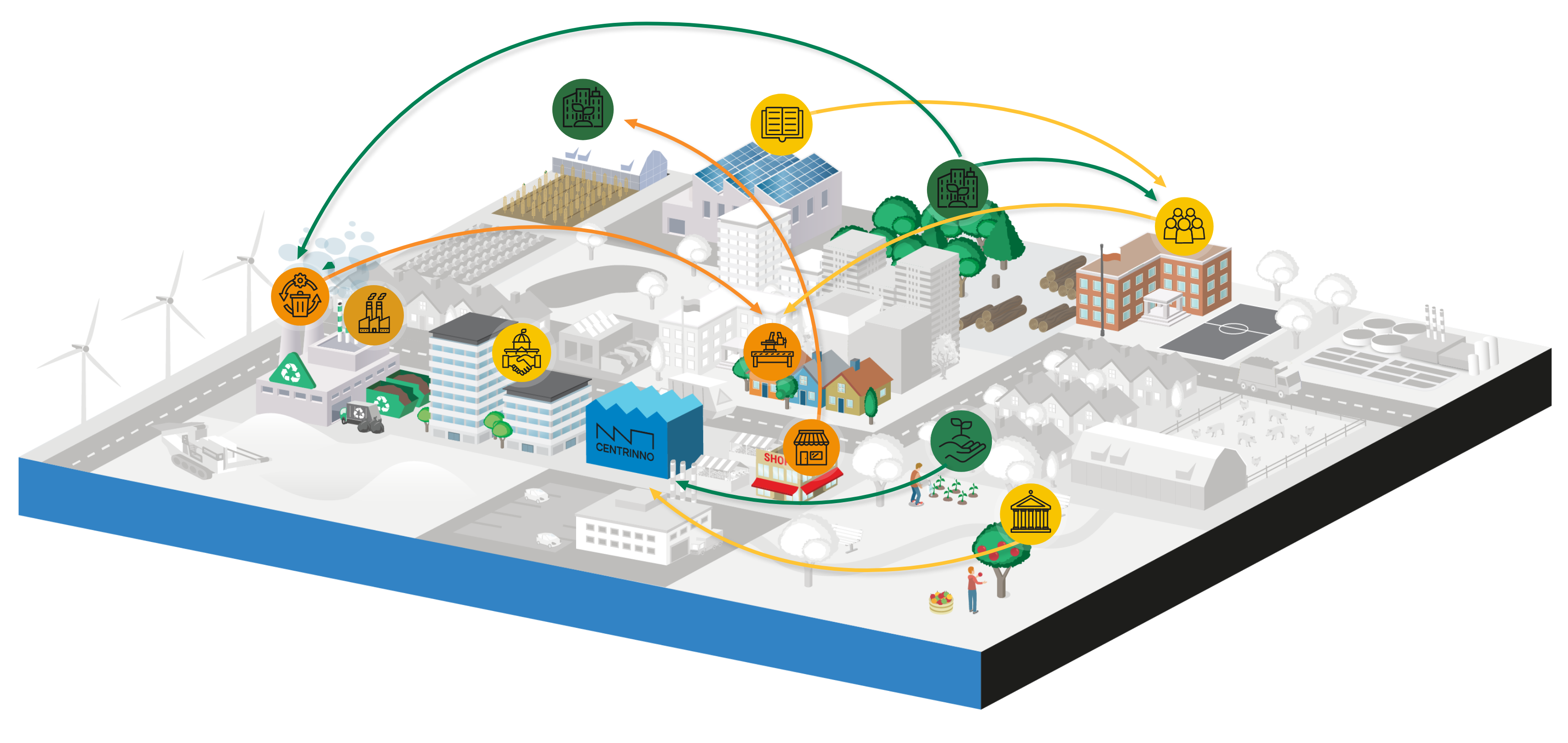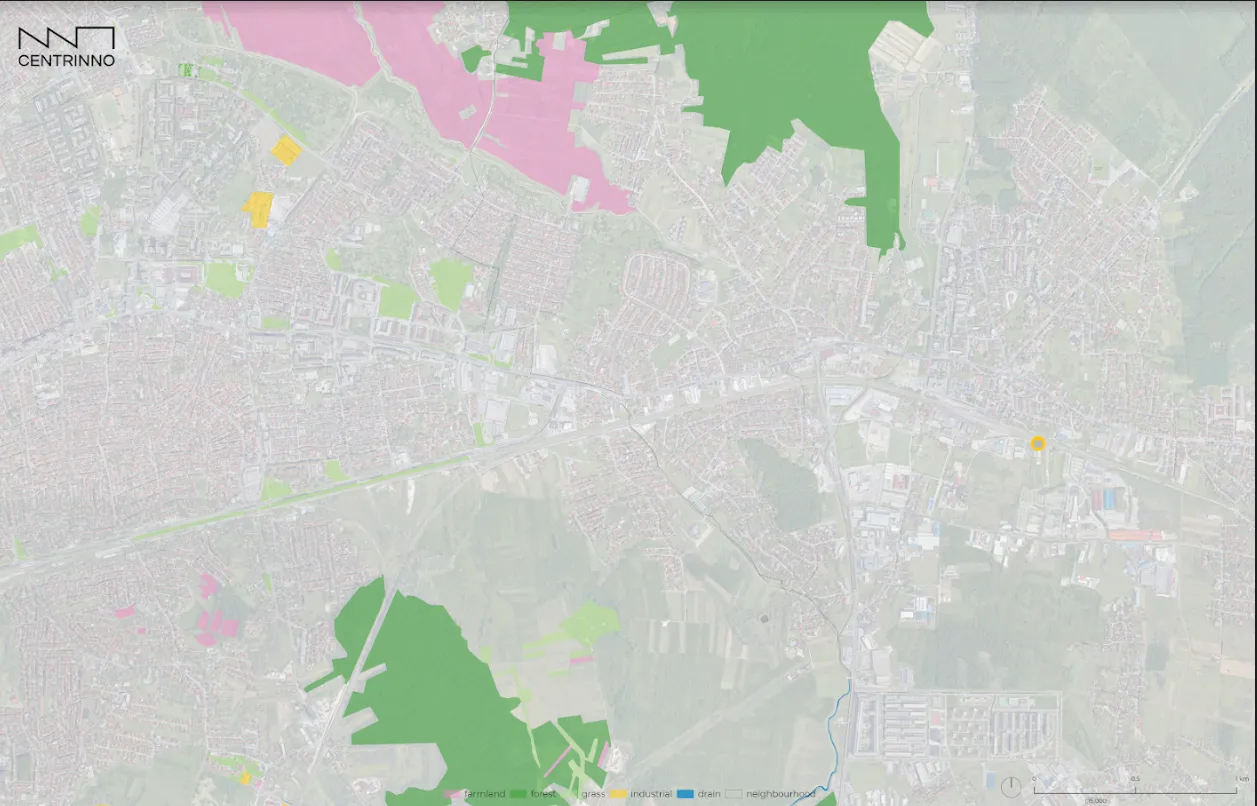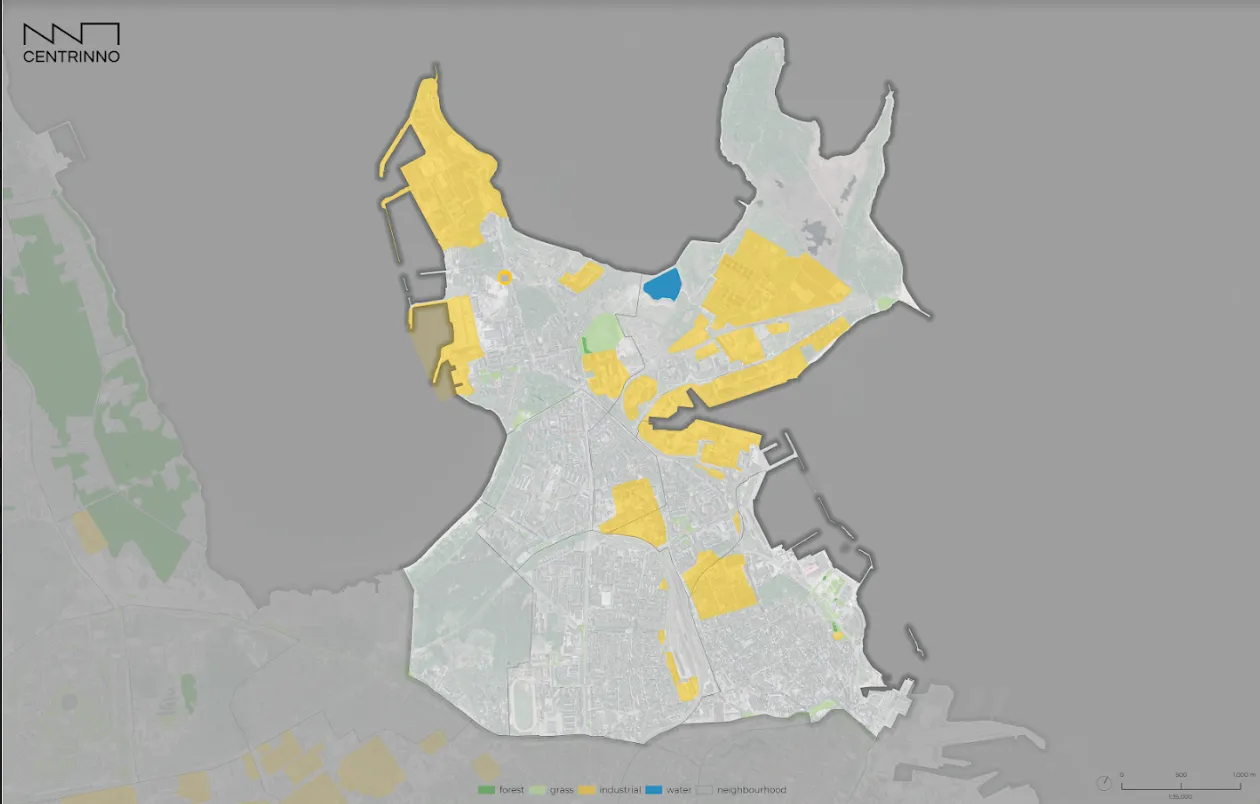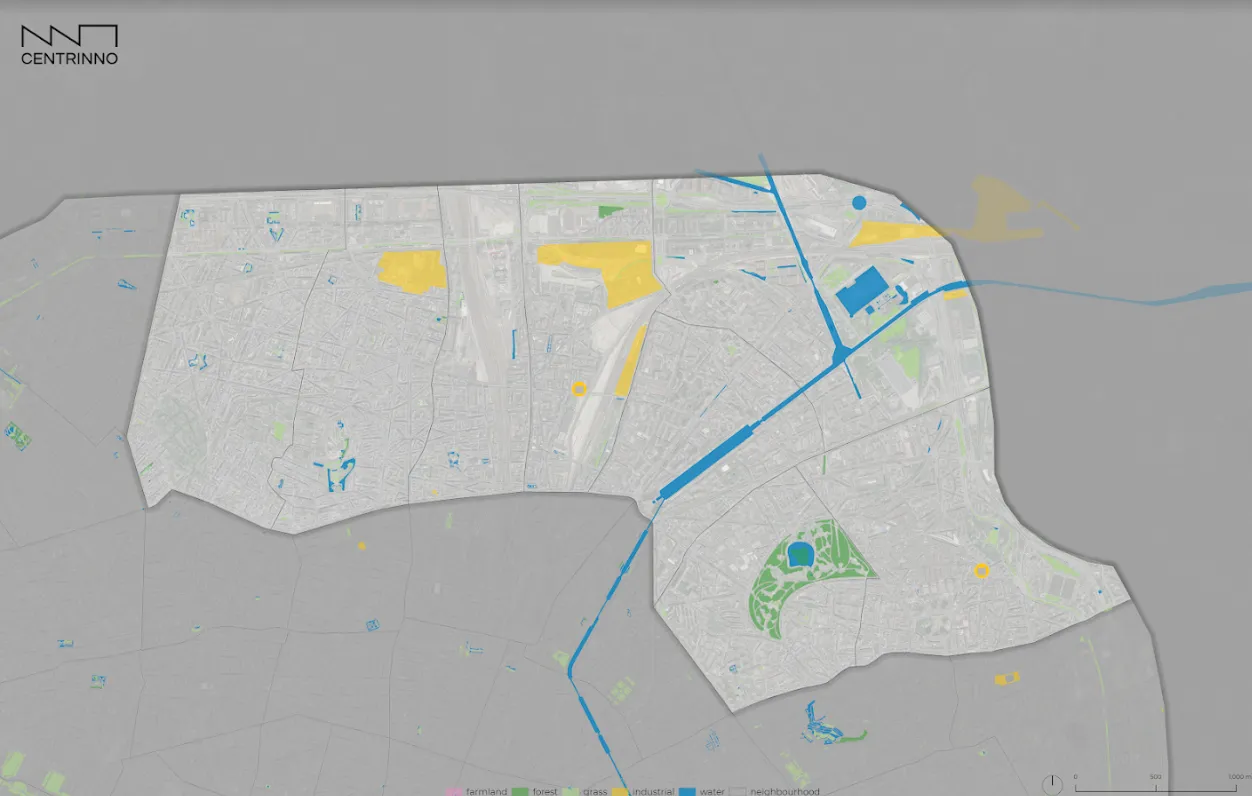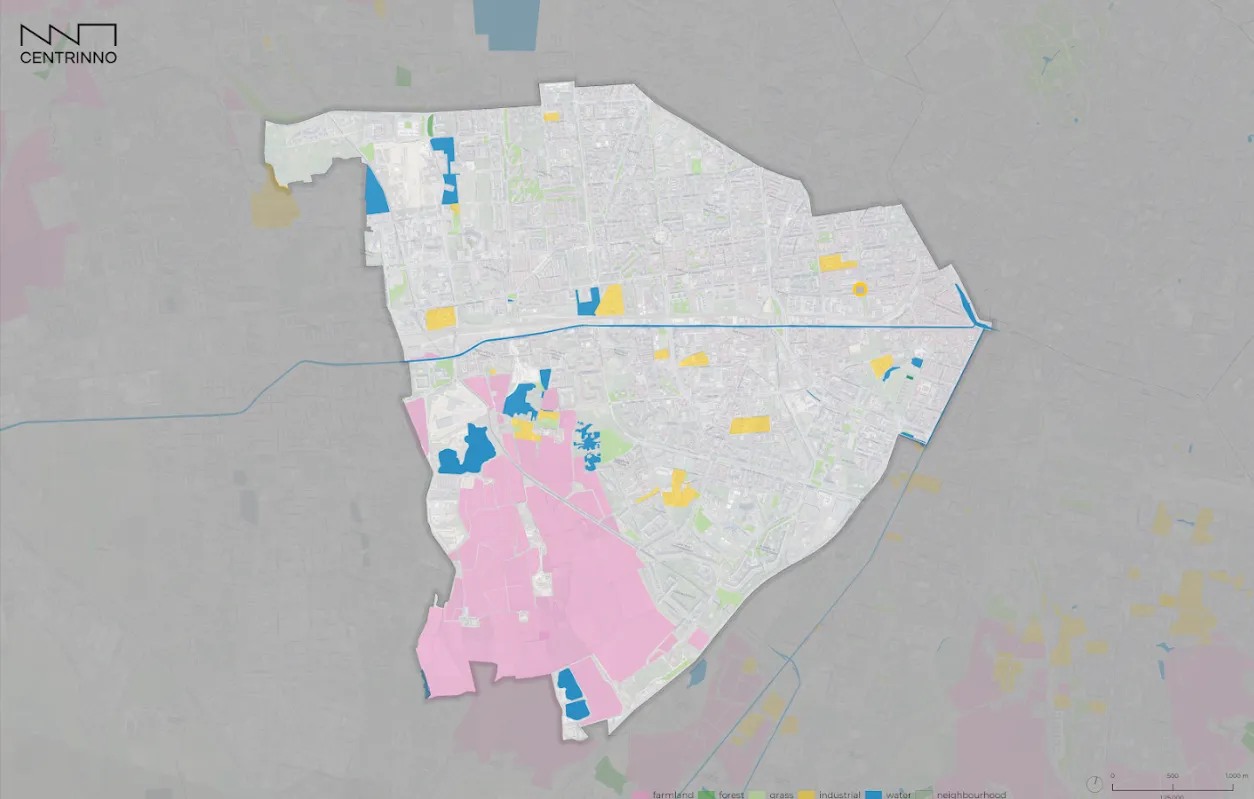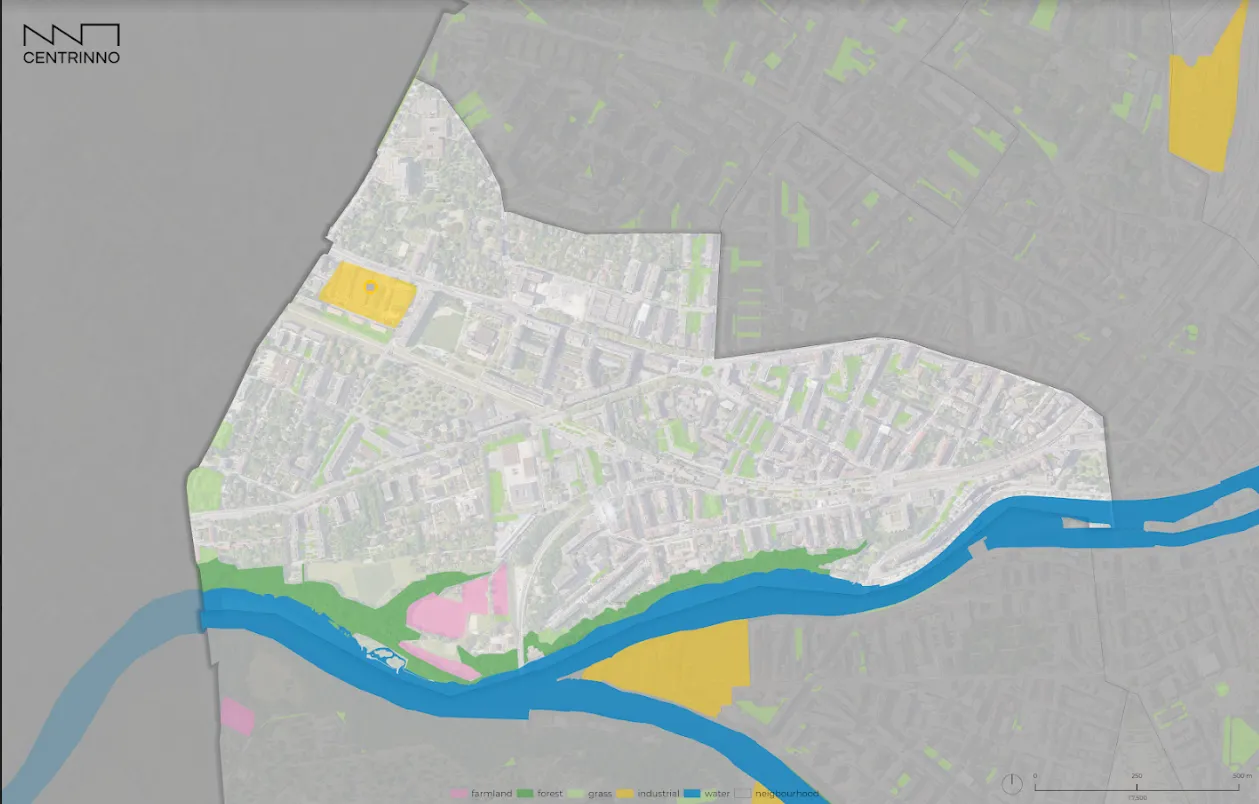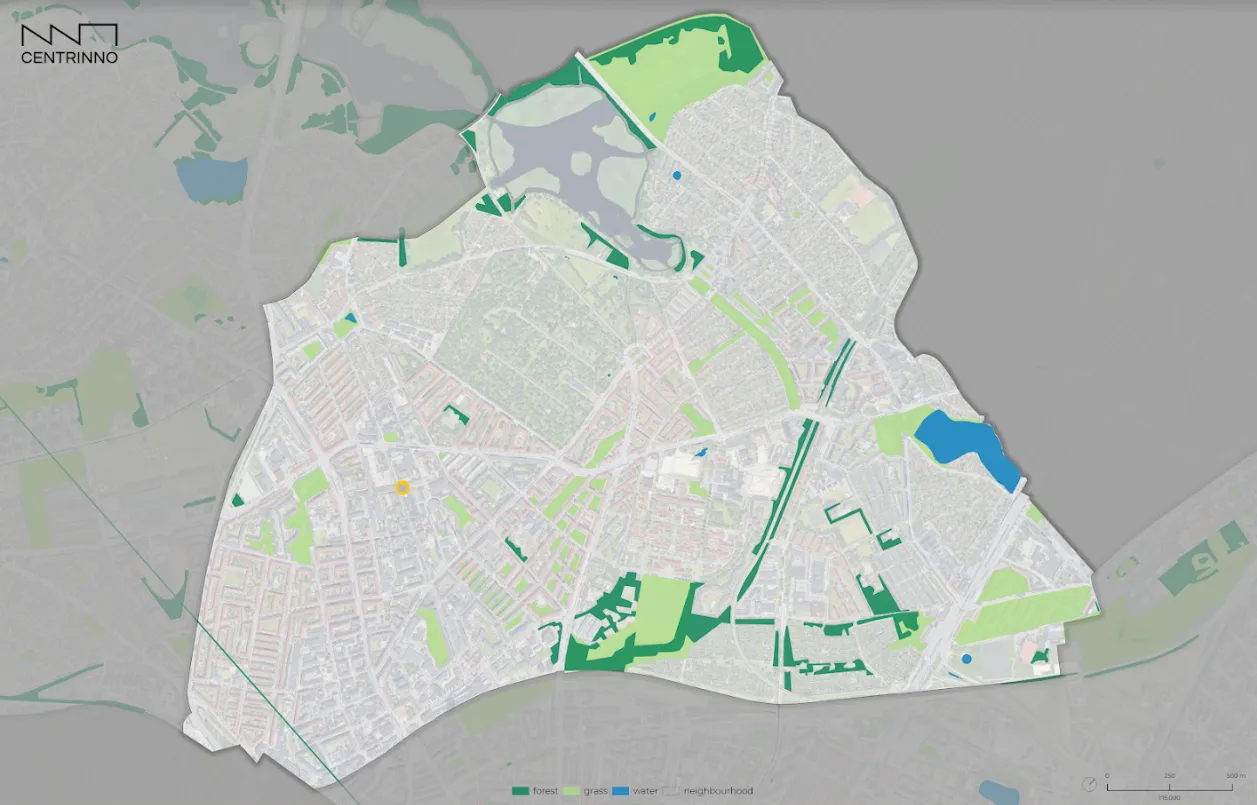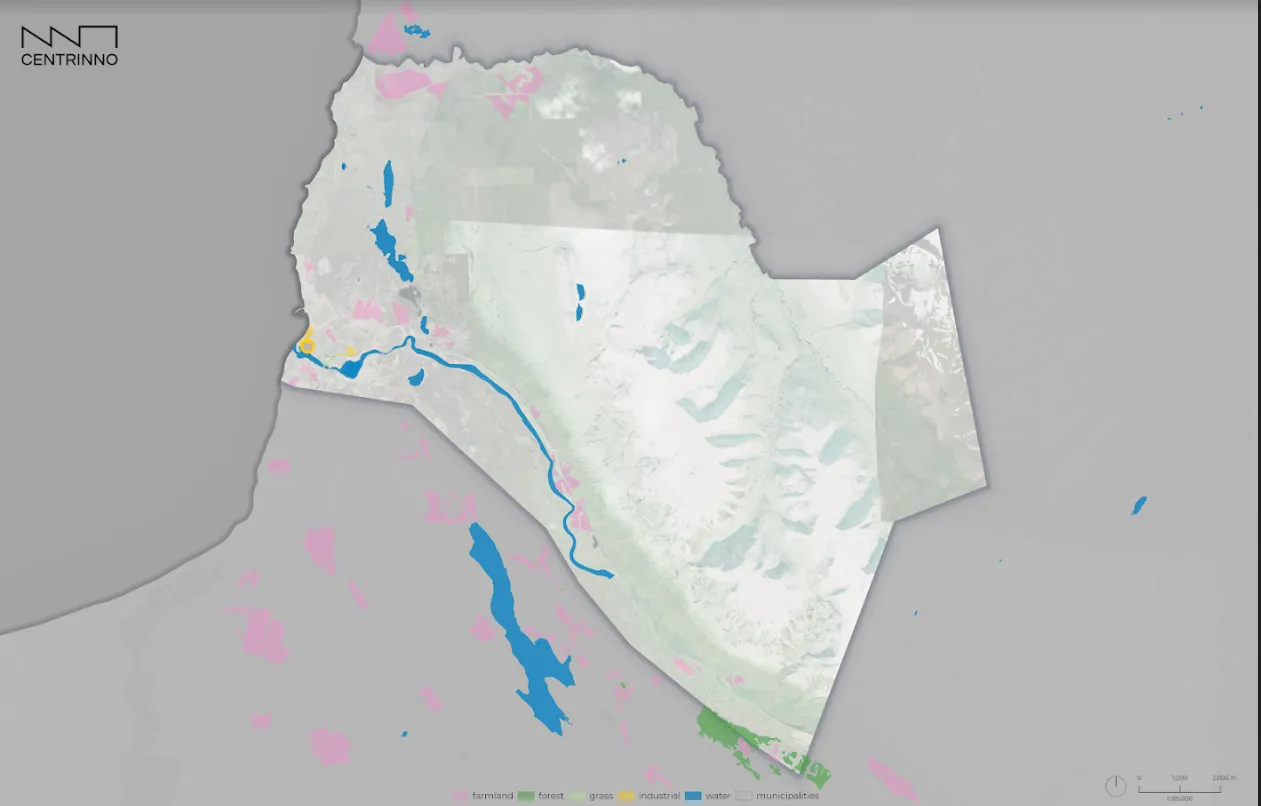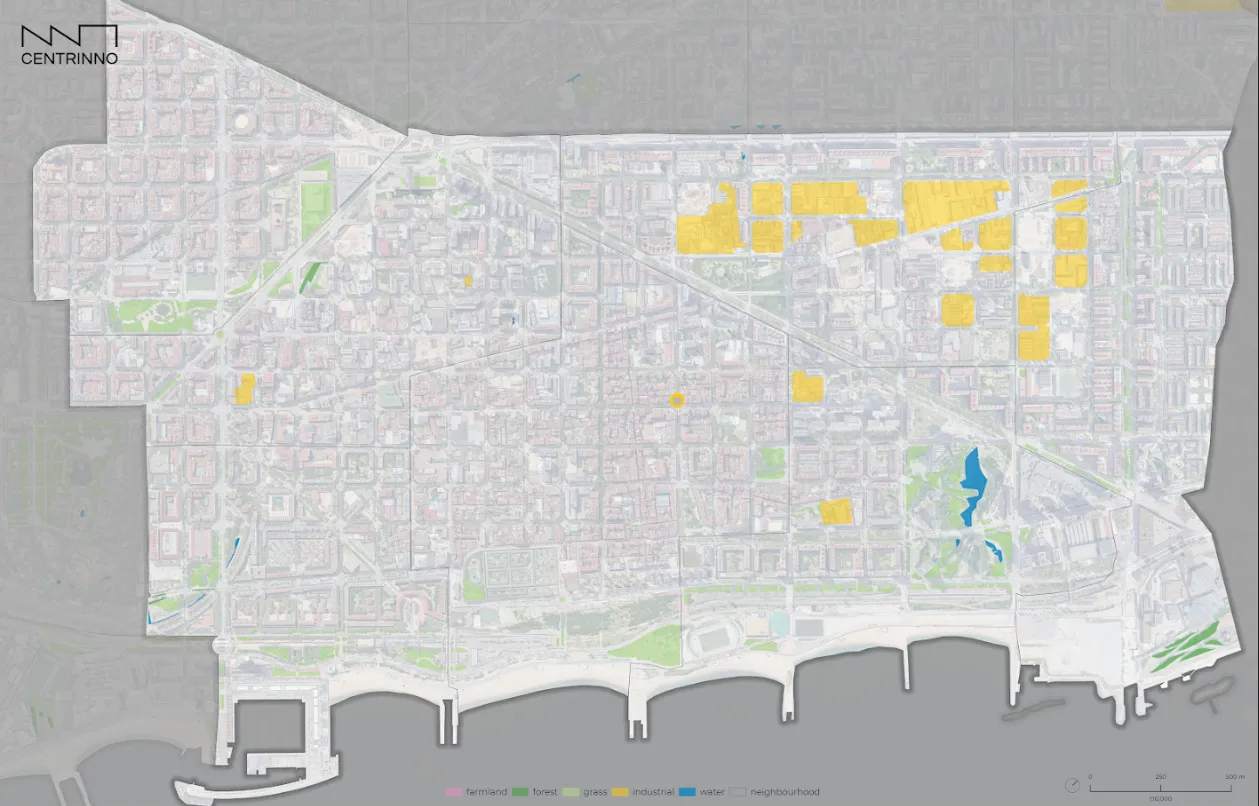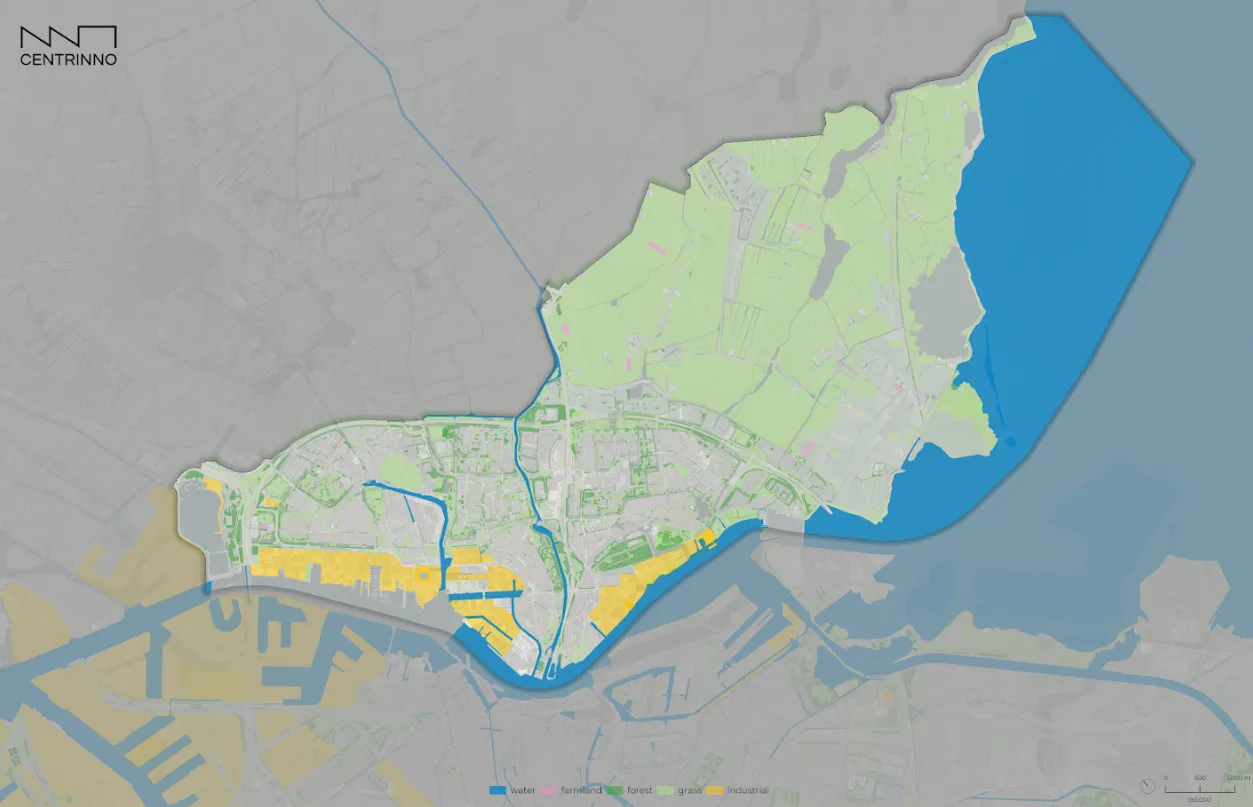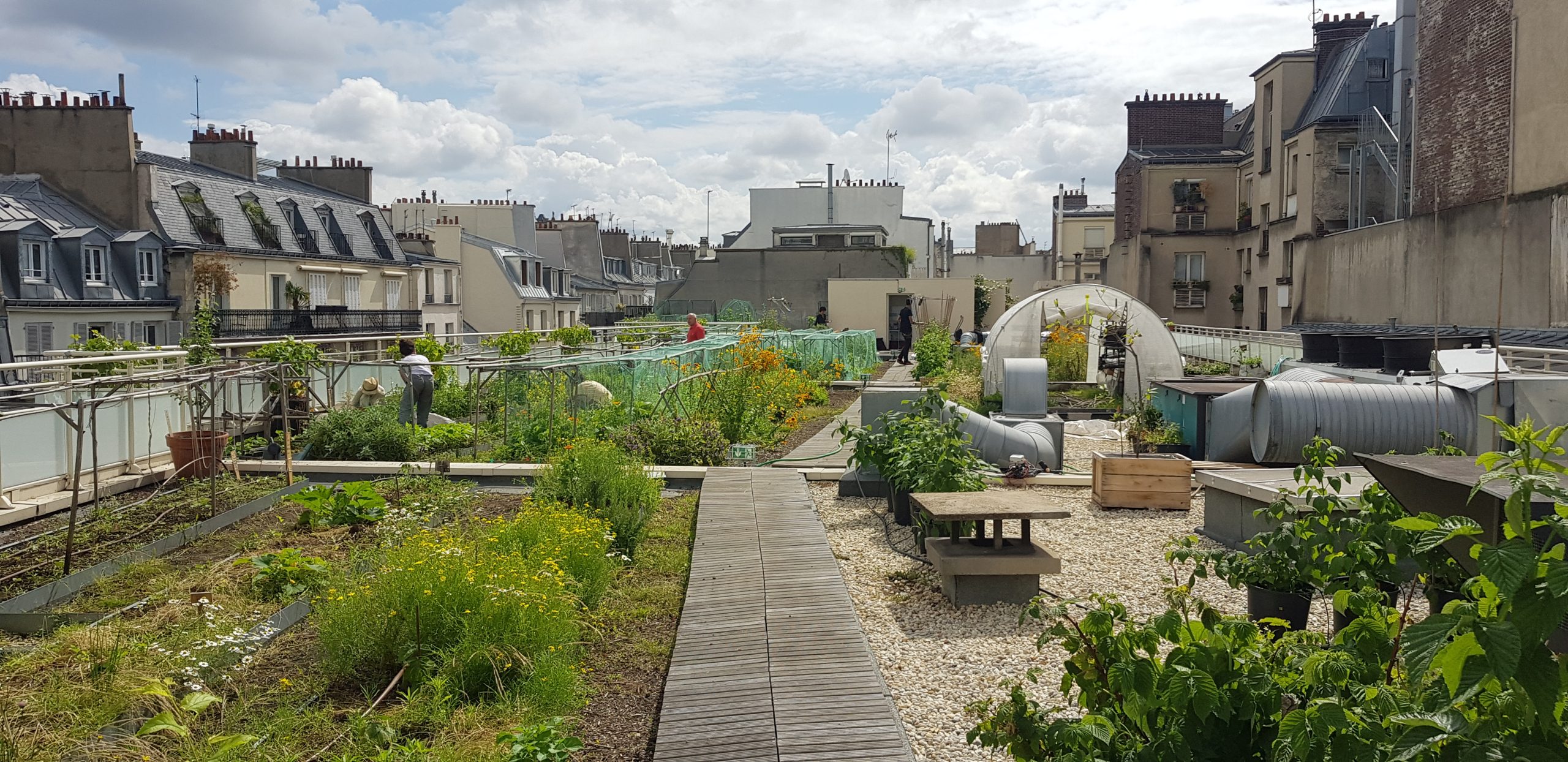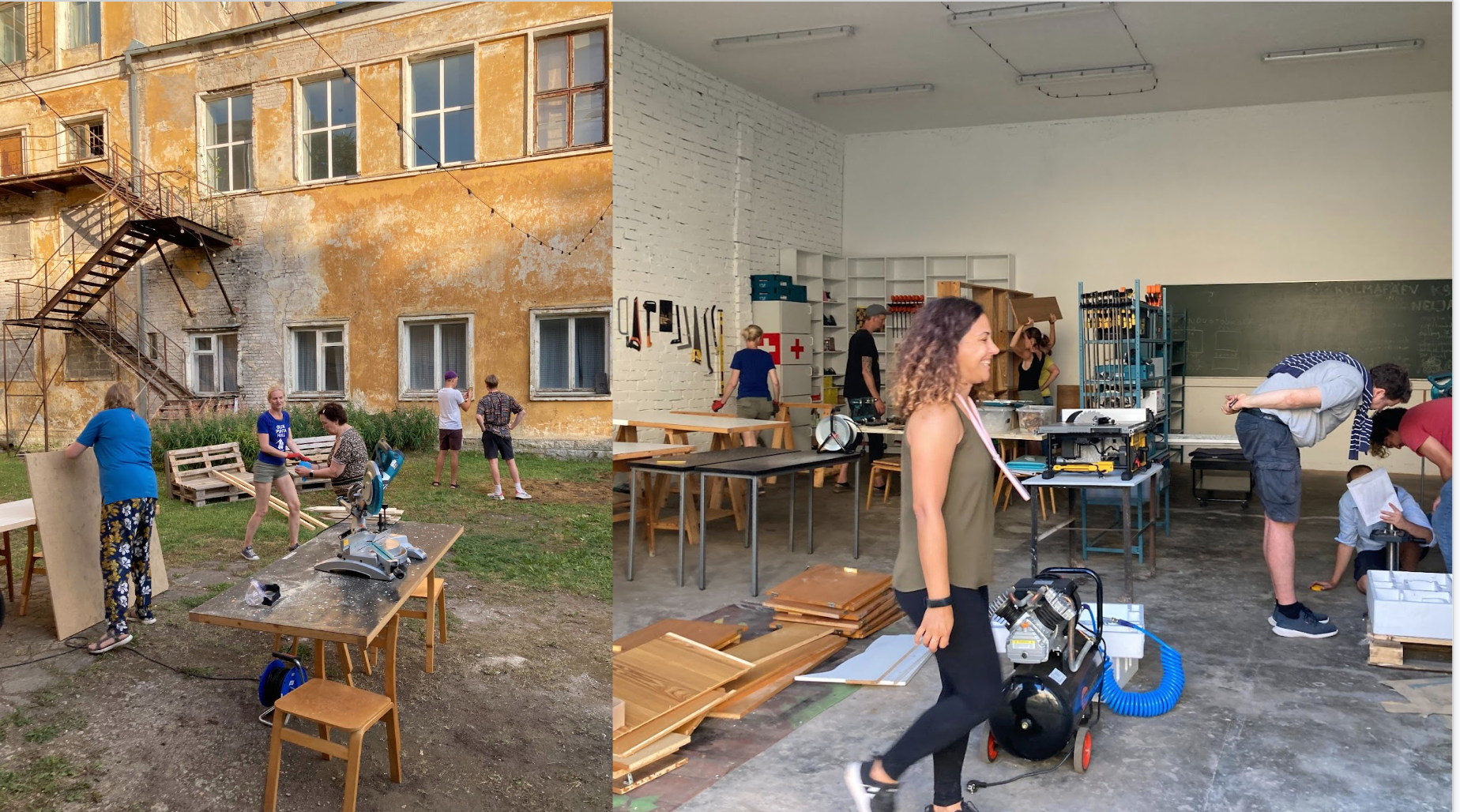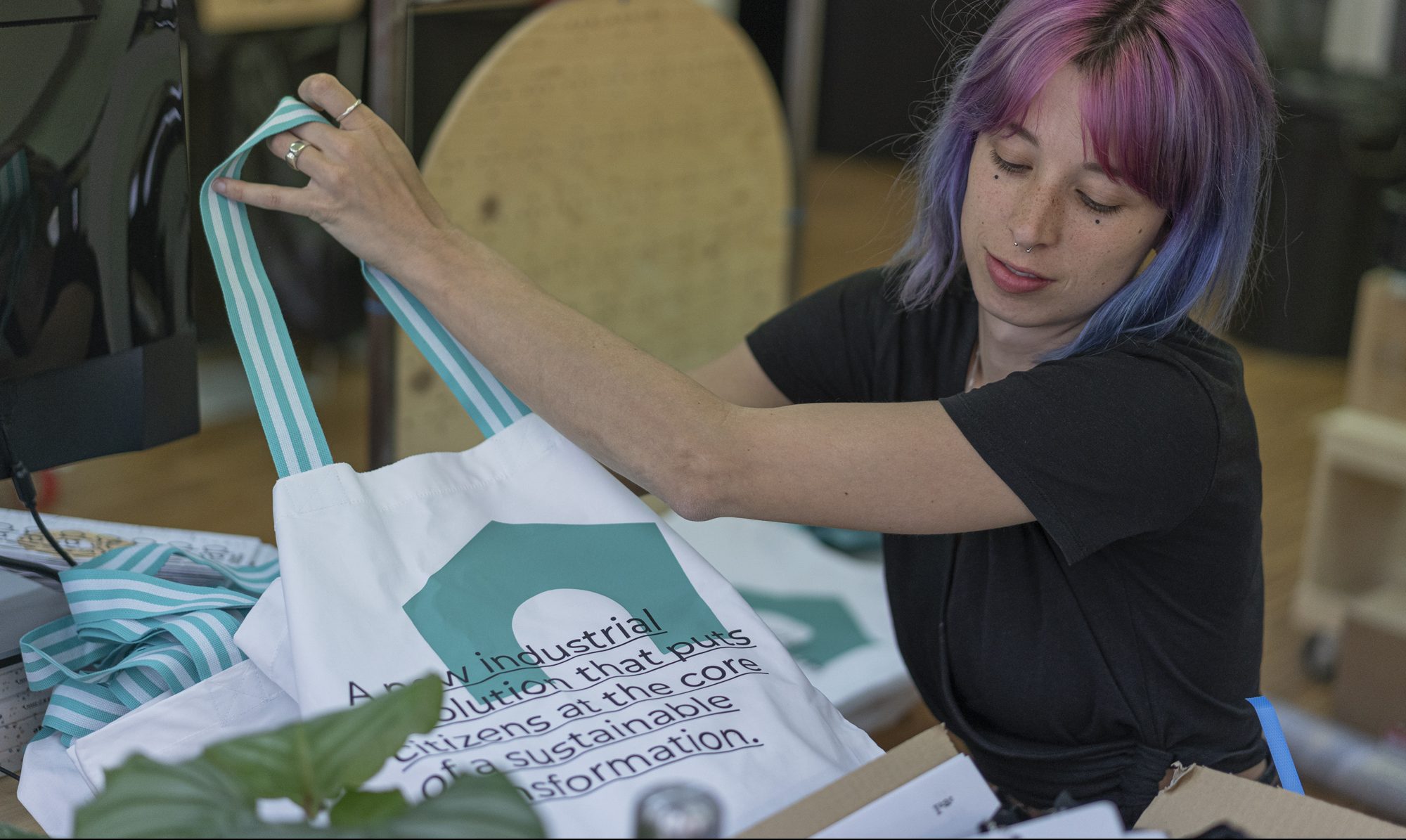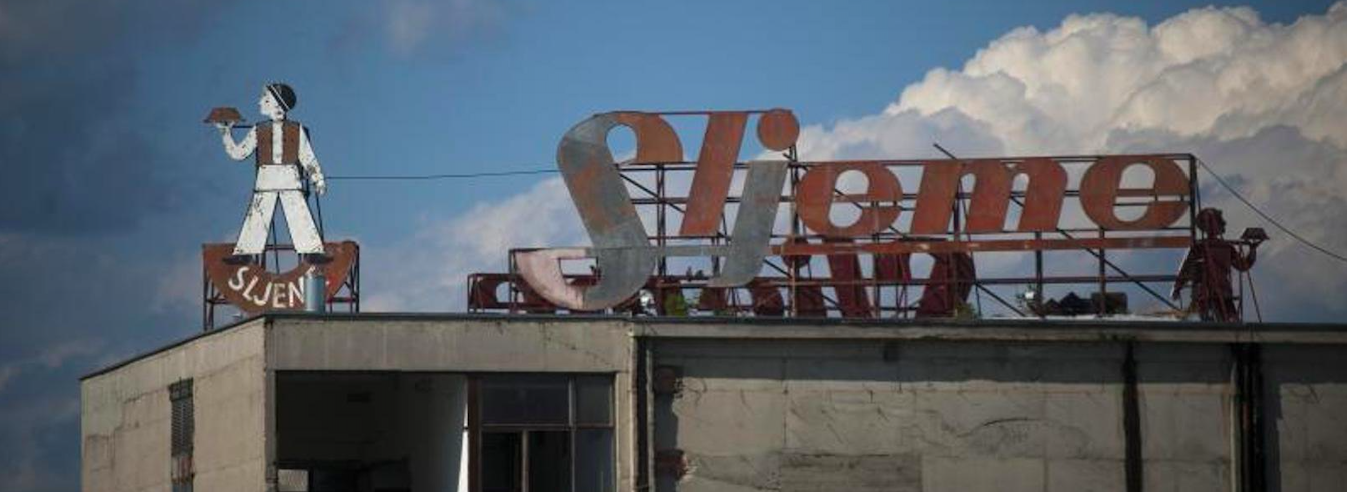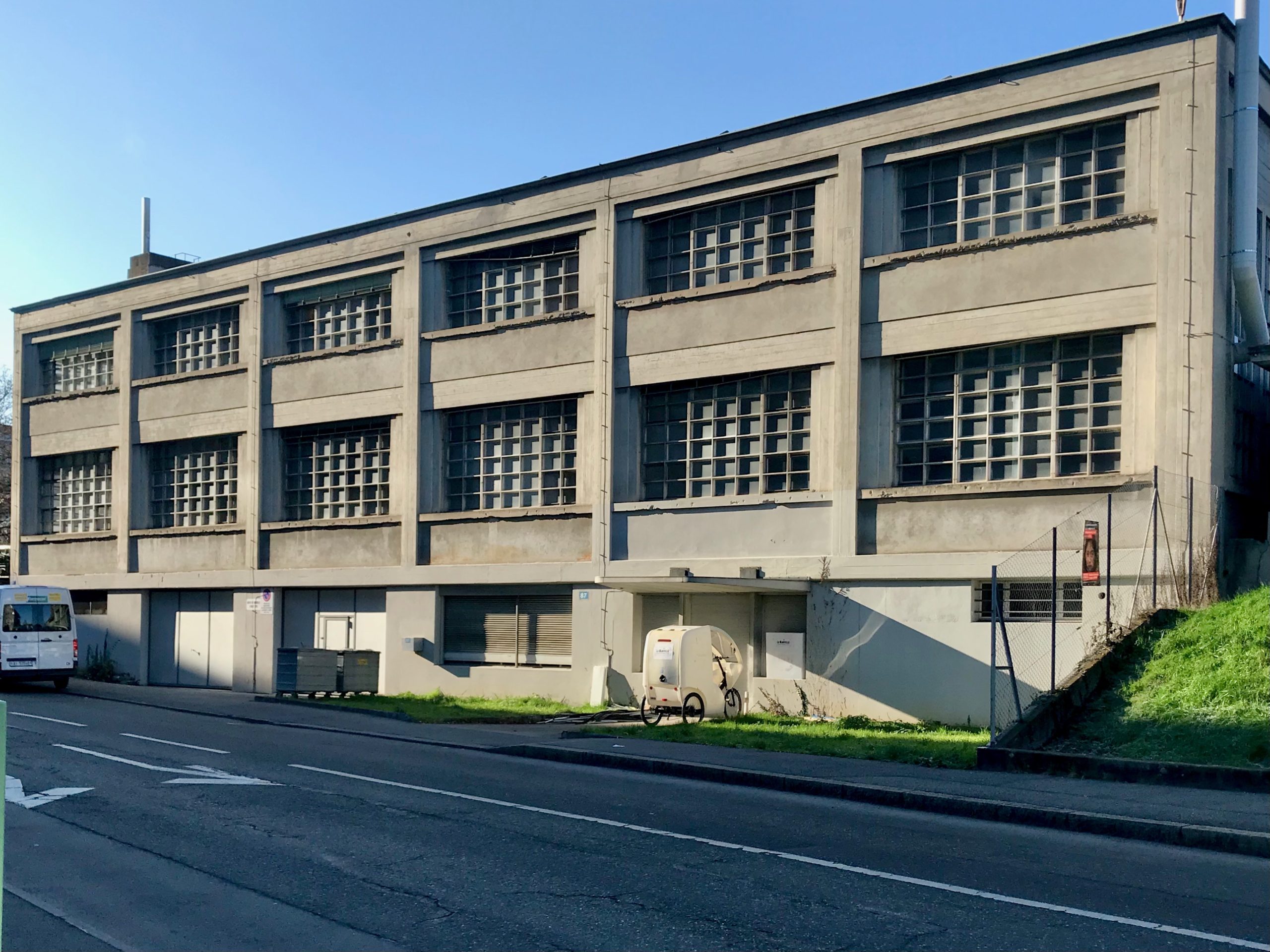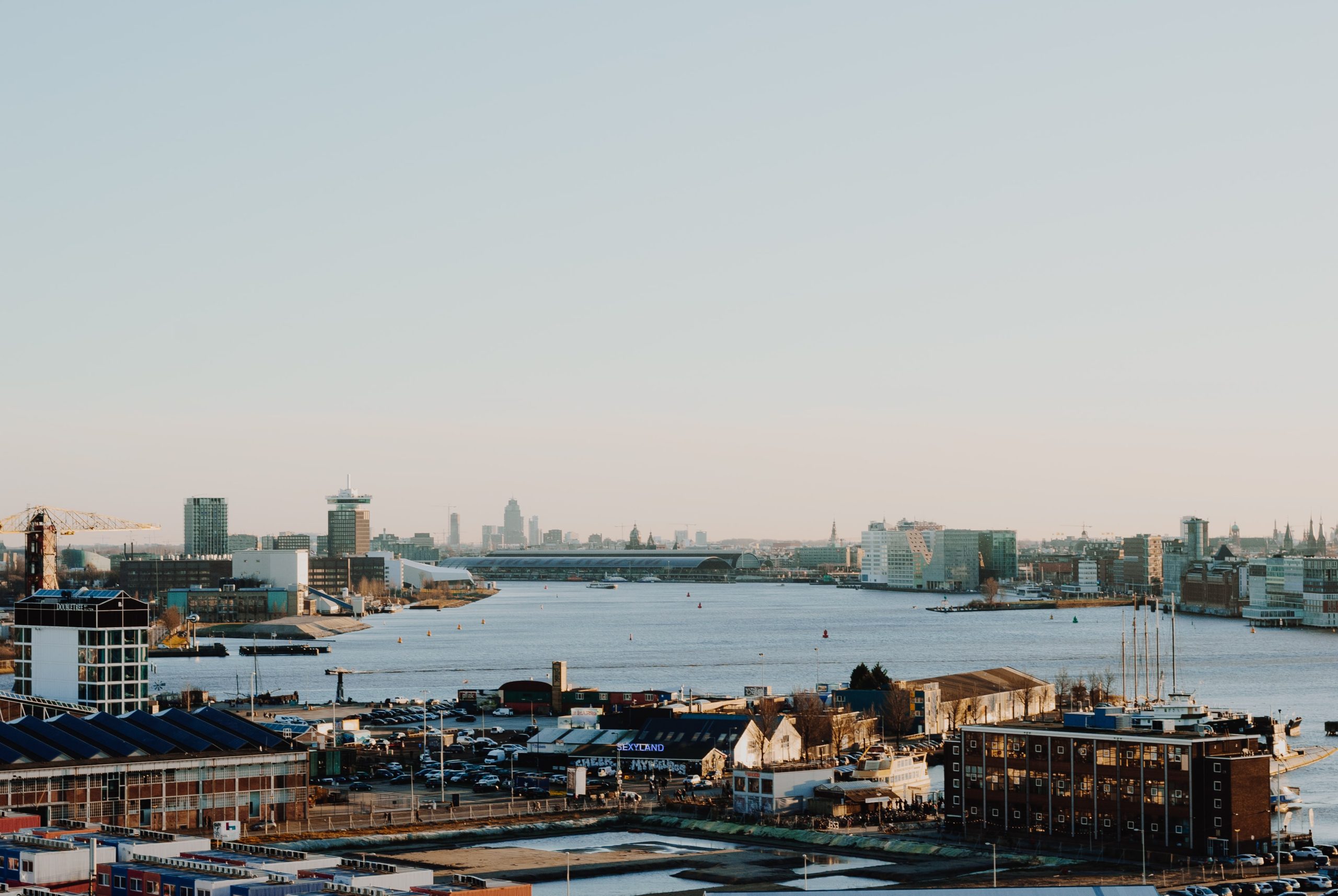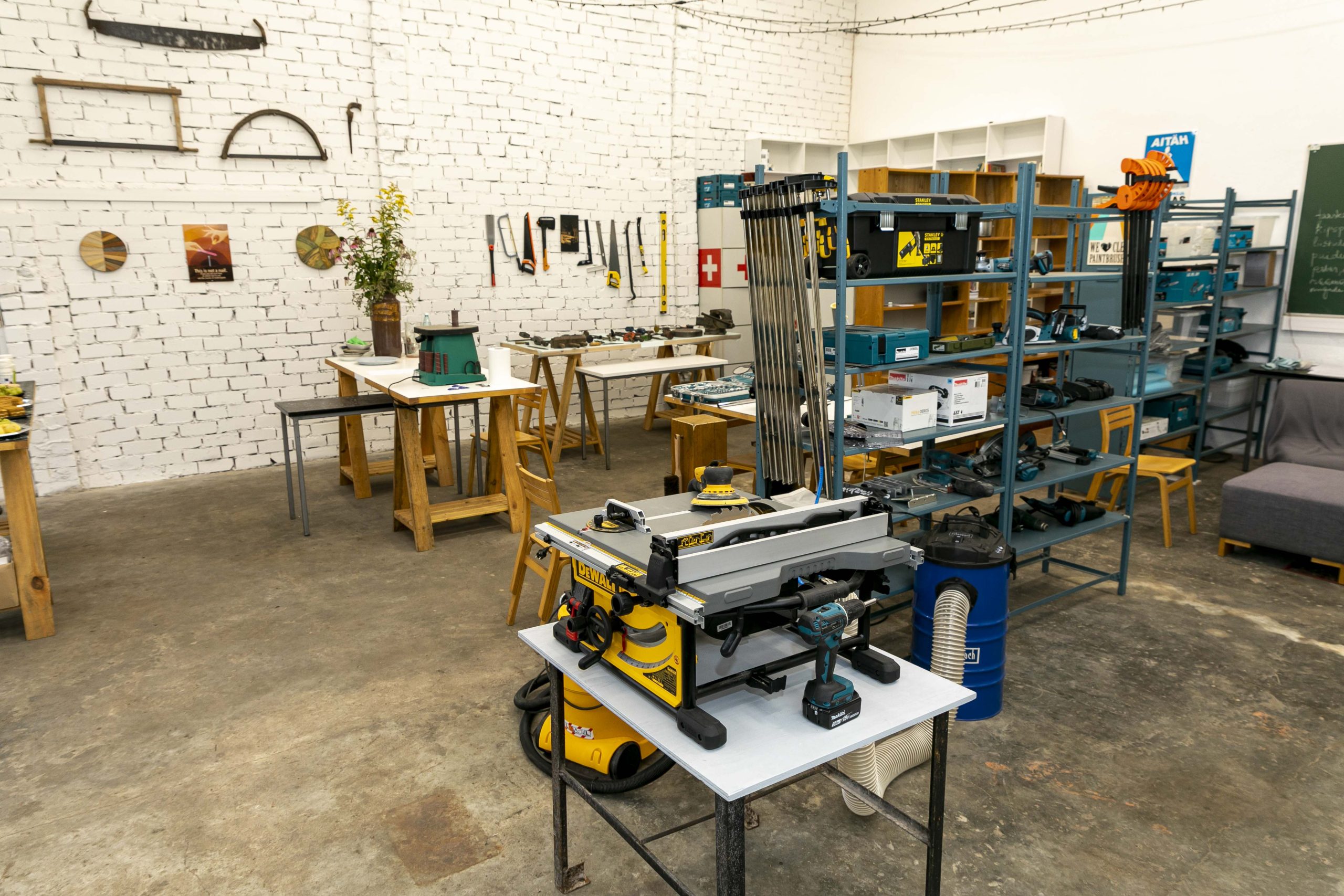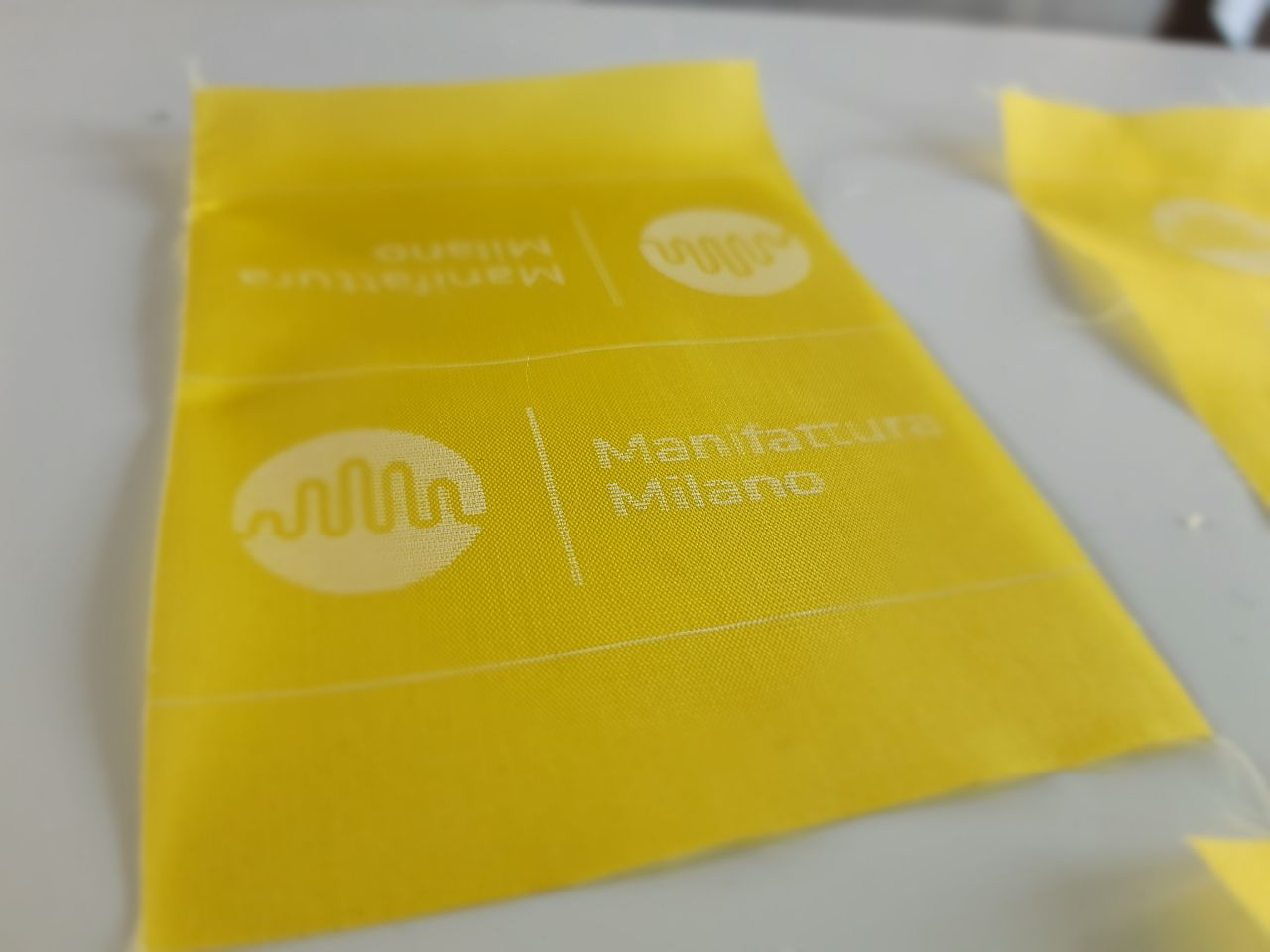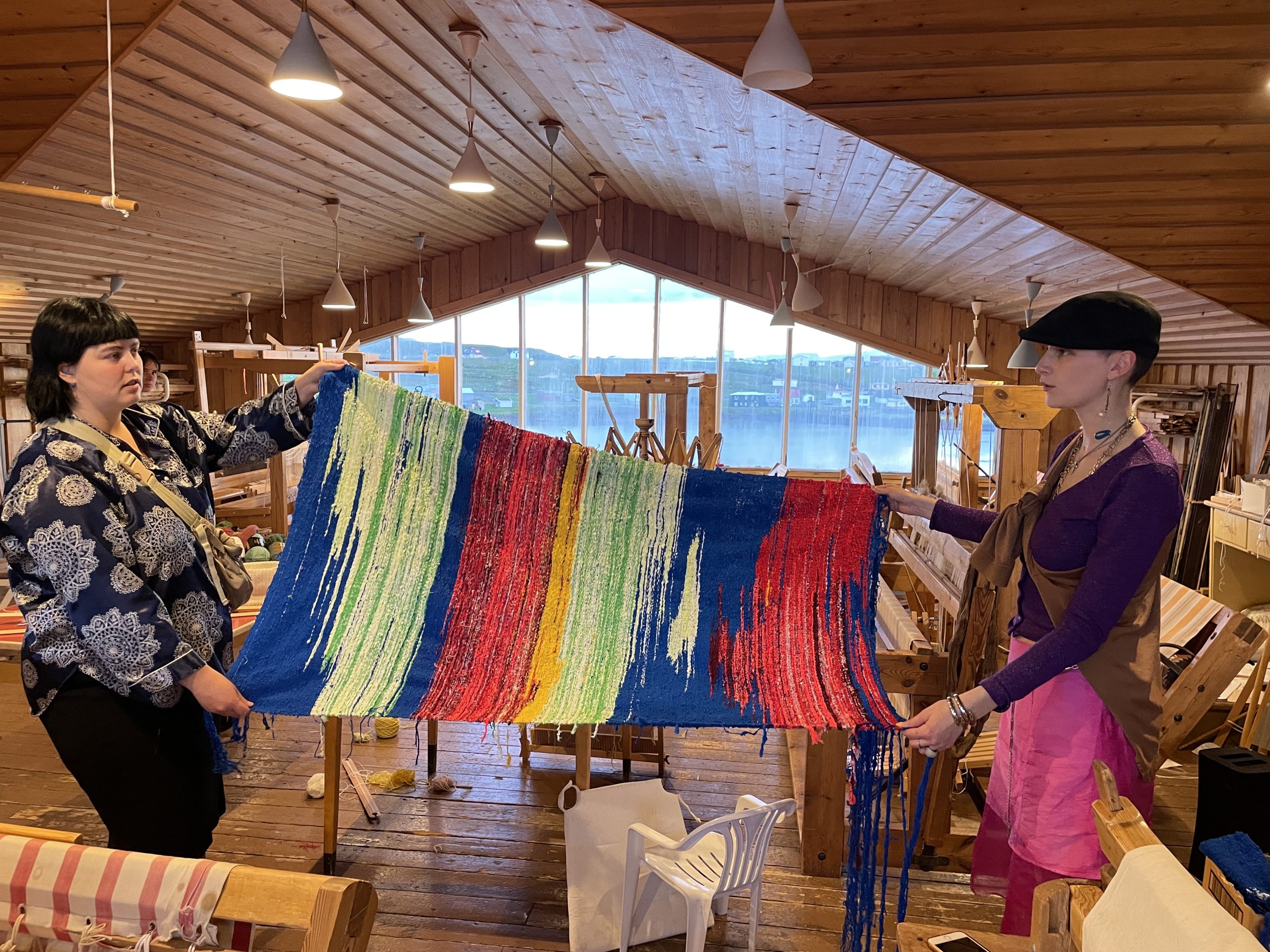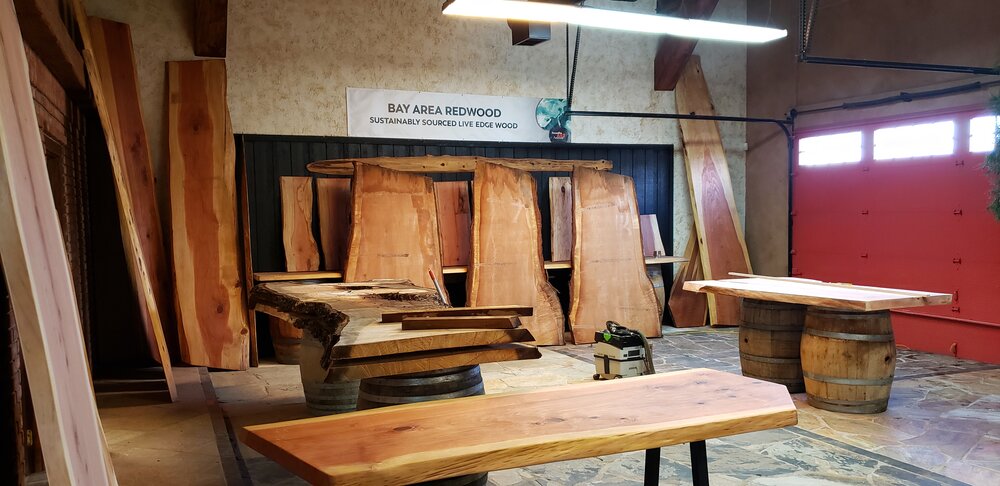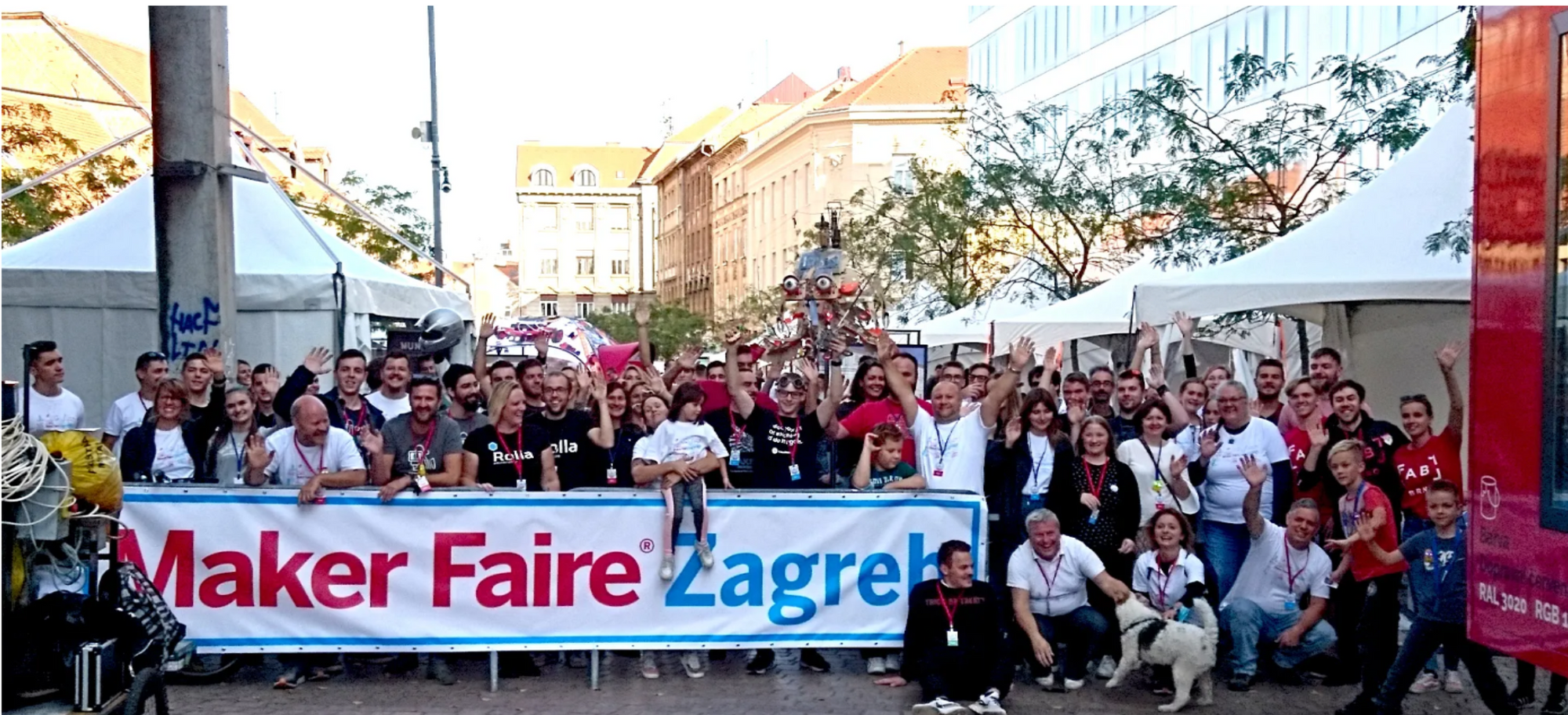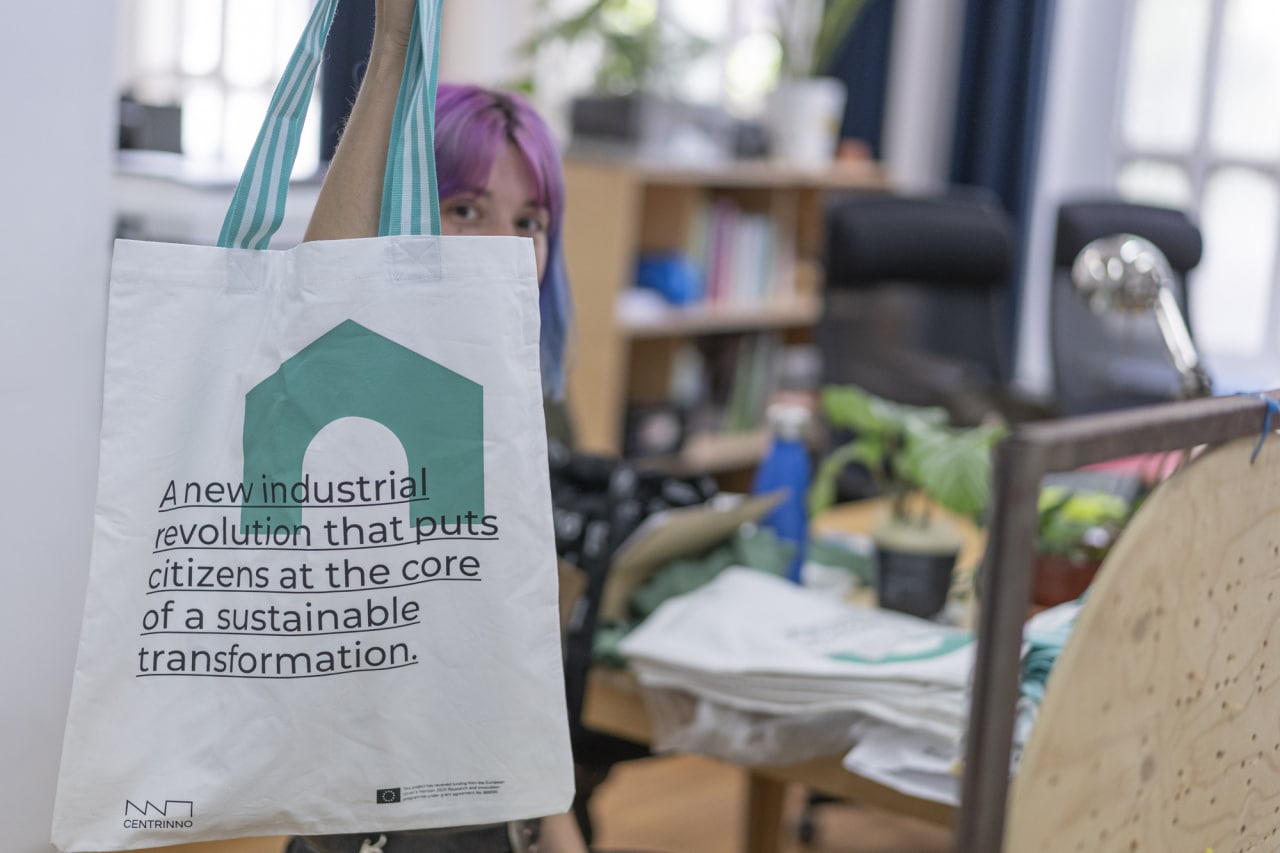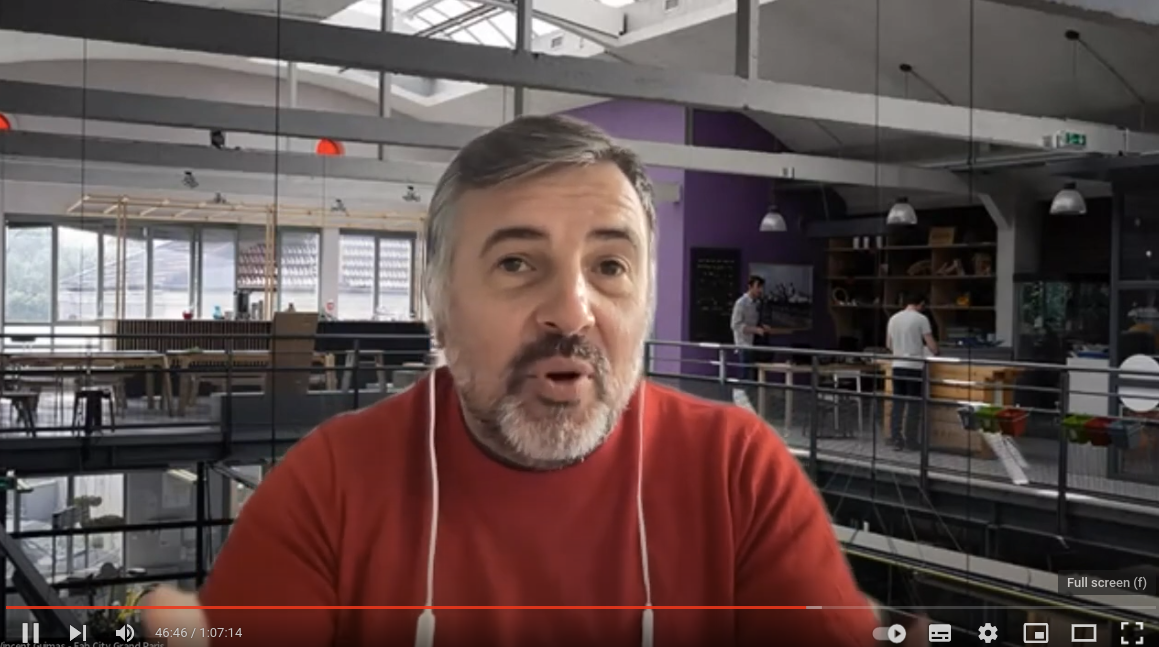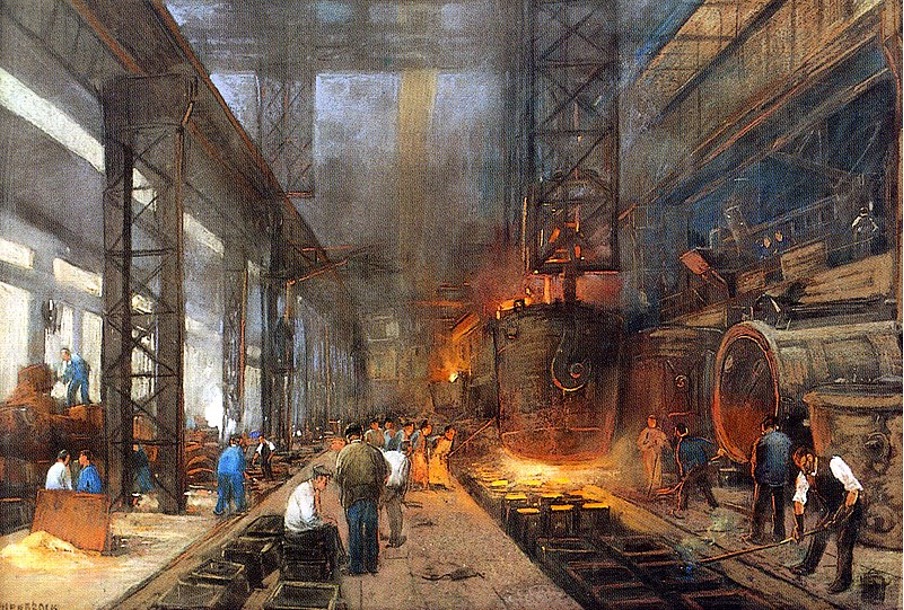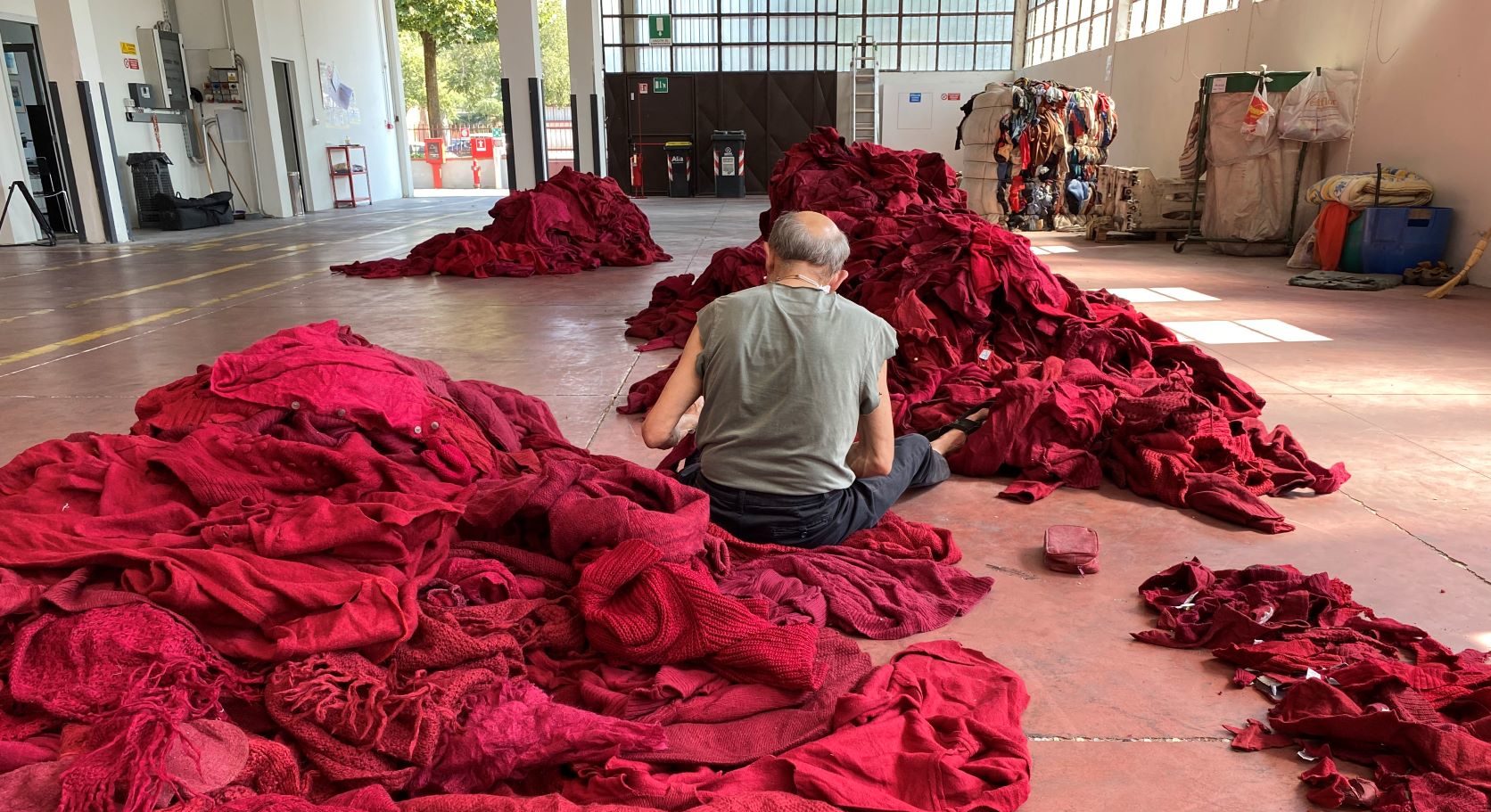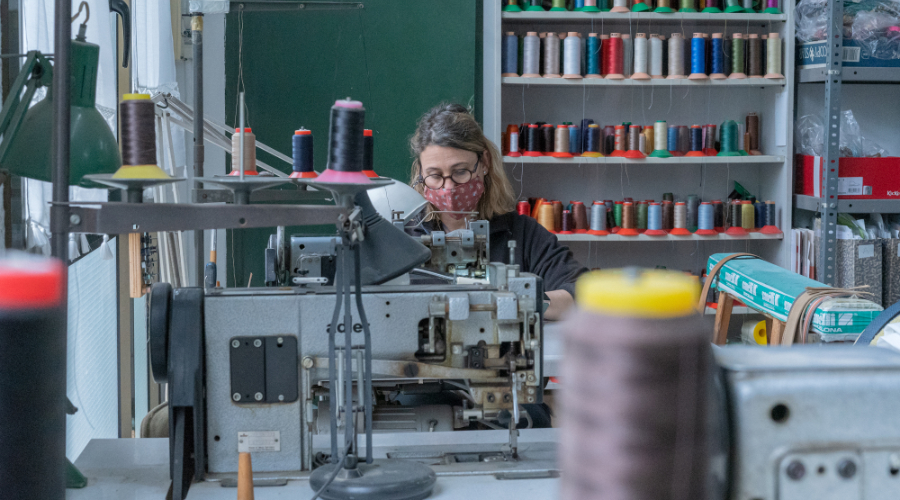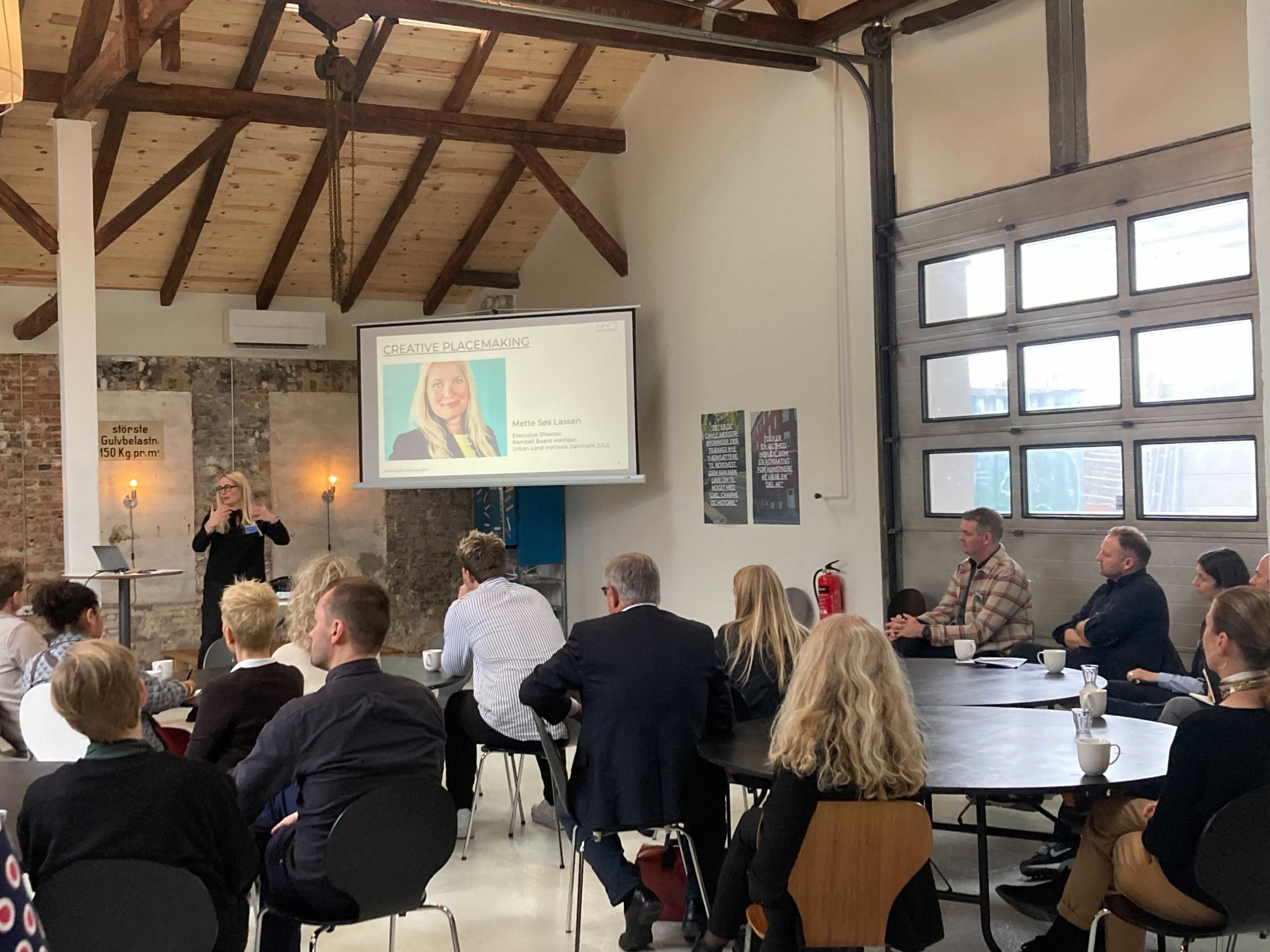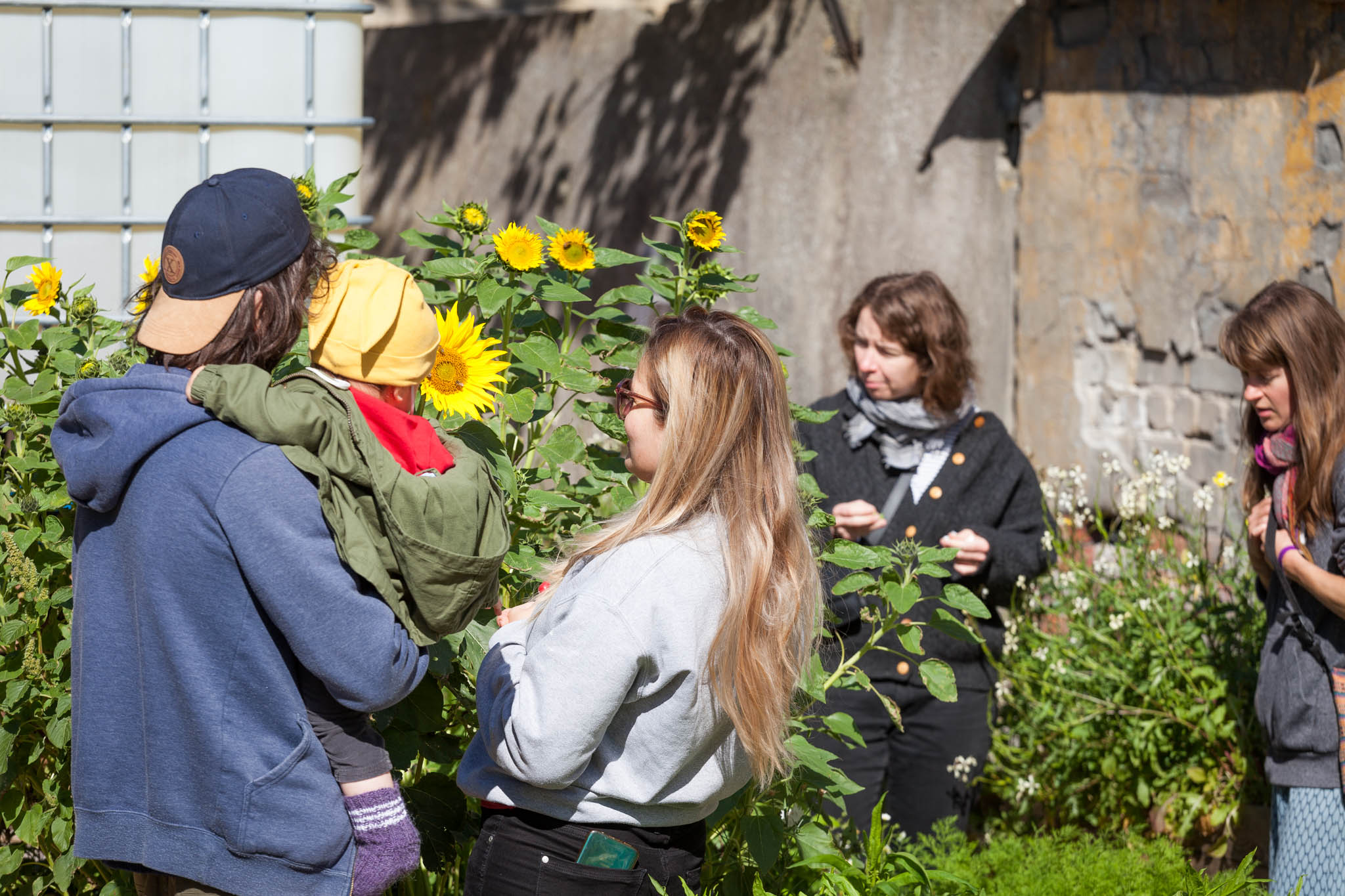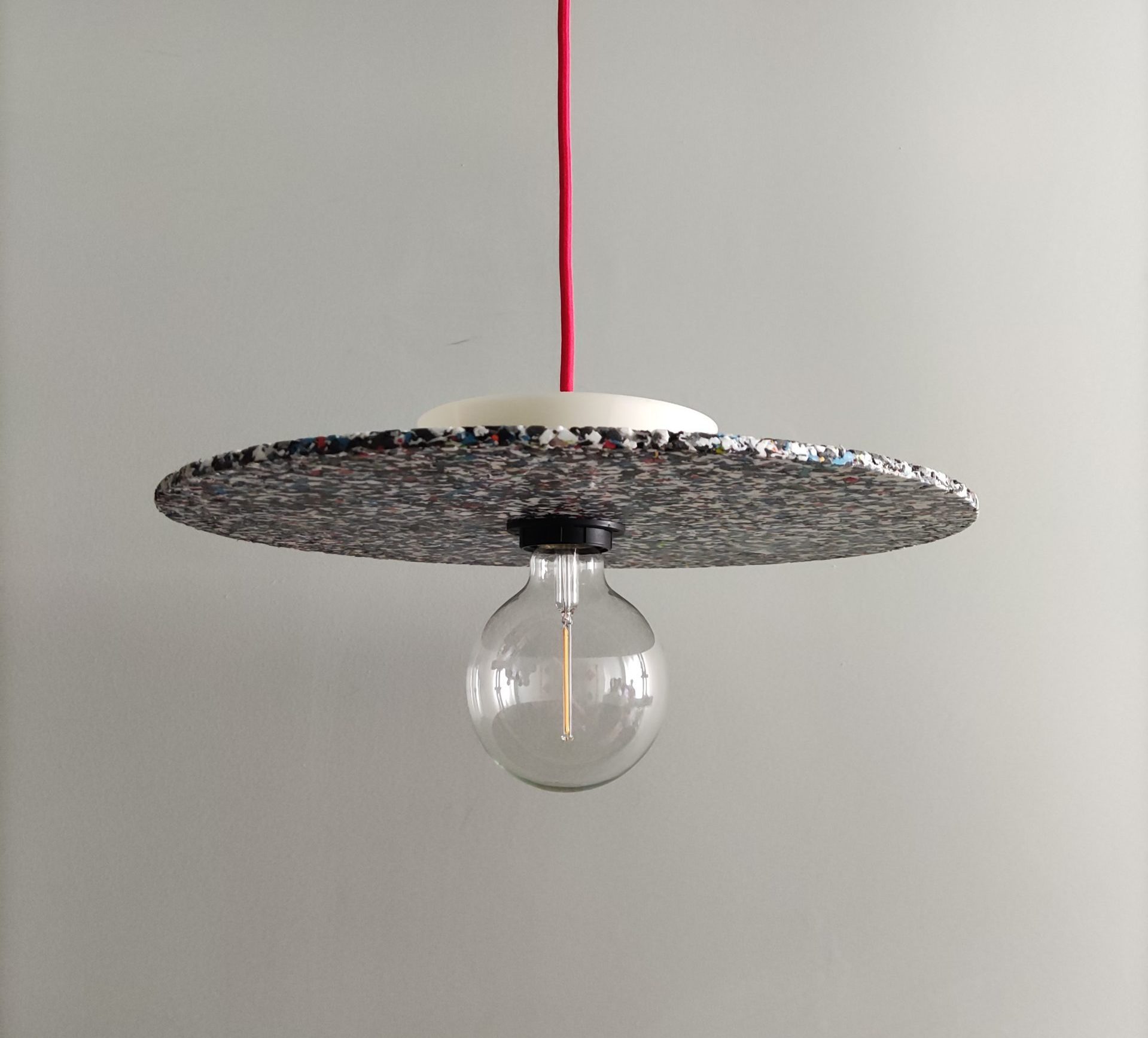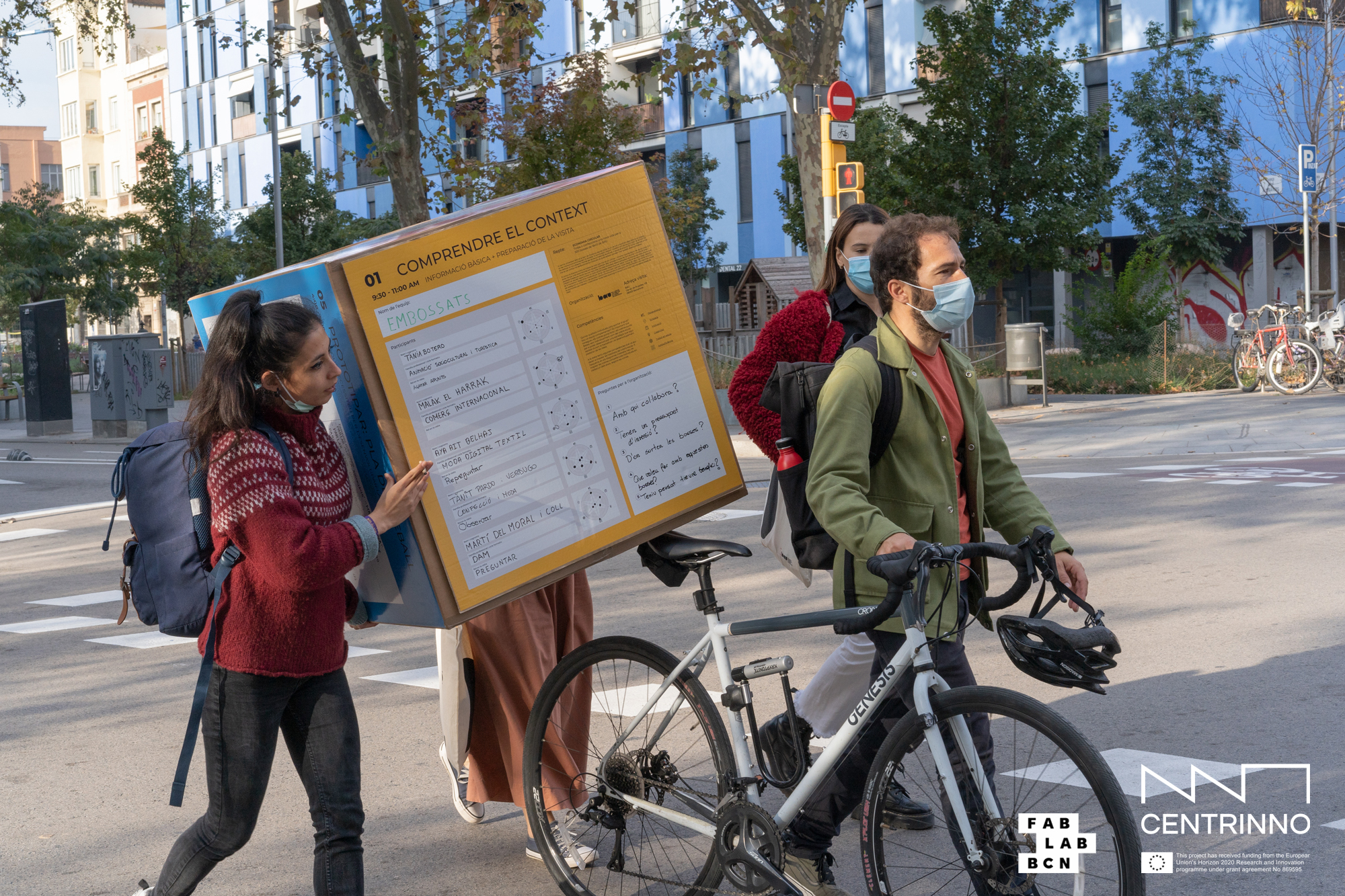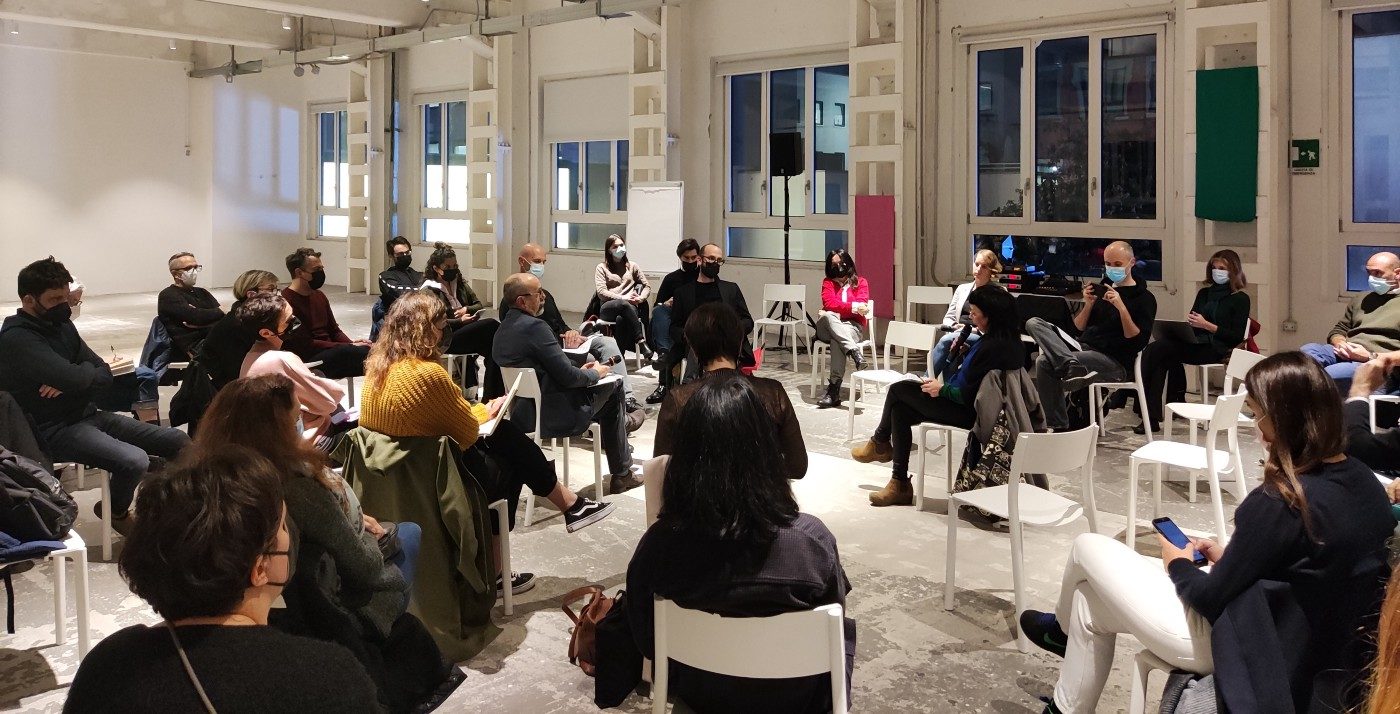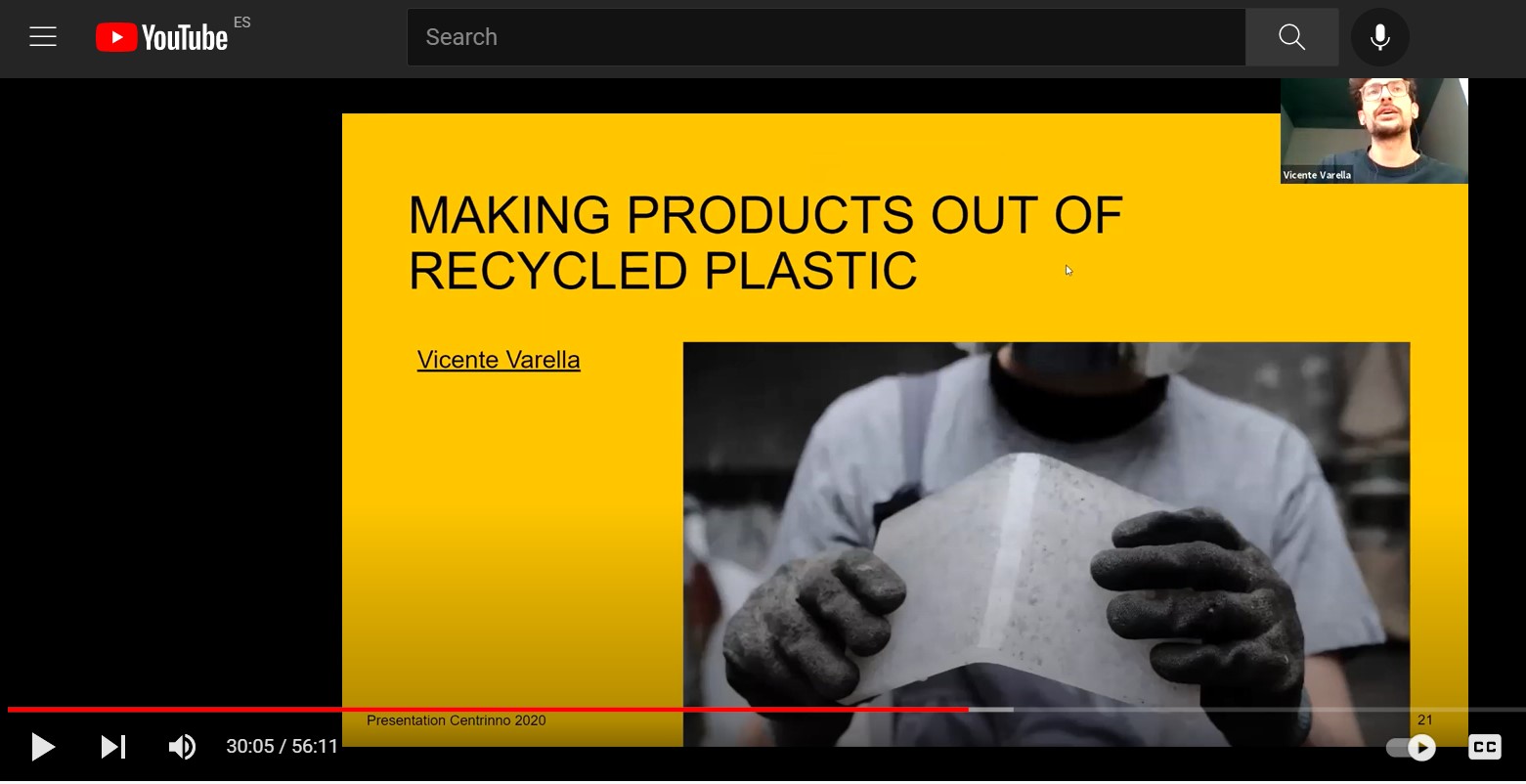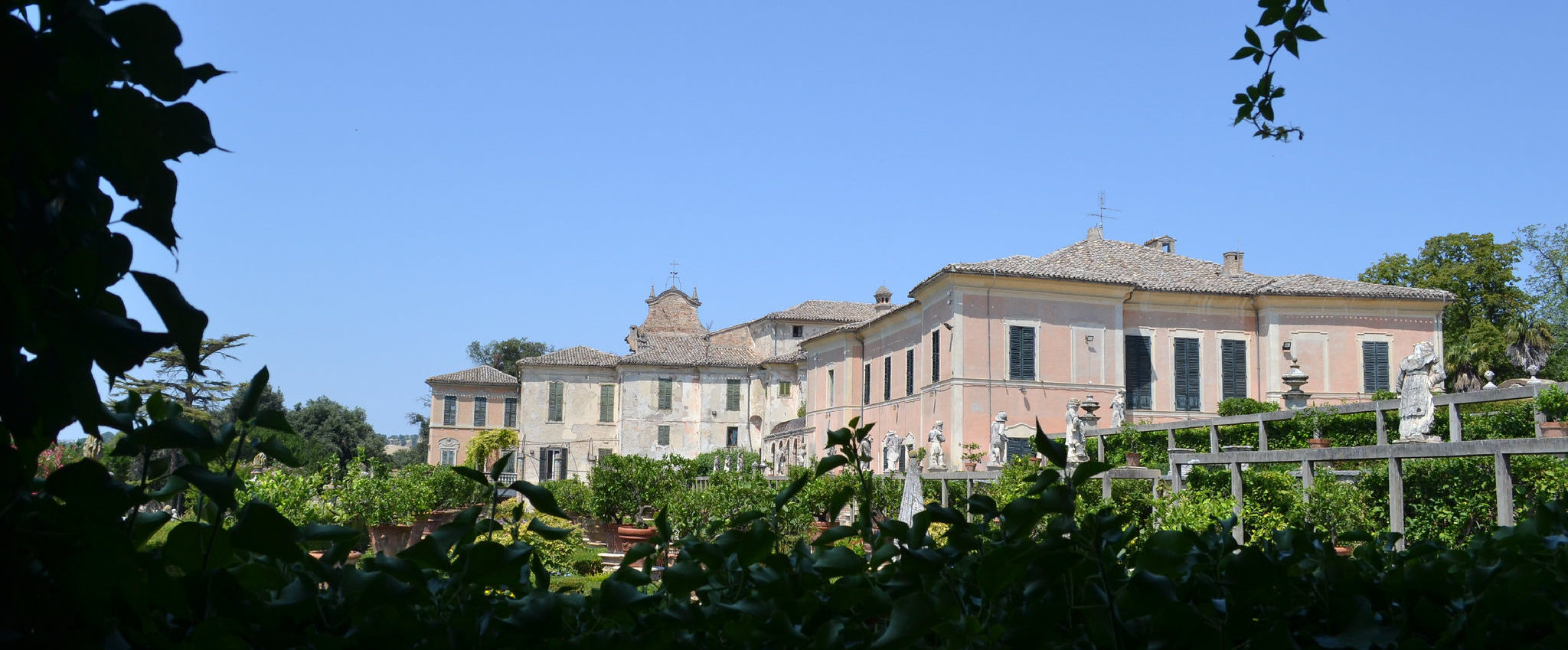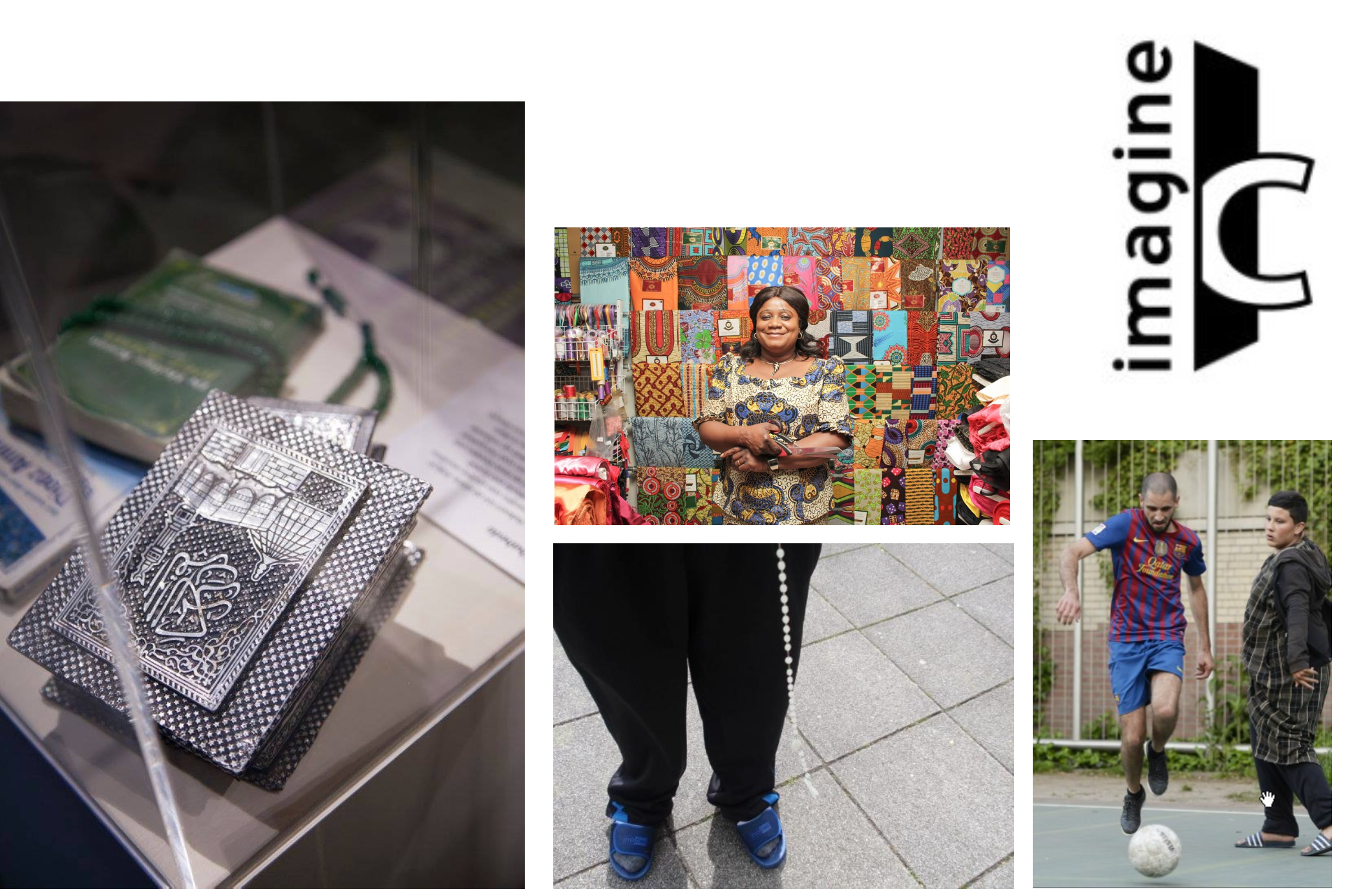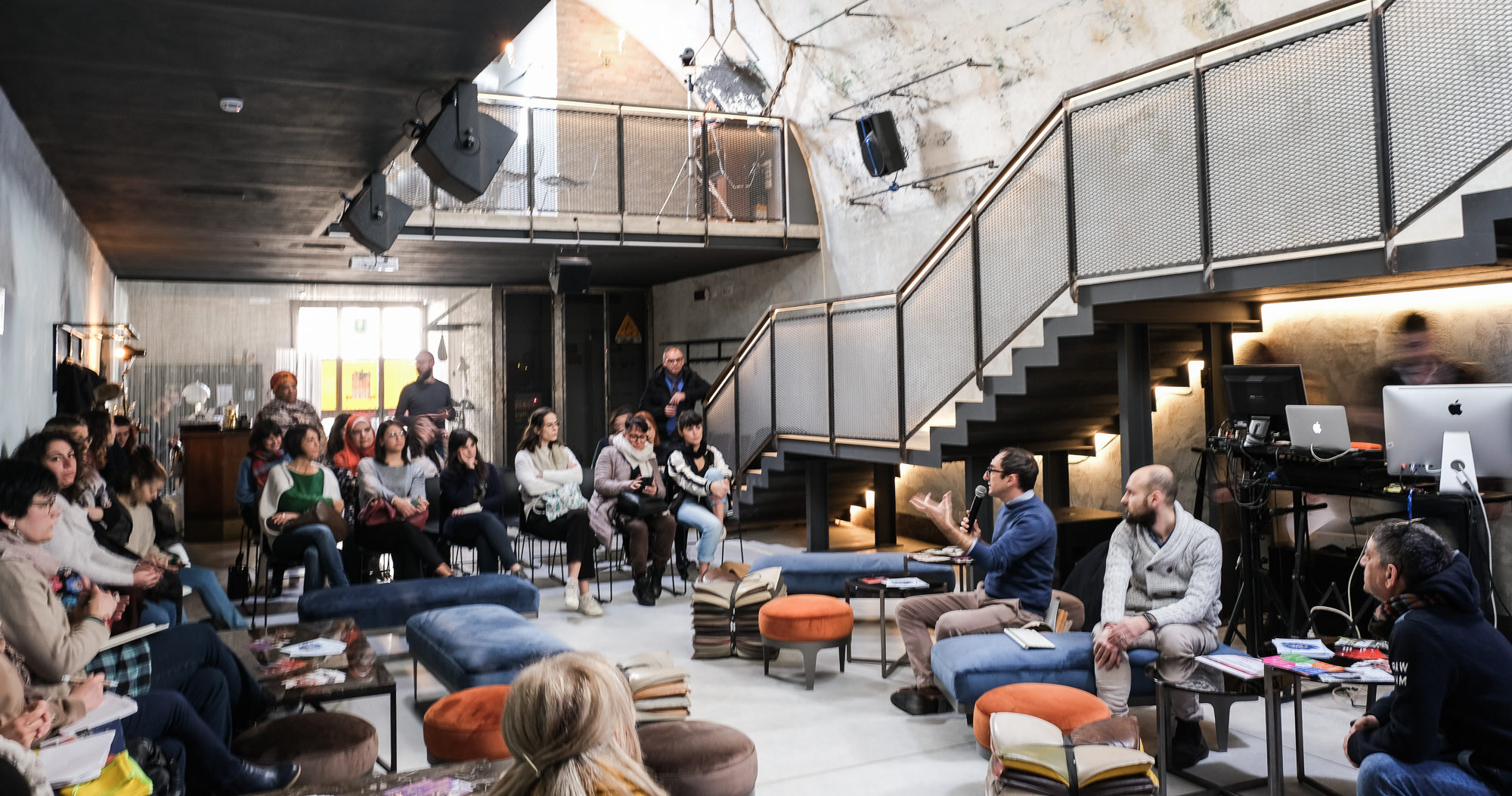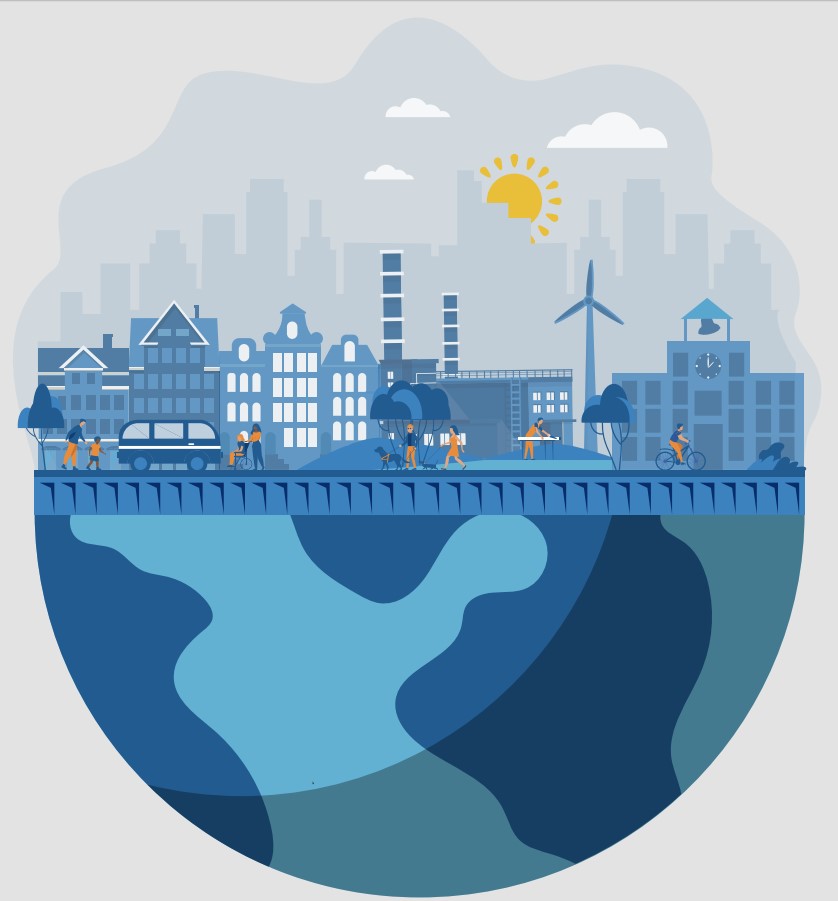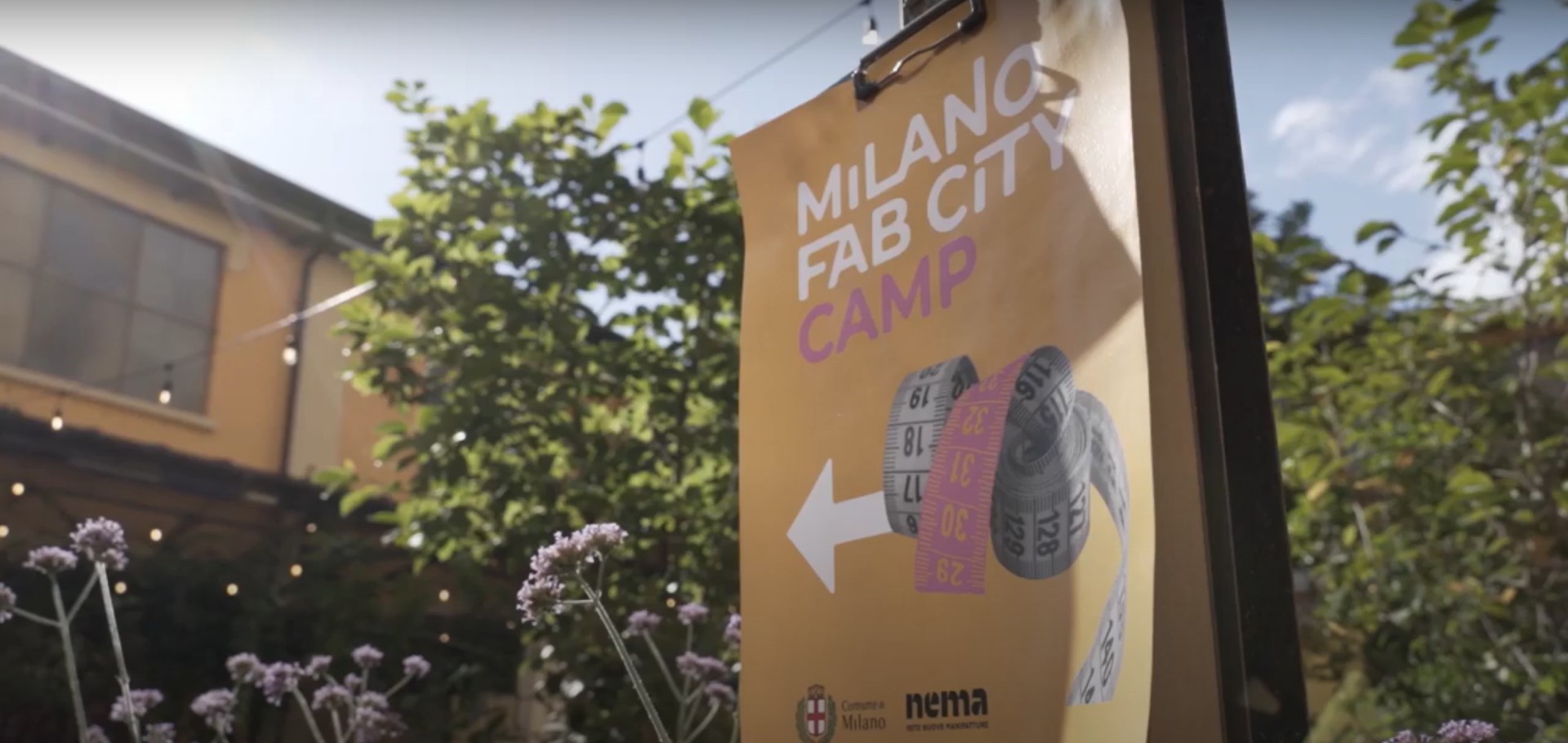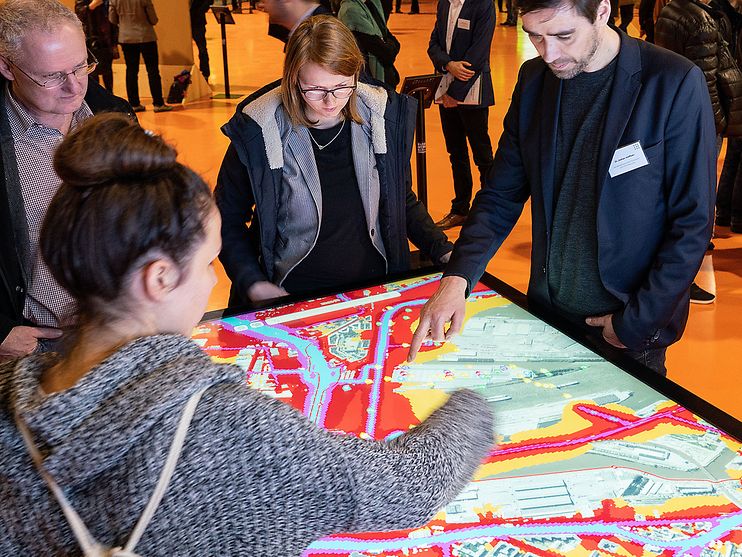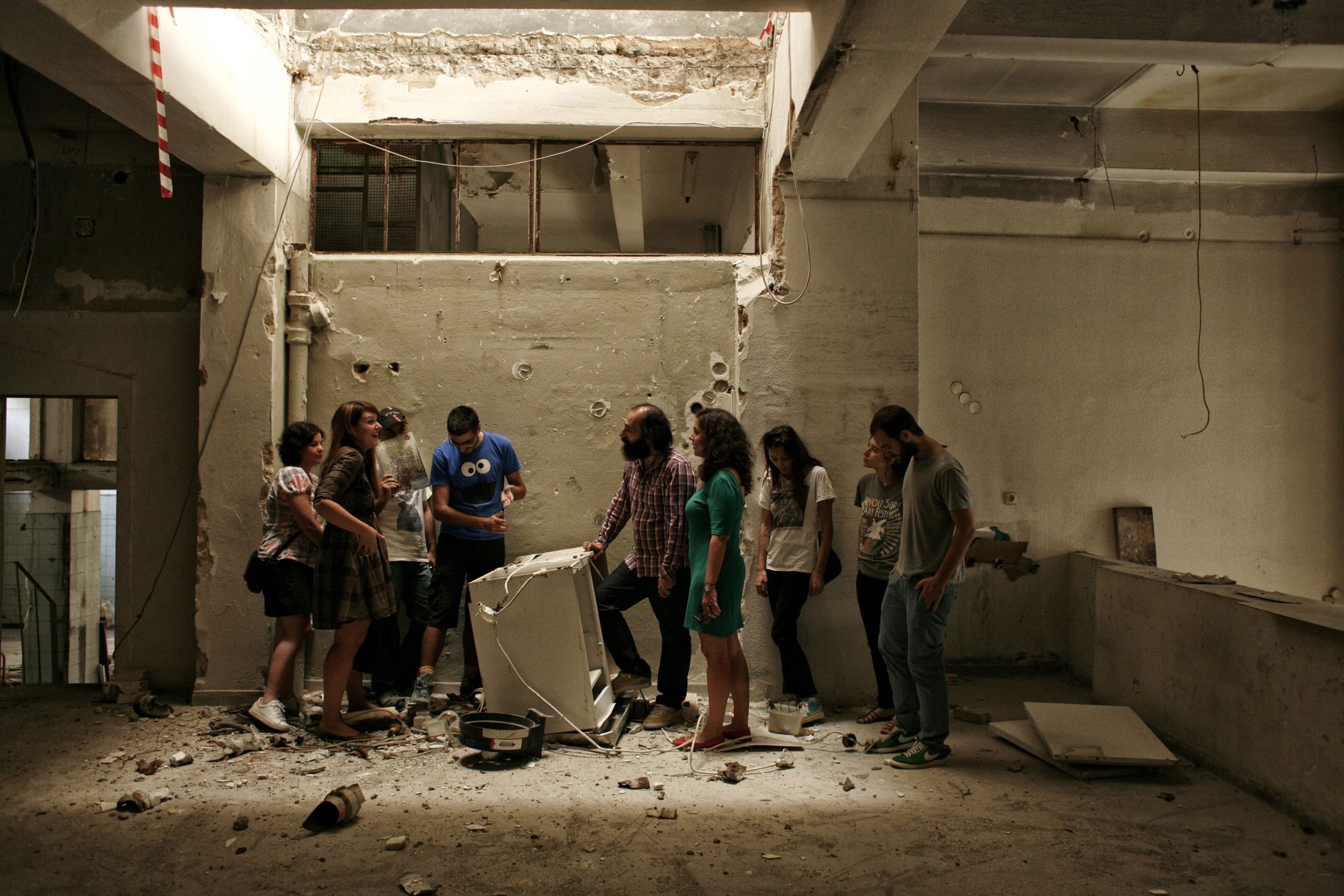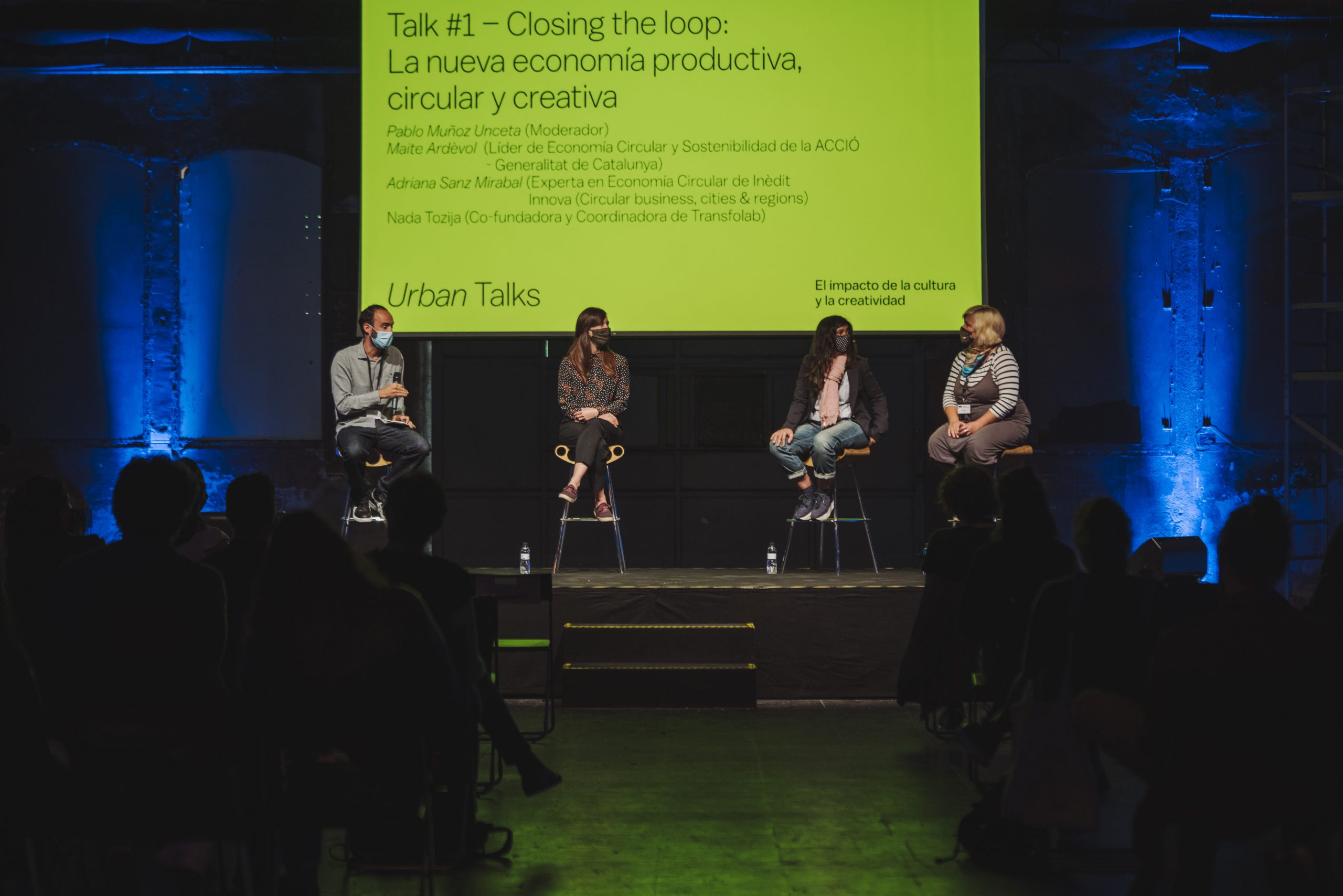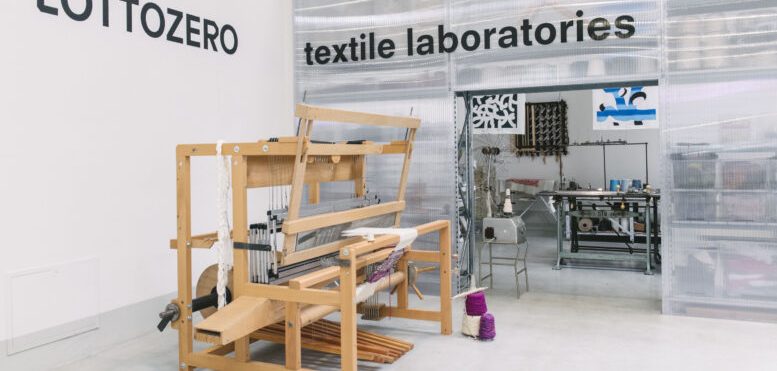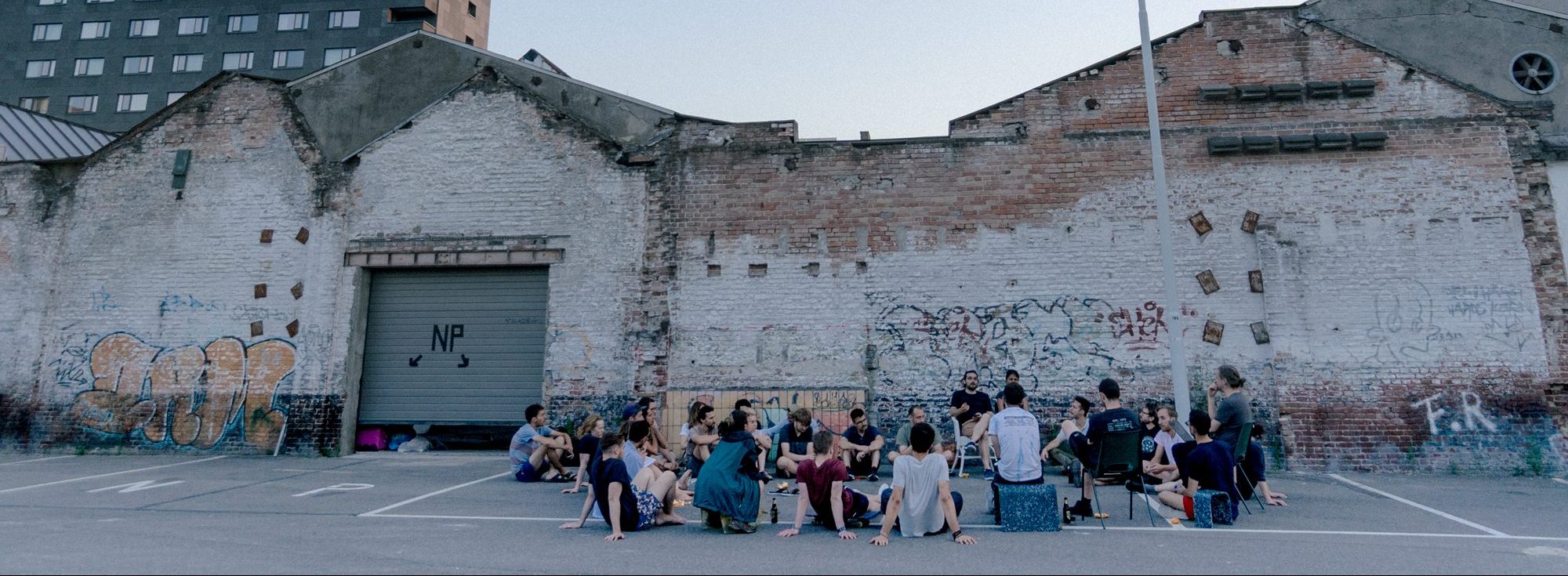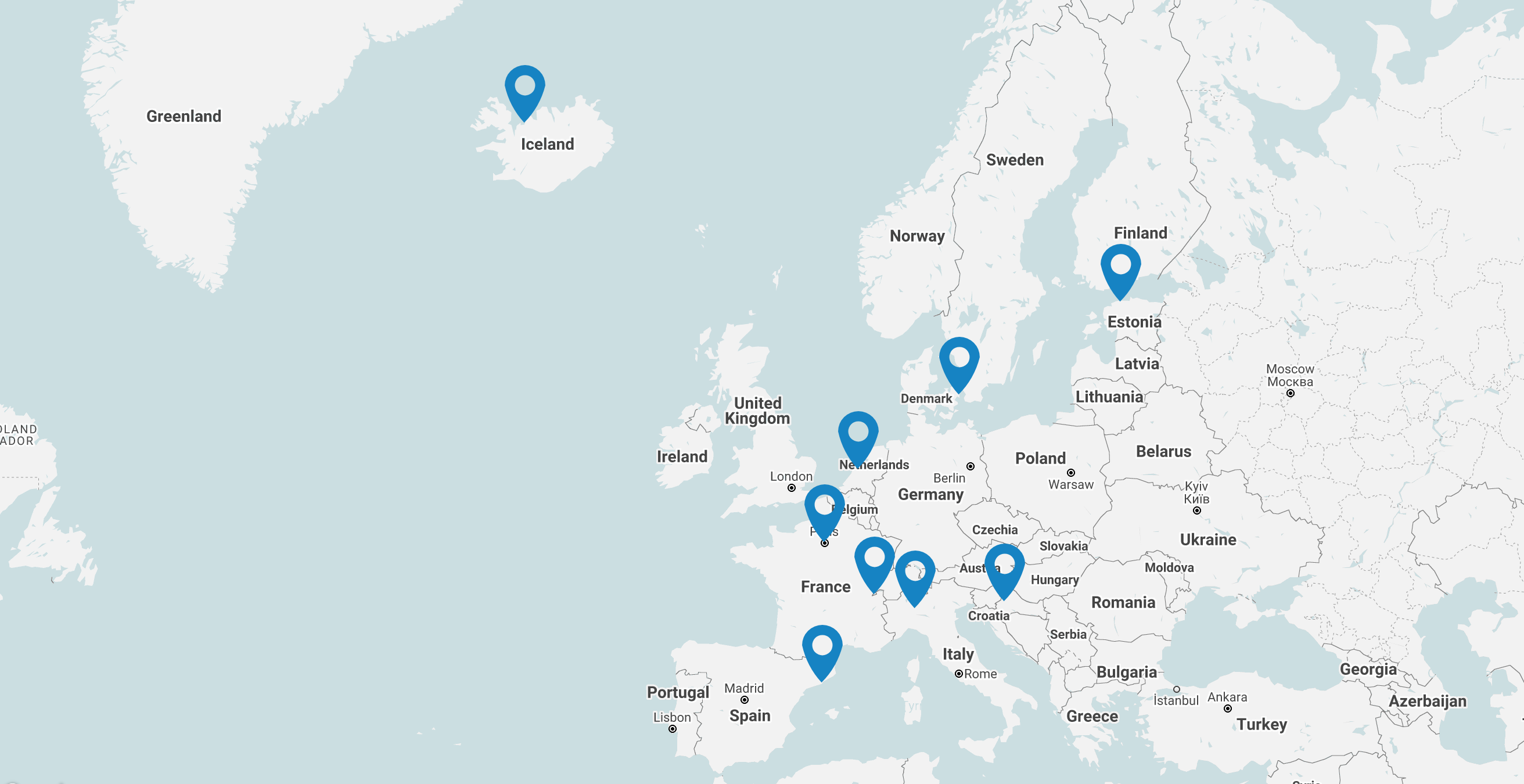BLOG
Darwin: a large-scale hub based on a collective and ecological governance
Curatorial note: what is the hub about and why it matters

Figure 12 – Darwin hall dedicated to skate activities.
Curatorial note: what is the hub about and why it matters
Darwin hub is a large scale (35.000 sqm) real estate operation in Bordeaux, France. In 2009, the private group Evolution, owned by a local family, after mobilizing in dialogue with local associations and citizens, bought a part of a former military site which was abandoned a few years before, back to life.
Darwin was born with the vision of investing those heritage buildings by rehabilitating them and by installing a multitude of different activities and communities, all of them united under the umbrella of social and ecological values.
Darwin is remarkable for its size (largest operation covered by this study) but especially because the hub exemplifies how governance can be a key and structuring aspect of such a complex project, mixing real-estate, entrepreneurial activities, ecological values and social justice.
The private company Evolution, which initiated the Darwin project, supported since the beginning the emergence of an inclusive governance of the hub, by encouraging economic and social initiatives coming from citizens and NGOs in the fields of culture, ecology and urban sports. In 2011, in order to formally support these initiatives, the Darwin Foundation was created, which acts as an endowment fund in order to assure a global responsibility of the mother company.
In 2013, the association “Darwin’co” was founded to represent the 180 structures and 400 people working there (the co-workers), most of them working in green or creative economy. The total turnover of these organisations is about 70M€, which gives the NGO a considerable political and economic influence, both internally to the hub but also at the city’s level.
This constitutes a two-head governance system, which allows “Darwin’co” to express the interests of the community that are discussed and negotiated with those of the private company Evolution.
Moreover, another association called “58ème” brings together an associative network of more than 50 associations housed in the Darwin ecosystem, in the fields of culture, sports, solidarity, and urban agriculture.
This multi-layered and organic governance has a big impact on the evolution of the project, empowering users, NGOs and companies incubated at Darwin, making the hub a real place for debate and collective actions on the ecological transition.
Focus on two CENTRINNO criteria
Darwin and Circularity
At Darwin, energy sobriety and ecological values are recurring topics. The renovation of the buildings to convert them into a creative hub was guided by radical solutions of bioclimatic architecture principles, including the choice of not having artificial air conditioning and optimising natural lighting.
This approach led Darwin to conceptualise the idea of NégaWatt, a strategic approach to sustainable energy focused on sobriety and efficiency coupled with the use of renewable sources.
These efforts result in a building with a consistently low energy consumption of 84 kWh /m2/year. Jean Marc Gancille – Darwin co-founder – claims the average CO2 emission of a worker at Darwin is 6 times smaller than the average worker in a conventional office building in France.
Darwin’s activism and radical commitment for ecological challenges is also expressed through the CLIMAX Festival, a major event that since 2015, gathers in Bordeaux a large audience (33,000 participants in 2017 and 2018) with a broad spectrum of interests: the fight against climate change, the erosion of biodiversity, the rights of nature, human rights (including those of indigenous peoples) and solidarity with refugees.
The festival is organised by NGO Darwin Climax Coalition, defined as an international coalition of activist organizations aimed at preserving living things. The NGO is giving a remarkable contribution to the cause of Amazon’s deforestation as it supported the cacique leader Raoni Metuktire in filing his complaint against Jair Bolsonaro for the crime of ecocide linked to the deforestation. Amazon’s deforestation was a key topic of the festival in 2019 and Raoni was one of the main guest speakers.
Darwin and Heritage
Darwin’s approach to heritage could be defined as agile, frugal and incremental, the term incremental came up several times during interviews with a member of the team and it deserves to be highlighted. An incremental approach, opposed to a monolithic approach, is one that focuses on iterative progressive development, in which feedbacks of the system are observed and actions are made to implement new parts based on those feedbacks and user needs.
Darwin strived since its beginning to maintain a respectful relationship with the neighbourhood and to preserve what existed already by building upon it. These efforts are reflected through both tangible and immaterial layers of heritage.
On the tangible layer, the architecture and the physical spaces were occupied, renovated and used incrementally, based on the needs of the community, with an ecological approach, maximising reuse and minimising carbon footprint.
On the immaterial layer, since its kickstart, the hub dealt with local citizens and fought to maintain current activities and a memory of what was there before, again building upon and developing with the existing communities and their interests. This is exemplified in the Darwin Foundation statement, which defines the categories of actions supported by the foundation. Those categories are based on activities that pre-existed in this site before. When the company Evolution came in, these activities (graffiti, street art, skateboarding and video- music) were expanded with the introduction of new topics brought by the development of the Darwin ecosystem and communities (such as architecture modulaire, ecological capacity building, alternative education).
Highlighted initiative: MIUSSEC
In collaboration with experts of sustainable construction, Darwin developed MIUSSEC (Métrologie Intelligente des Usages pour la Sobriété Énergétique et les Éco-Comportements), a digital web interface that gives all the users of the hub a quantitative feedback regarding the energy consumption of the building. This interface is designed based on the idea that the users of a building can have a huge impact on energy consumption (up to twice the consumption in case of improper use of the building and its facilities), and provides them with feedback to visualise and measure their efforts in reducing energy waste.
Apart from being an example of how digital tools can blend with physical spaces of the hub, MIUSSEC is again driven by the value at the core of the project by putting users and citizens in a position of empowerment in terms of governance, decision making and in facing ecological
challenges.
Extracted topics for further investigation:
★ Ecological governance
Jean Marc Gancille – Darwin co-founder – calls it a “collective ecological governance”. How and why are collective and ecological approaches important in the governance of Darwin? And more generally, how does Darwin deal with such complex governance from a private company, NGOs and individuals? Are there any critical or difficult points to consider when opting for an inclusive governance?
★ Digital and low-tech
How does Darwin deal with an innovative and digital approach (social media, MIUSSEC) while promoting and opting for sobriety and low-tech? How do these aspects coexist complementary and not contradictory?
★ Incremental approach
The incremental approach and the “build upon” strategy seems crucial in Darwin’s development. How and where did these concepts originate? Is there a specific cultural and/or scientific background?

